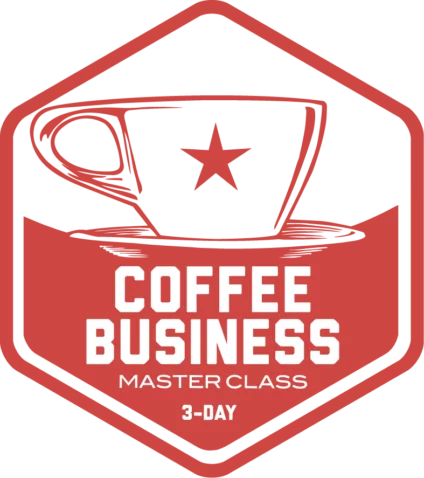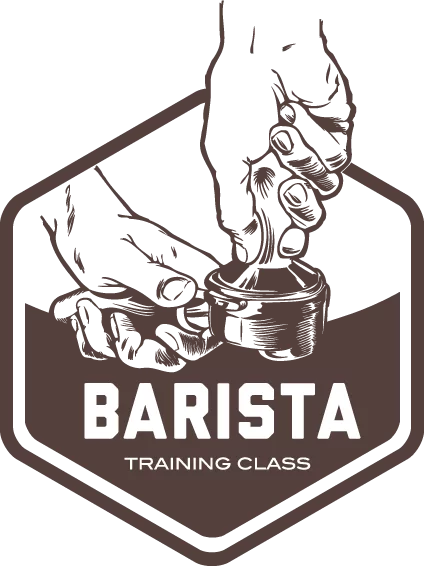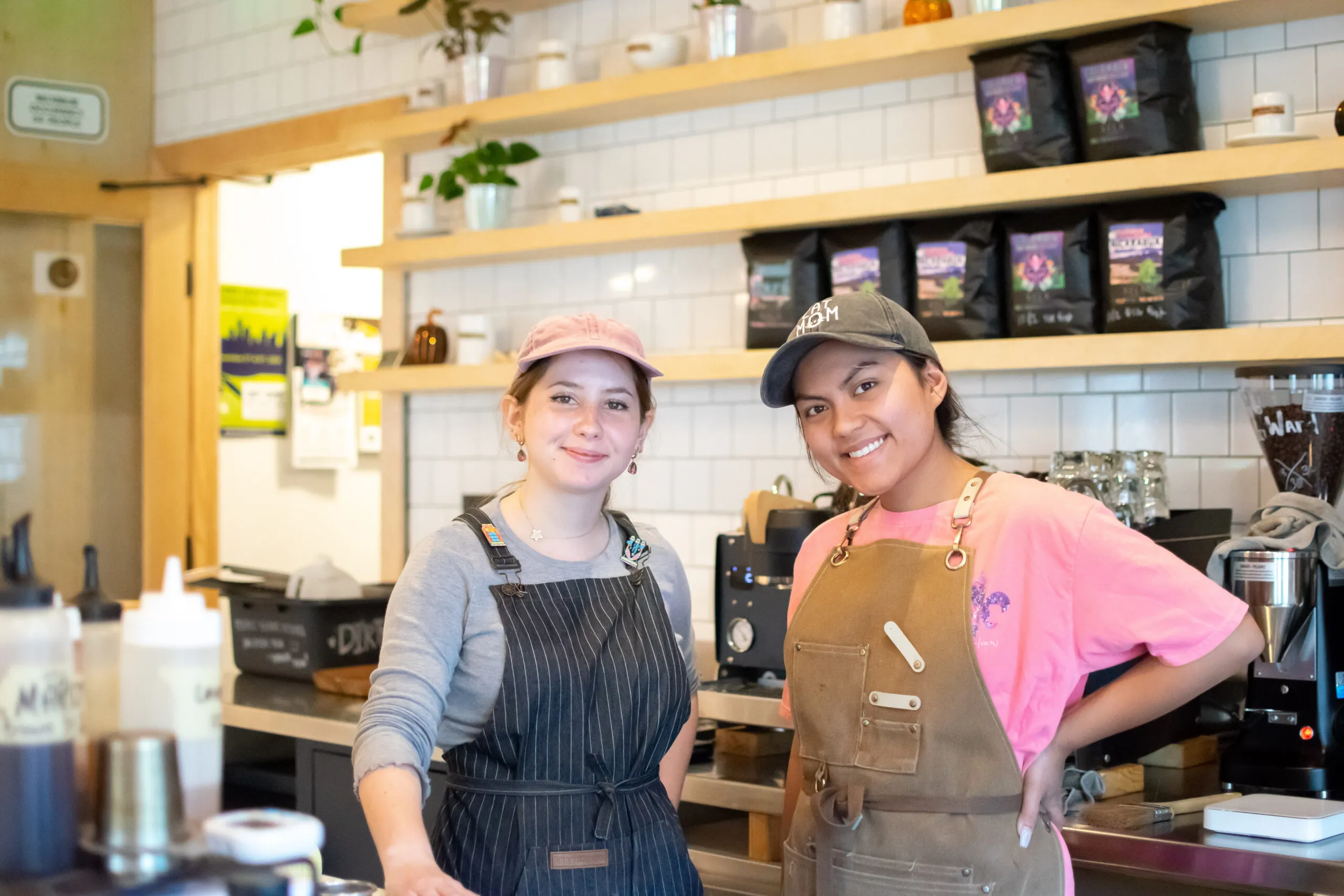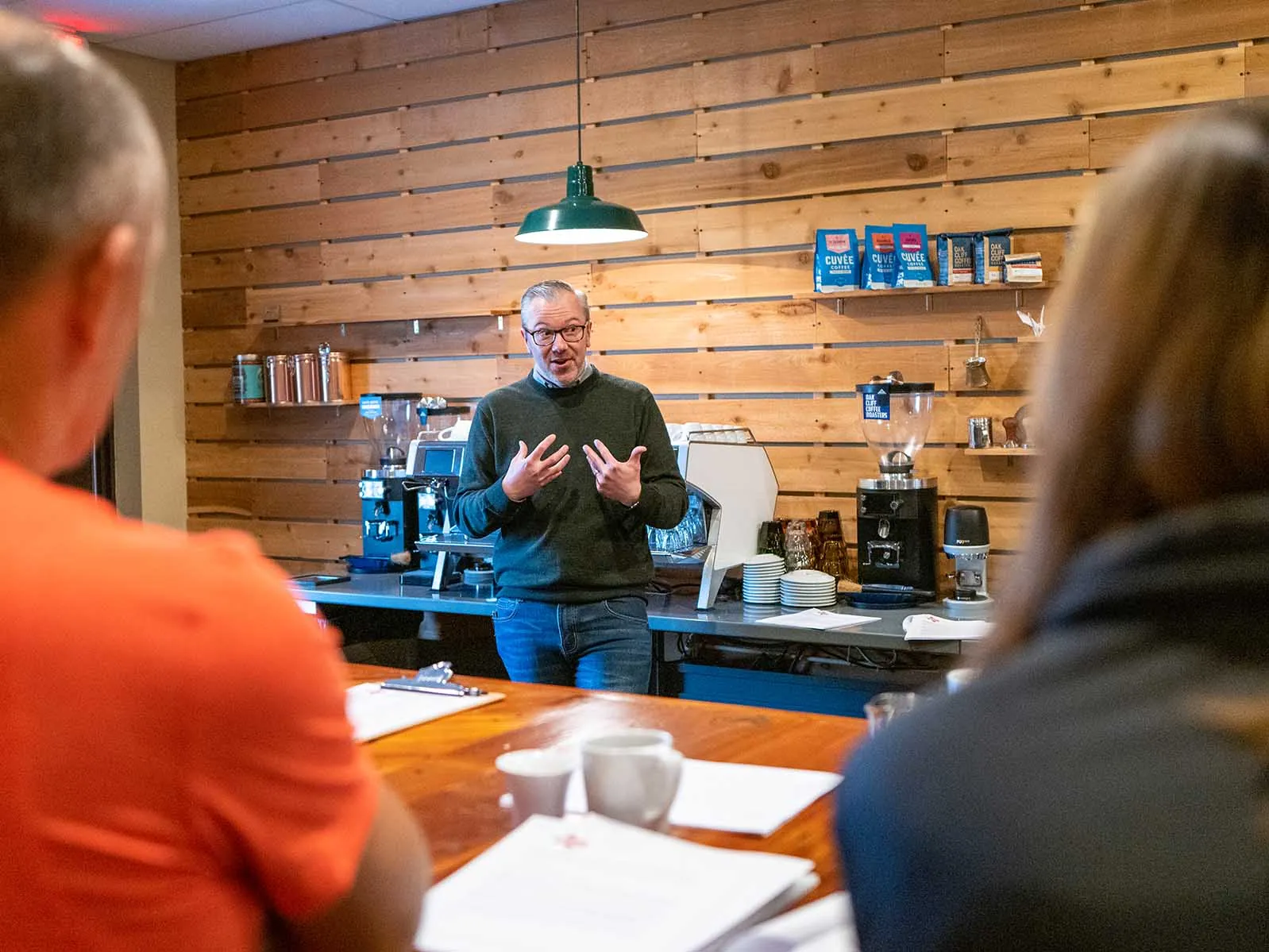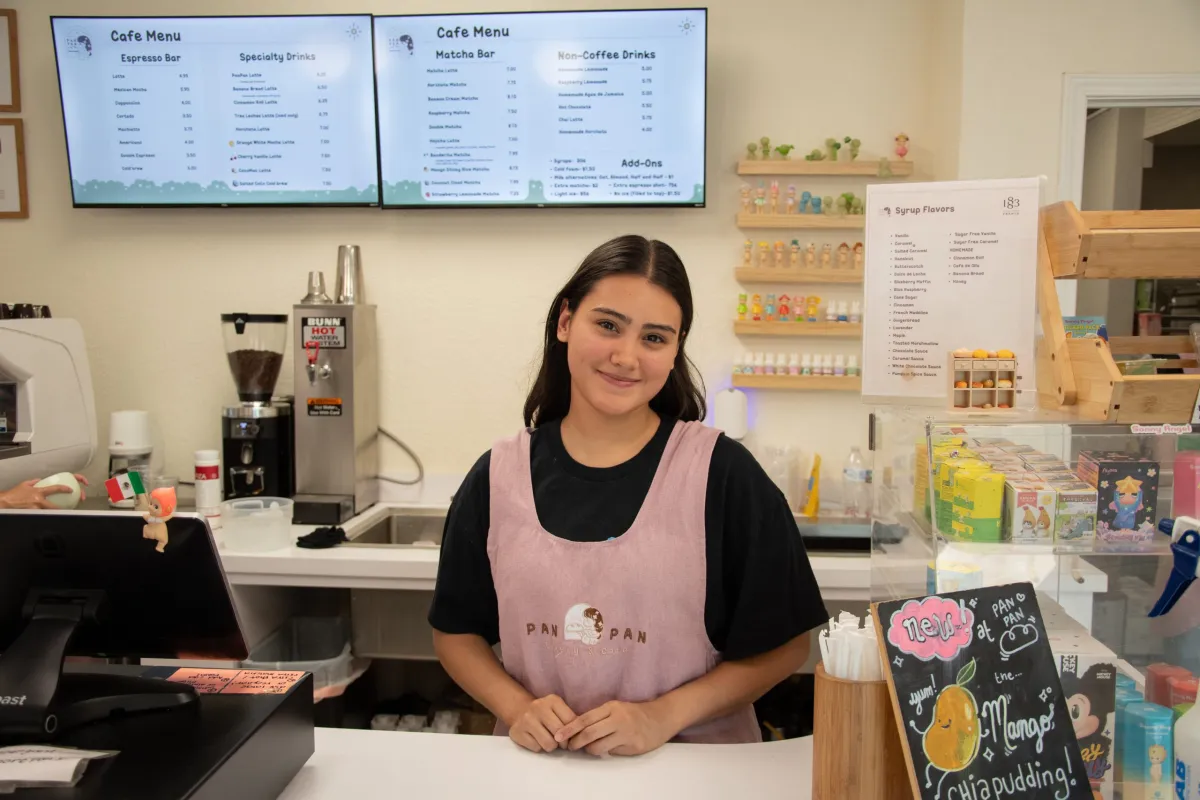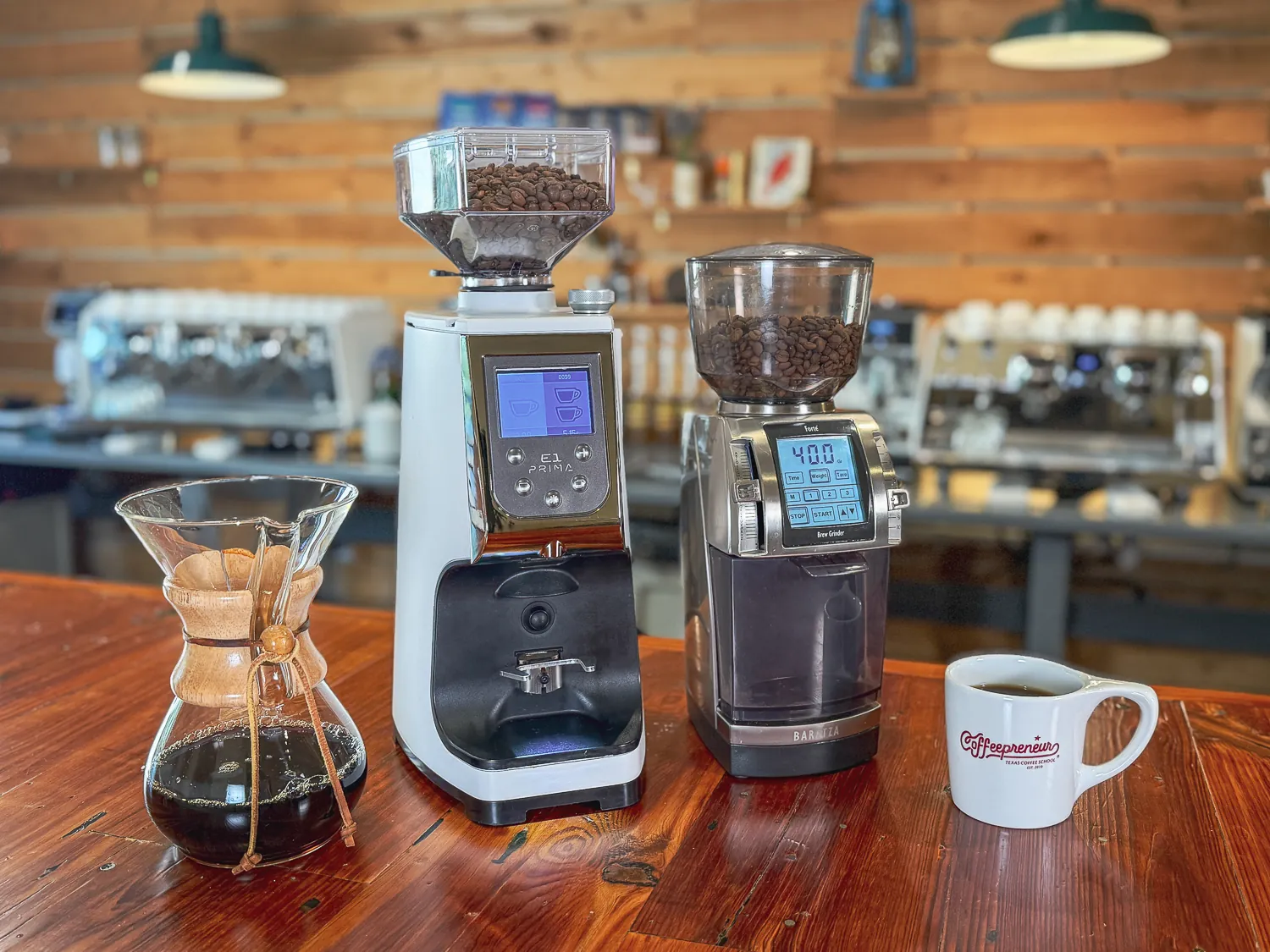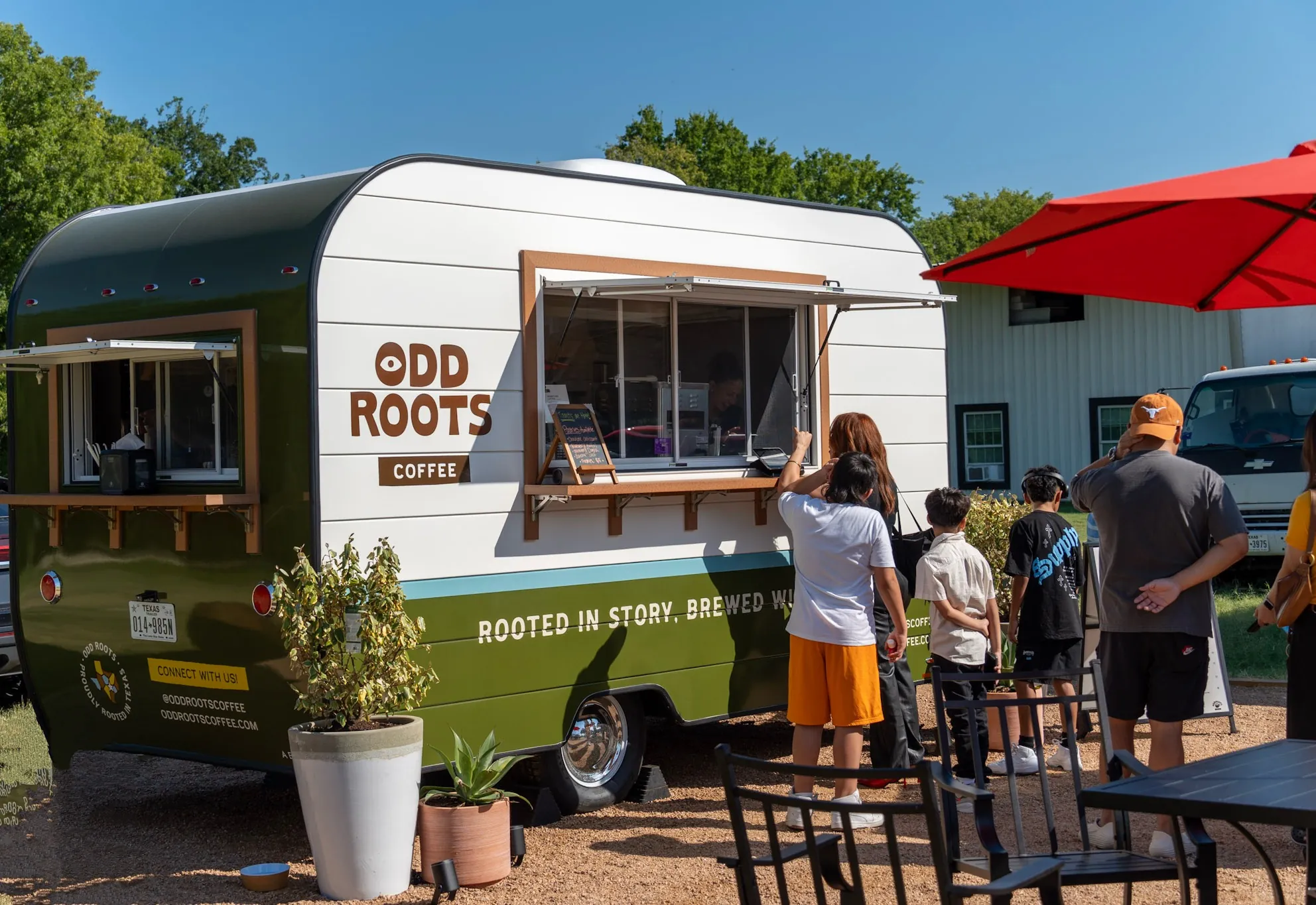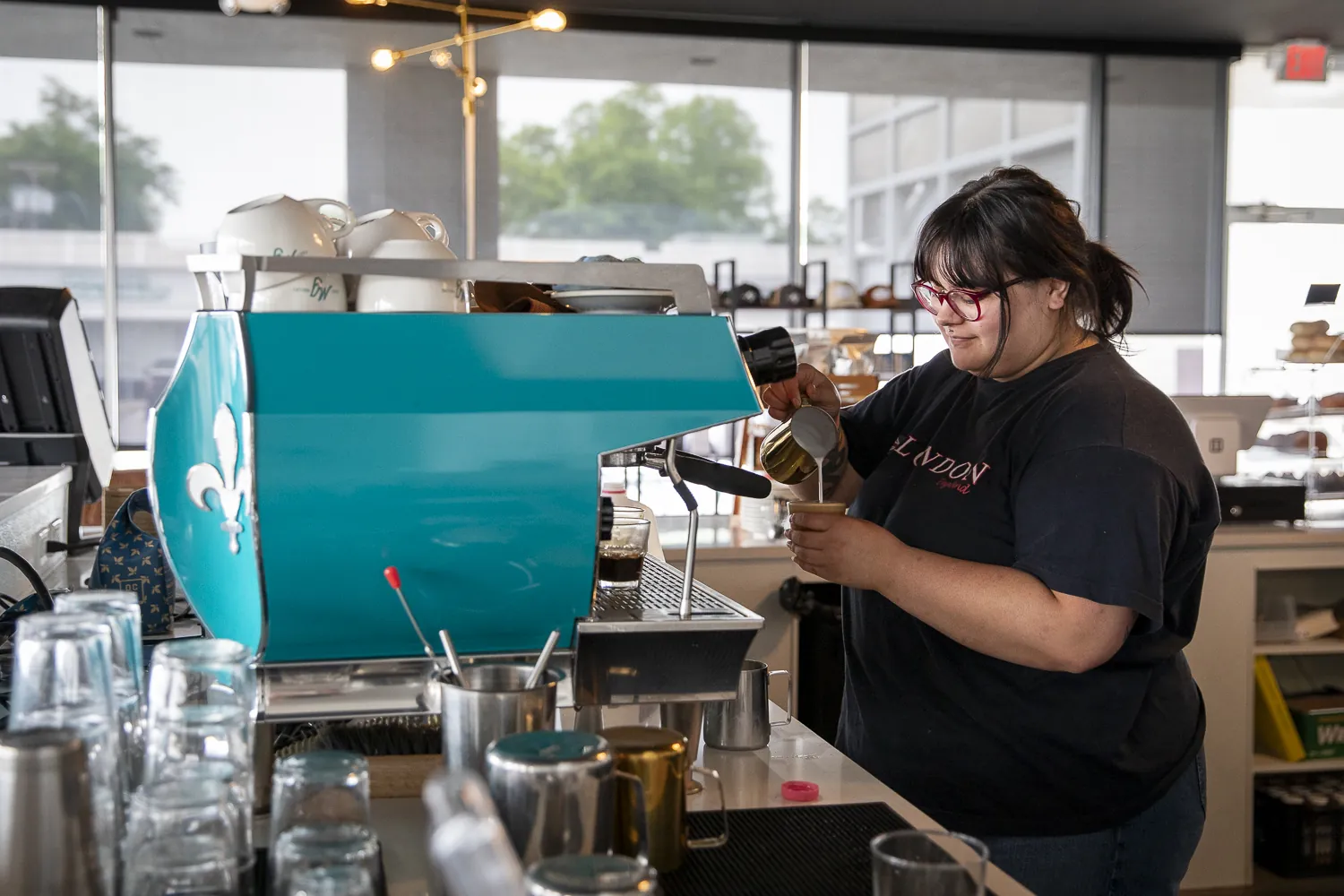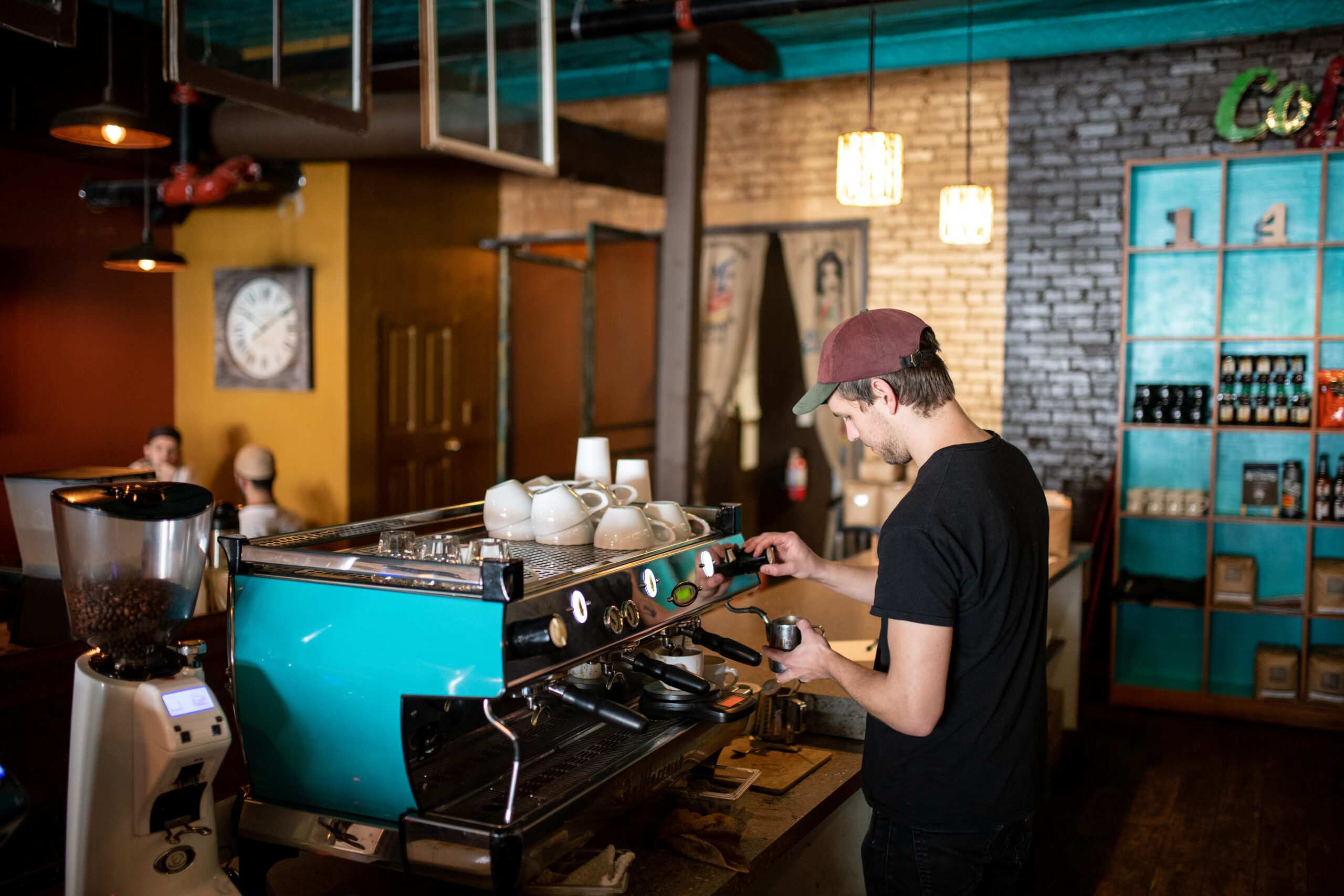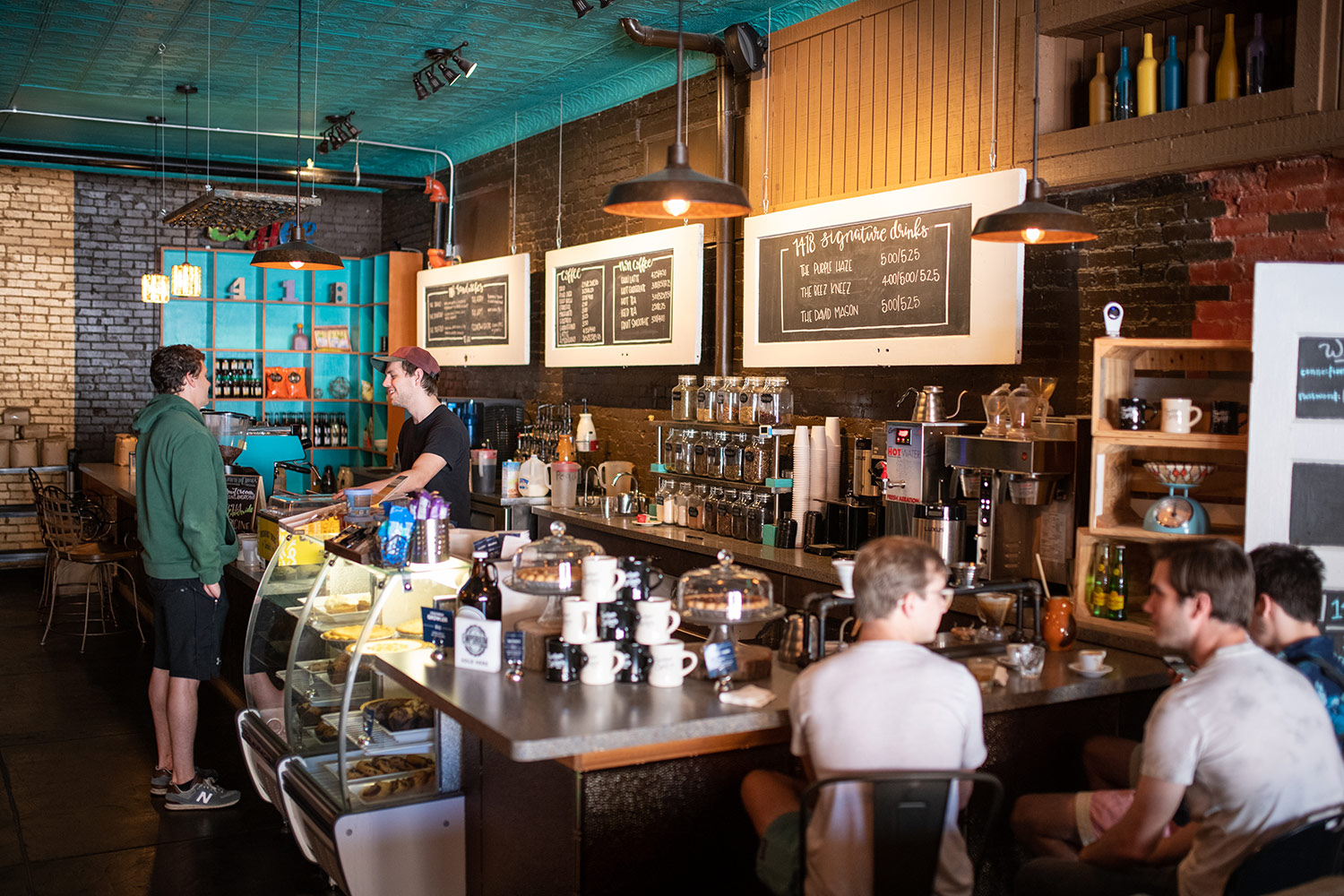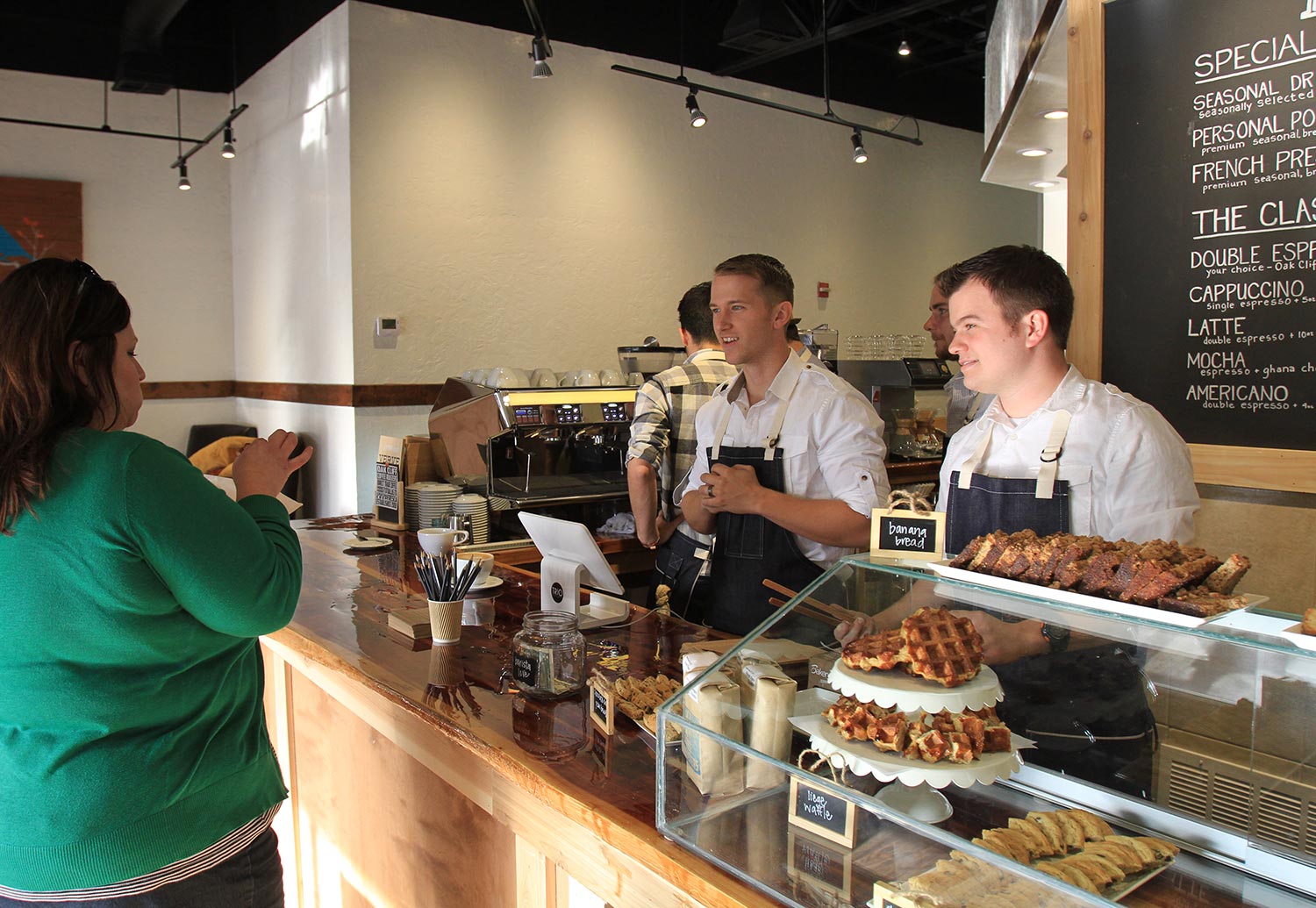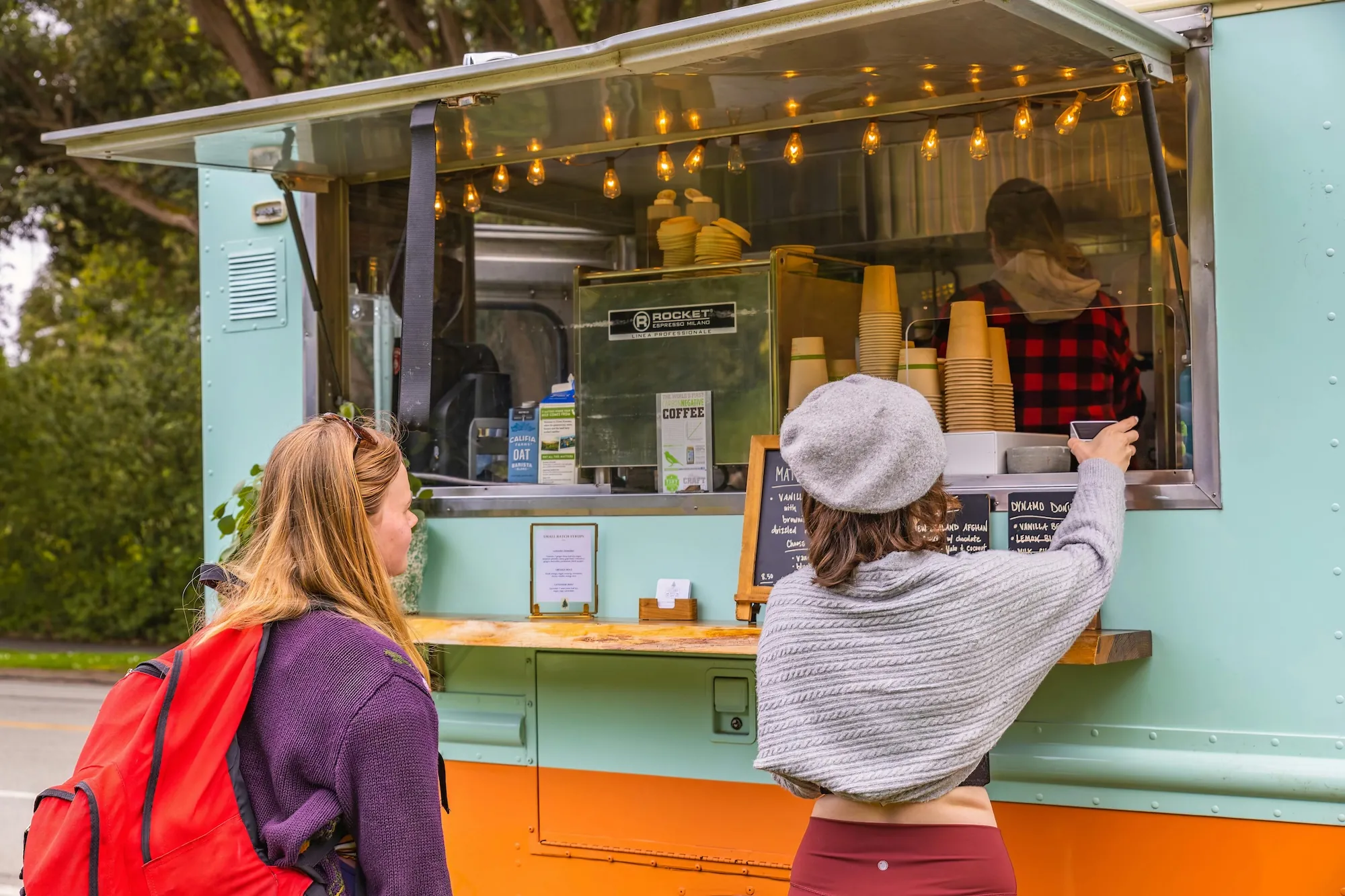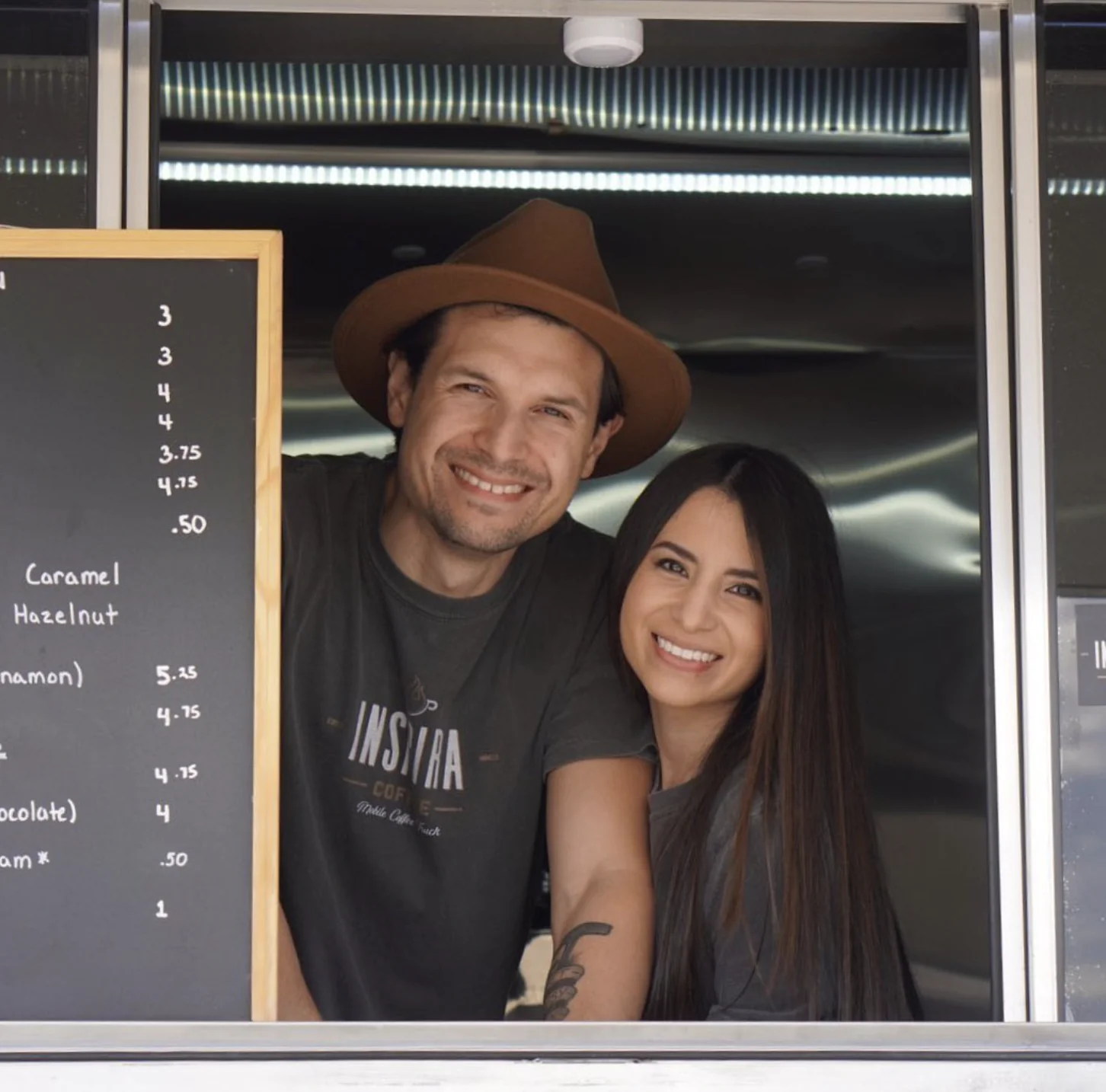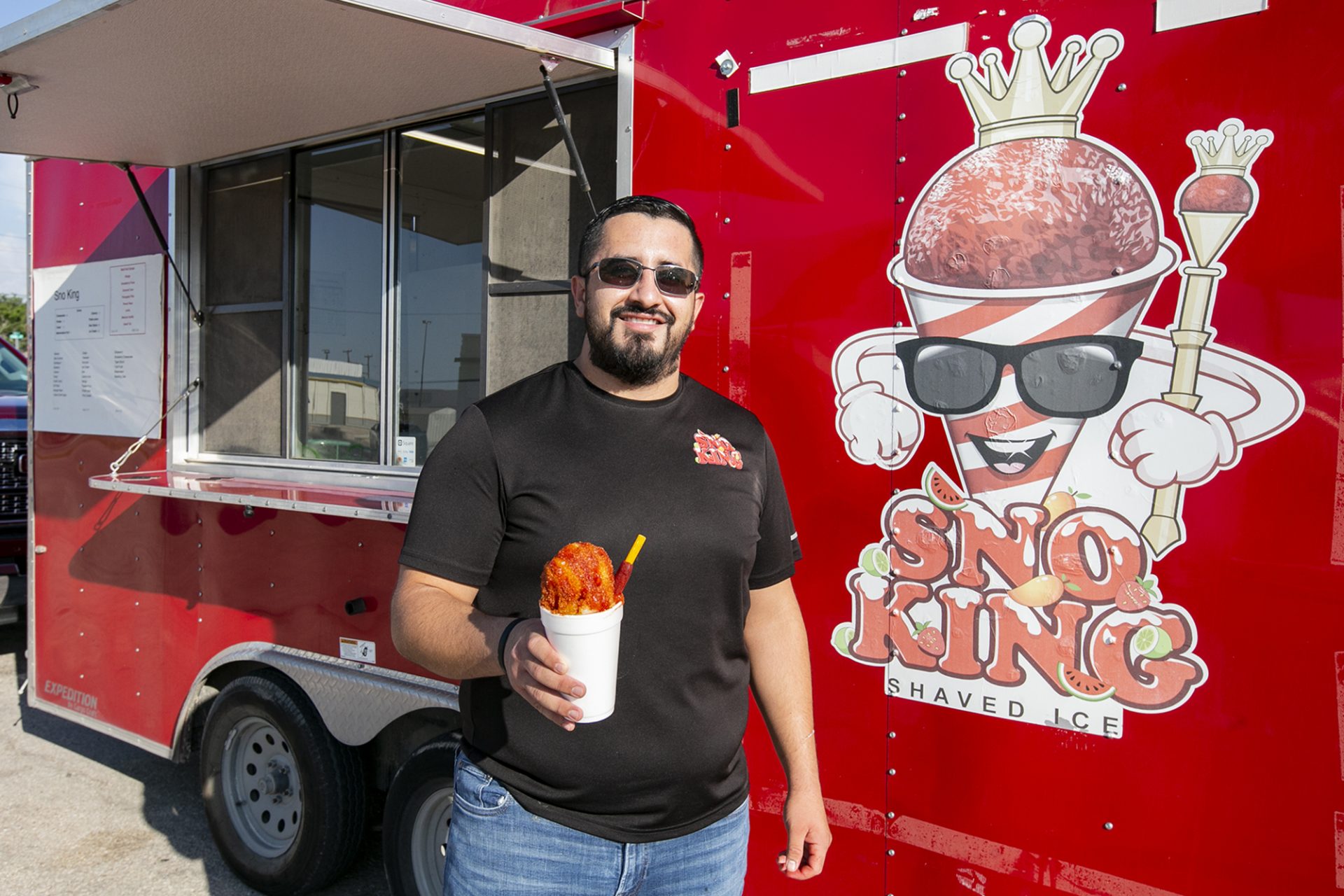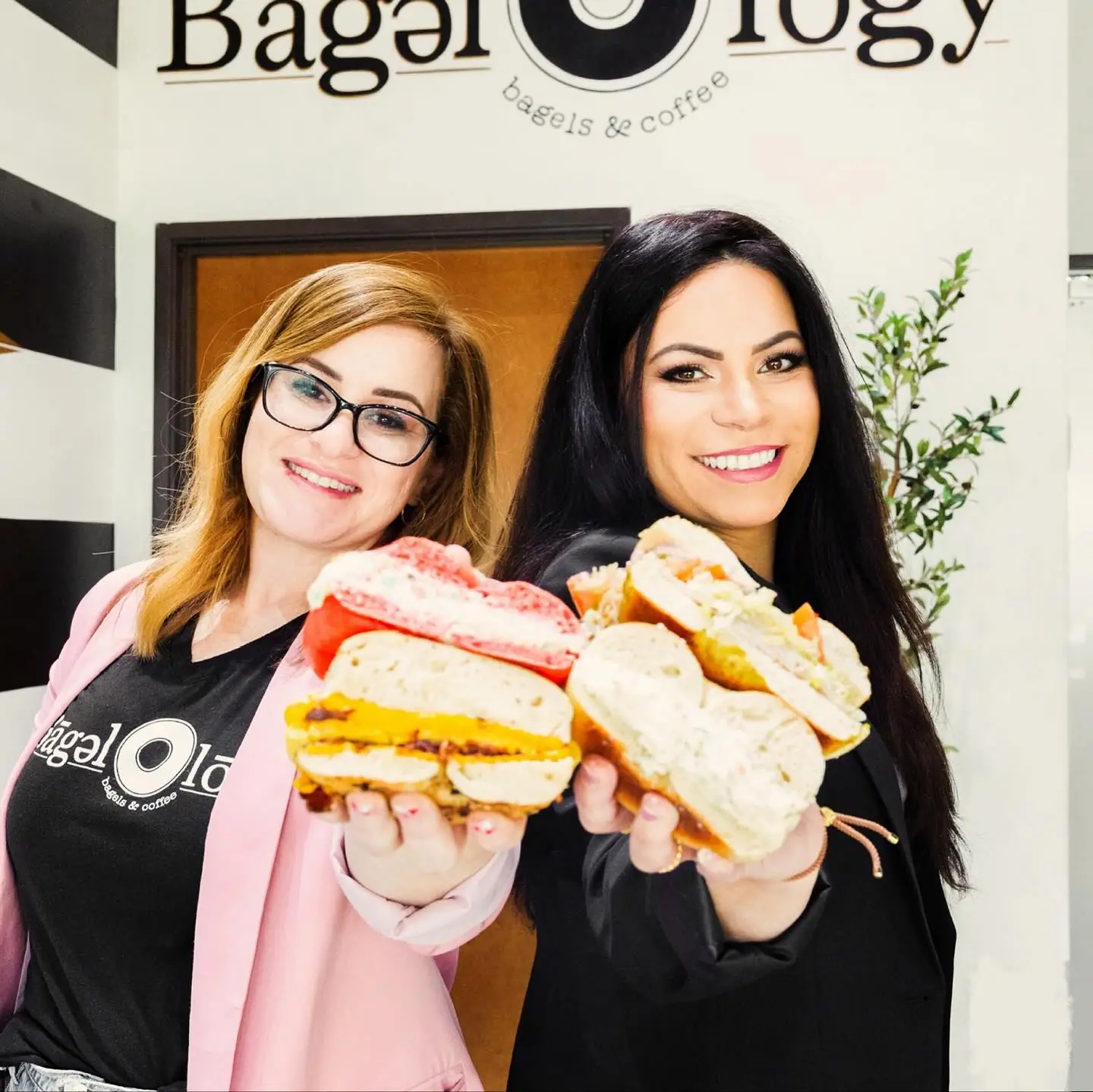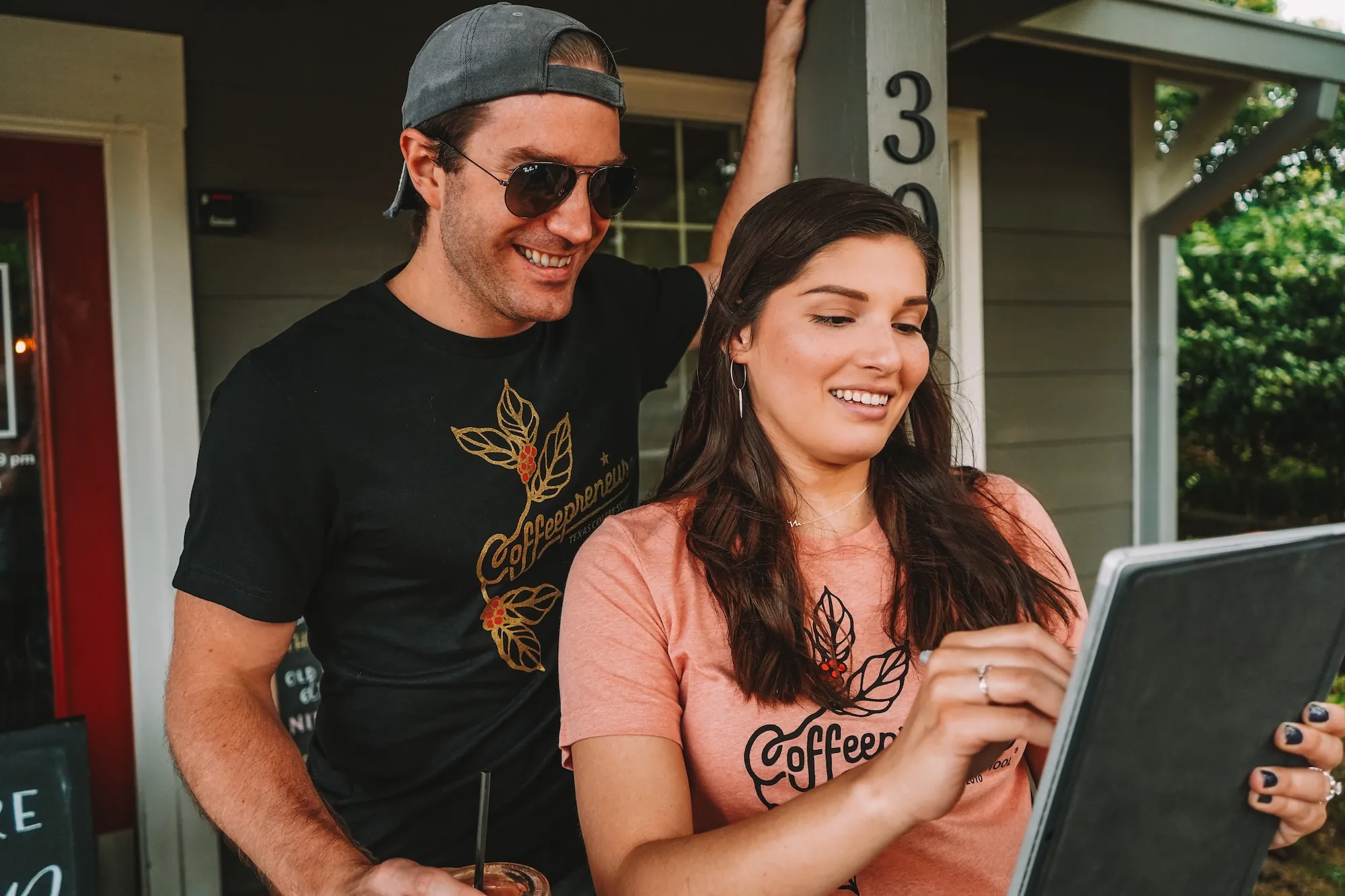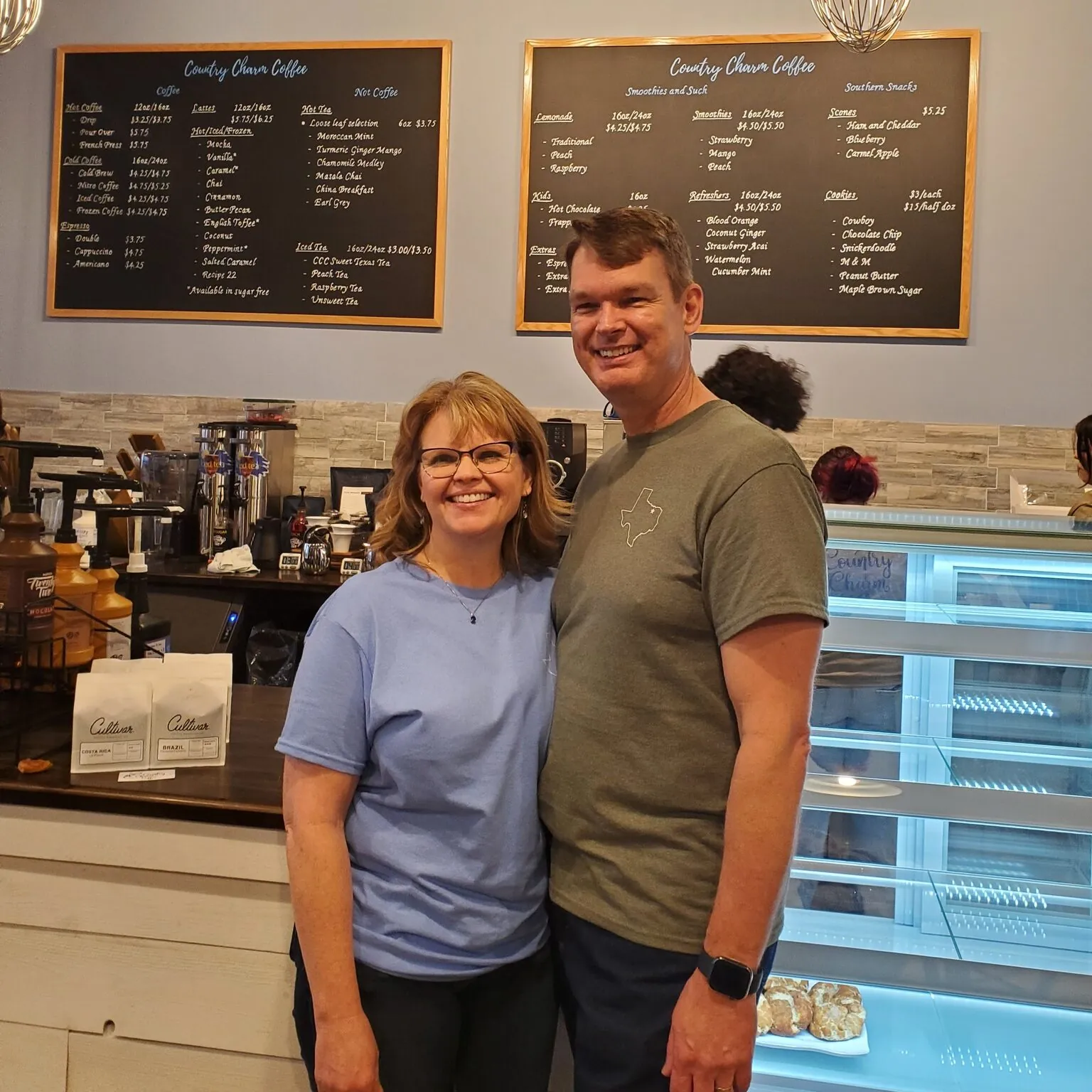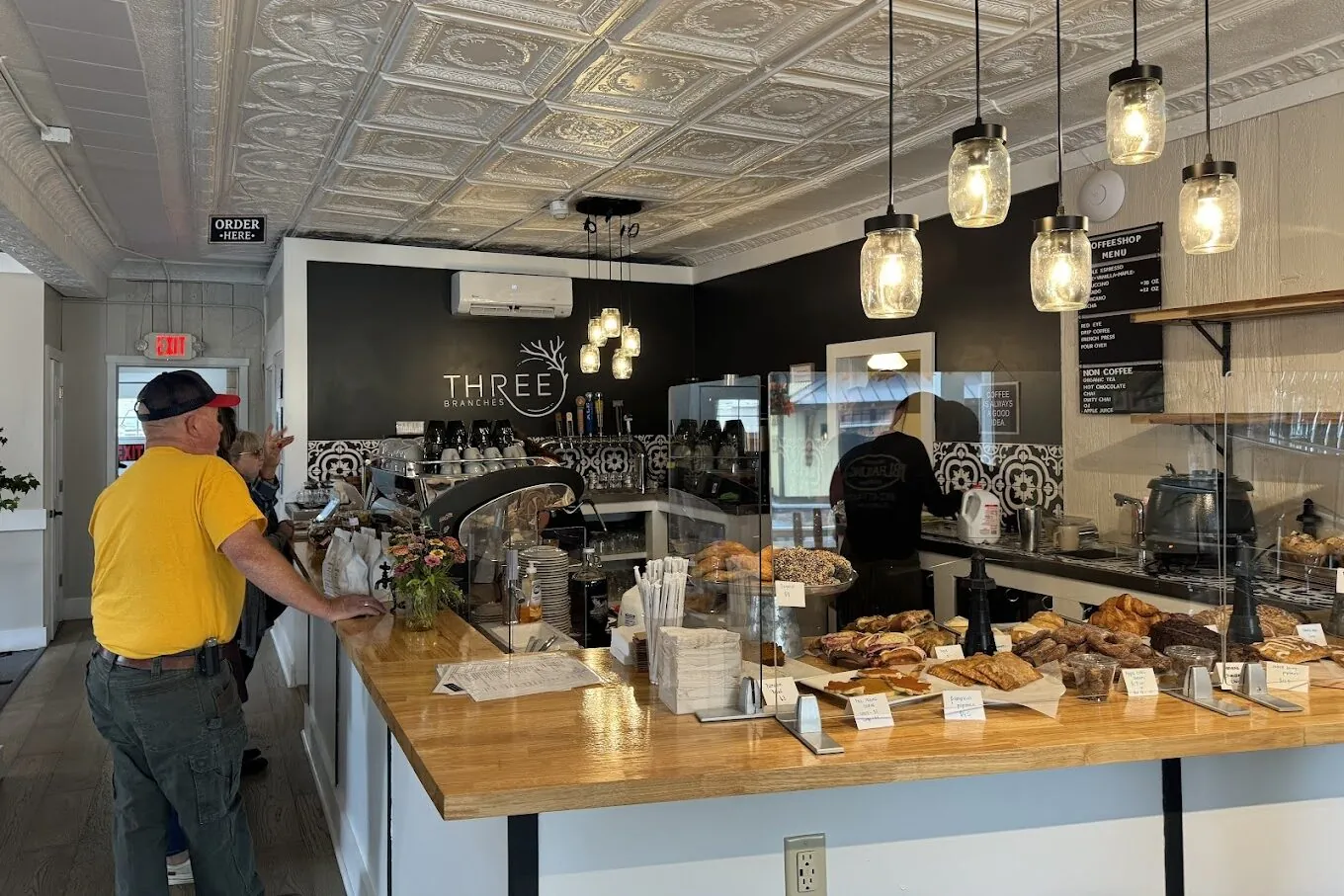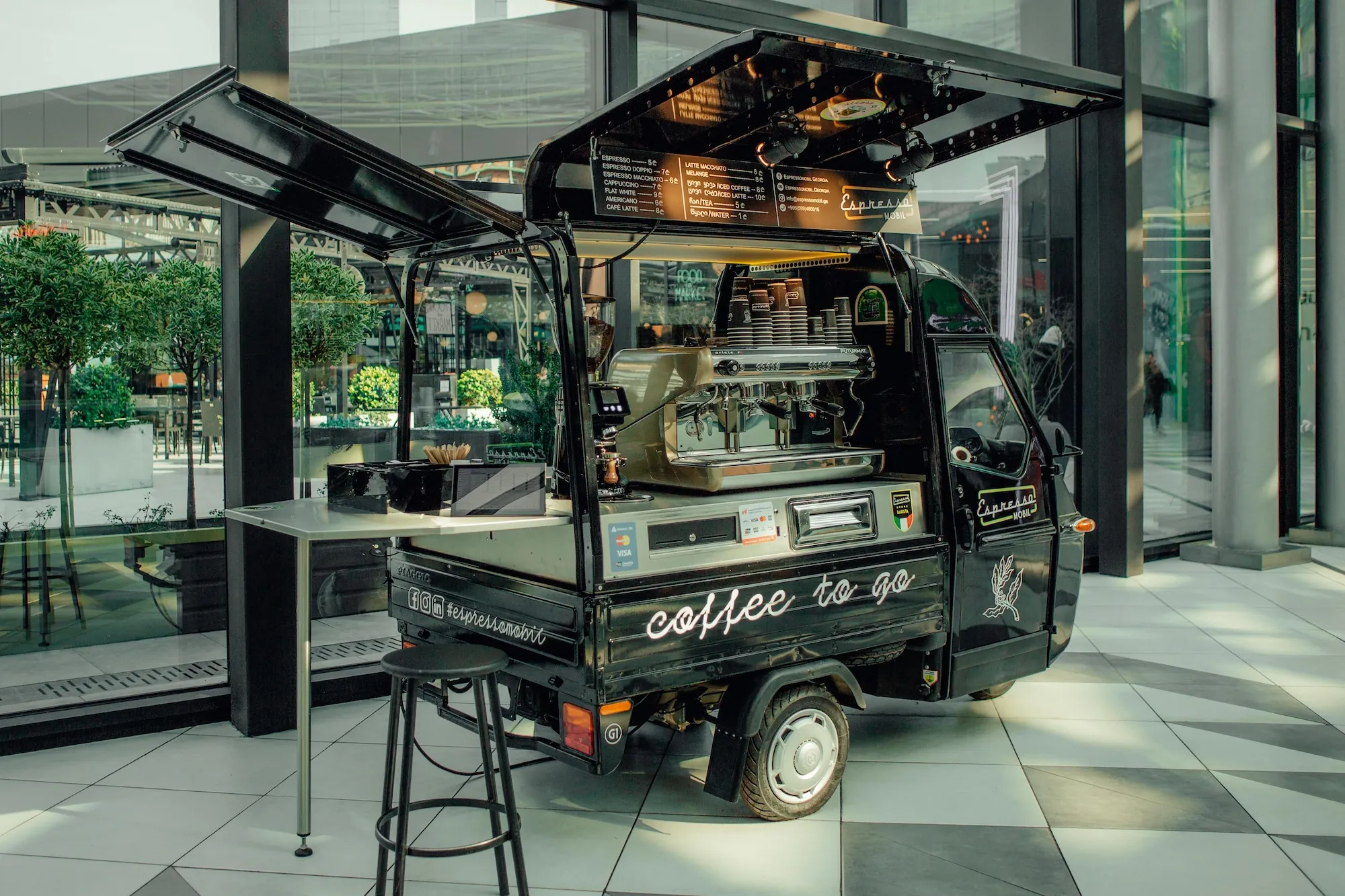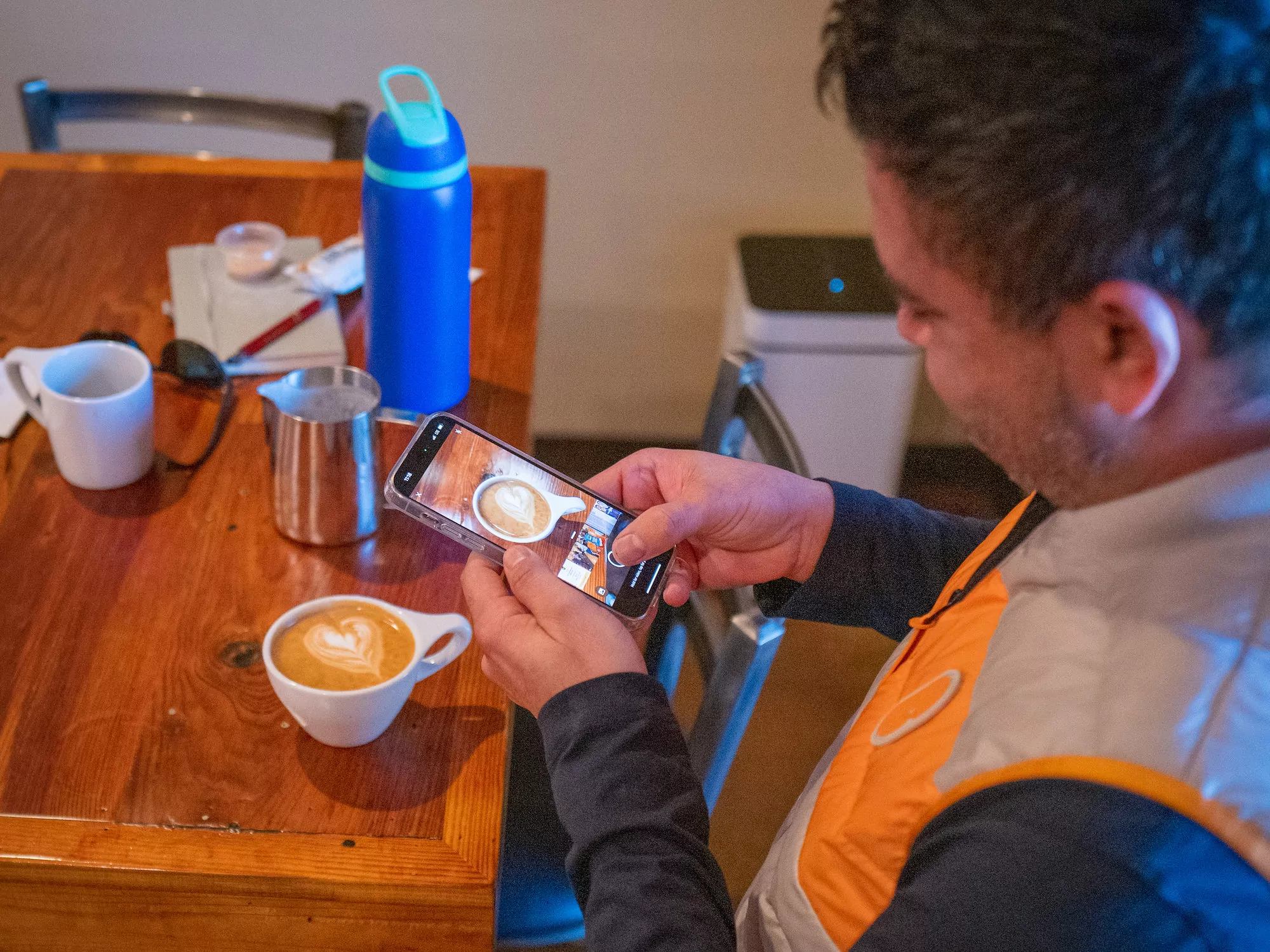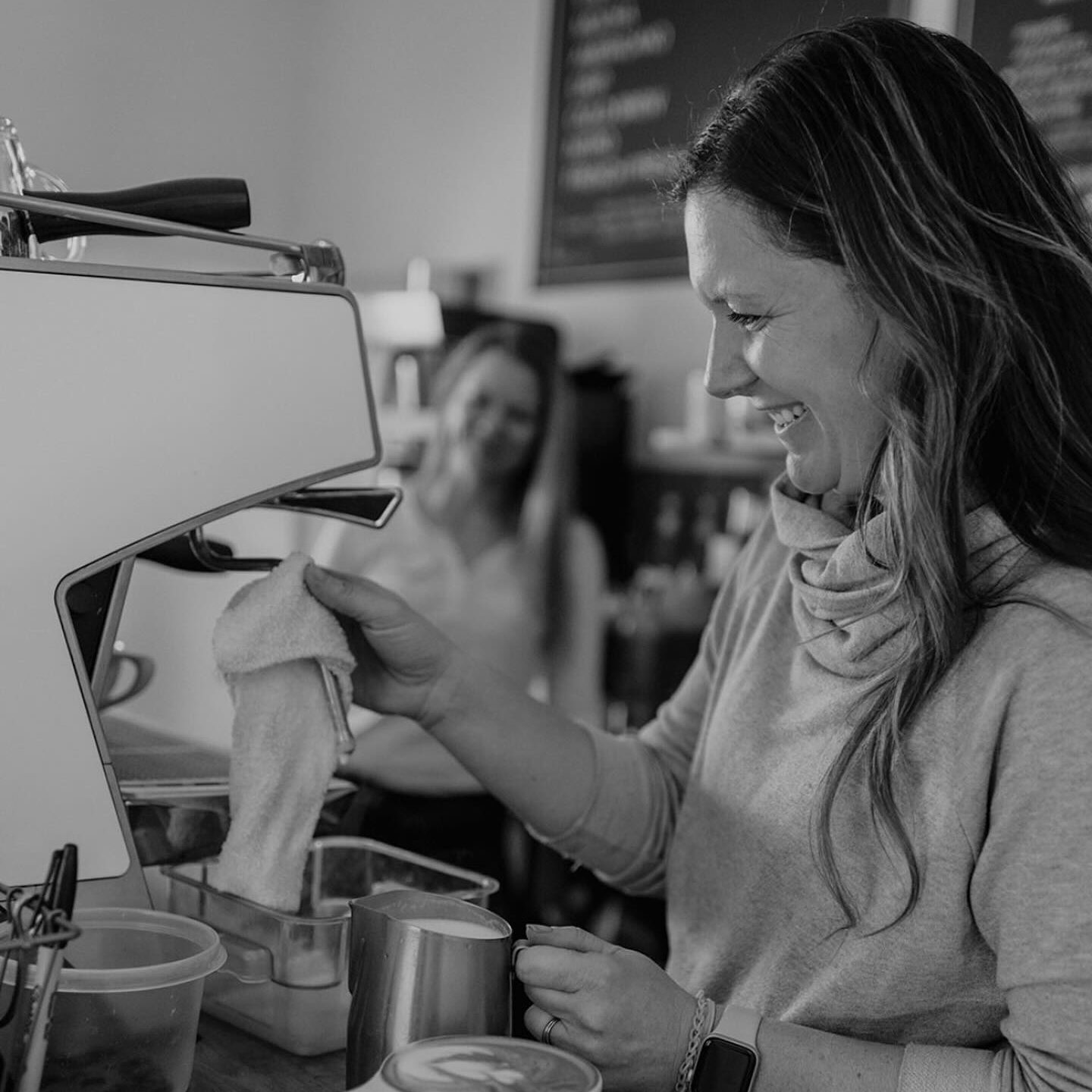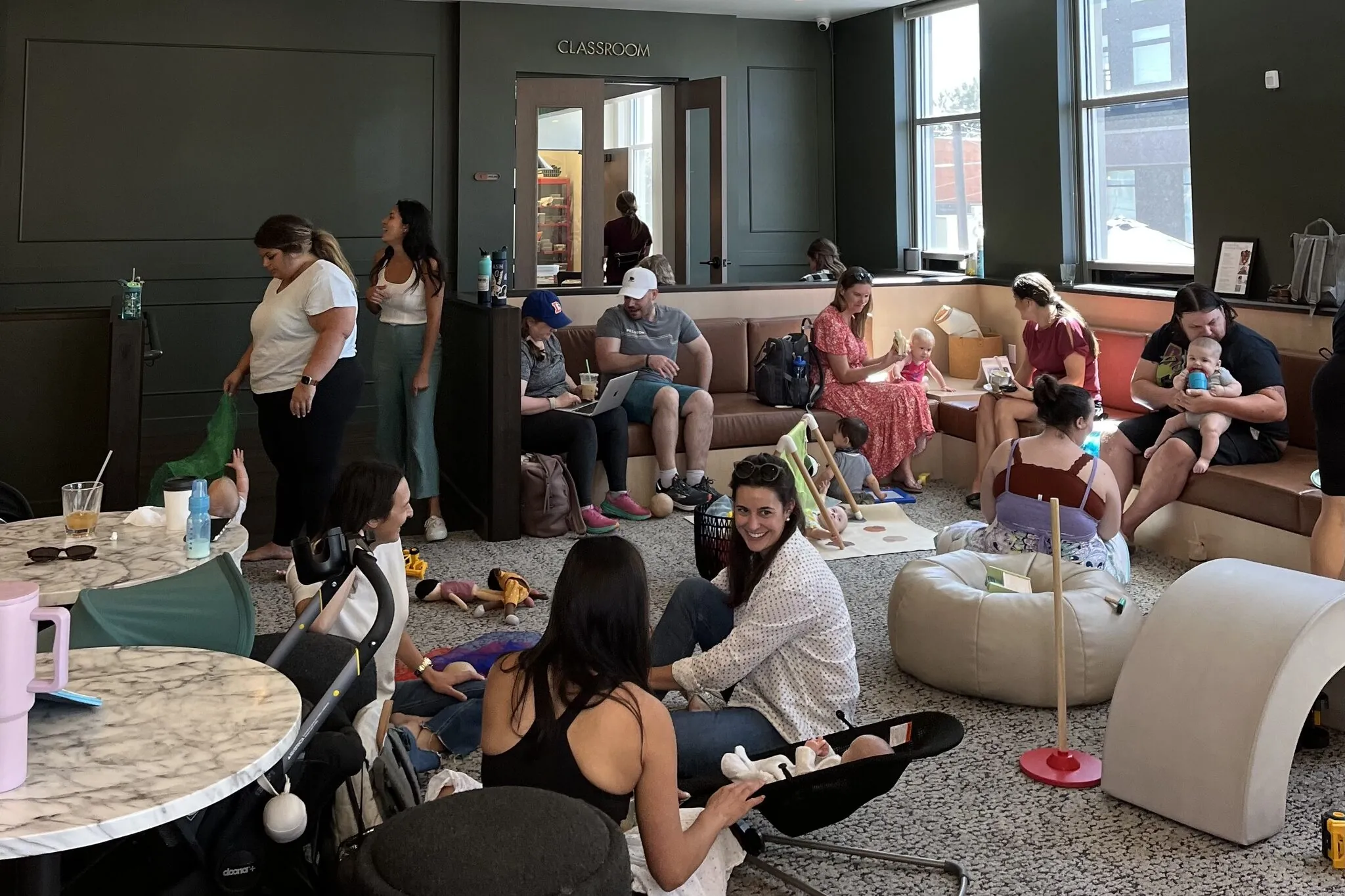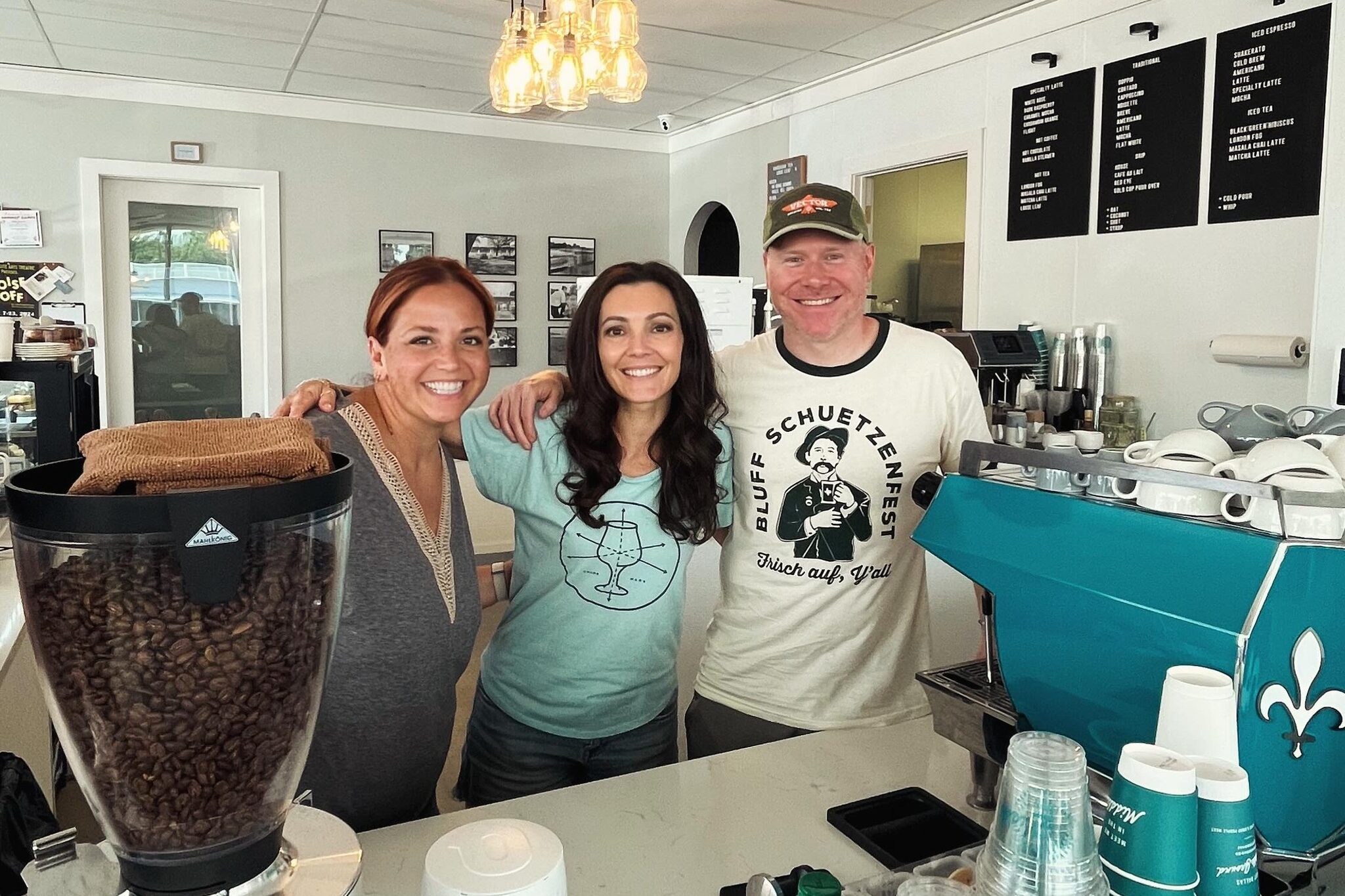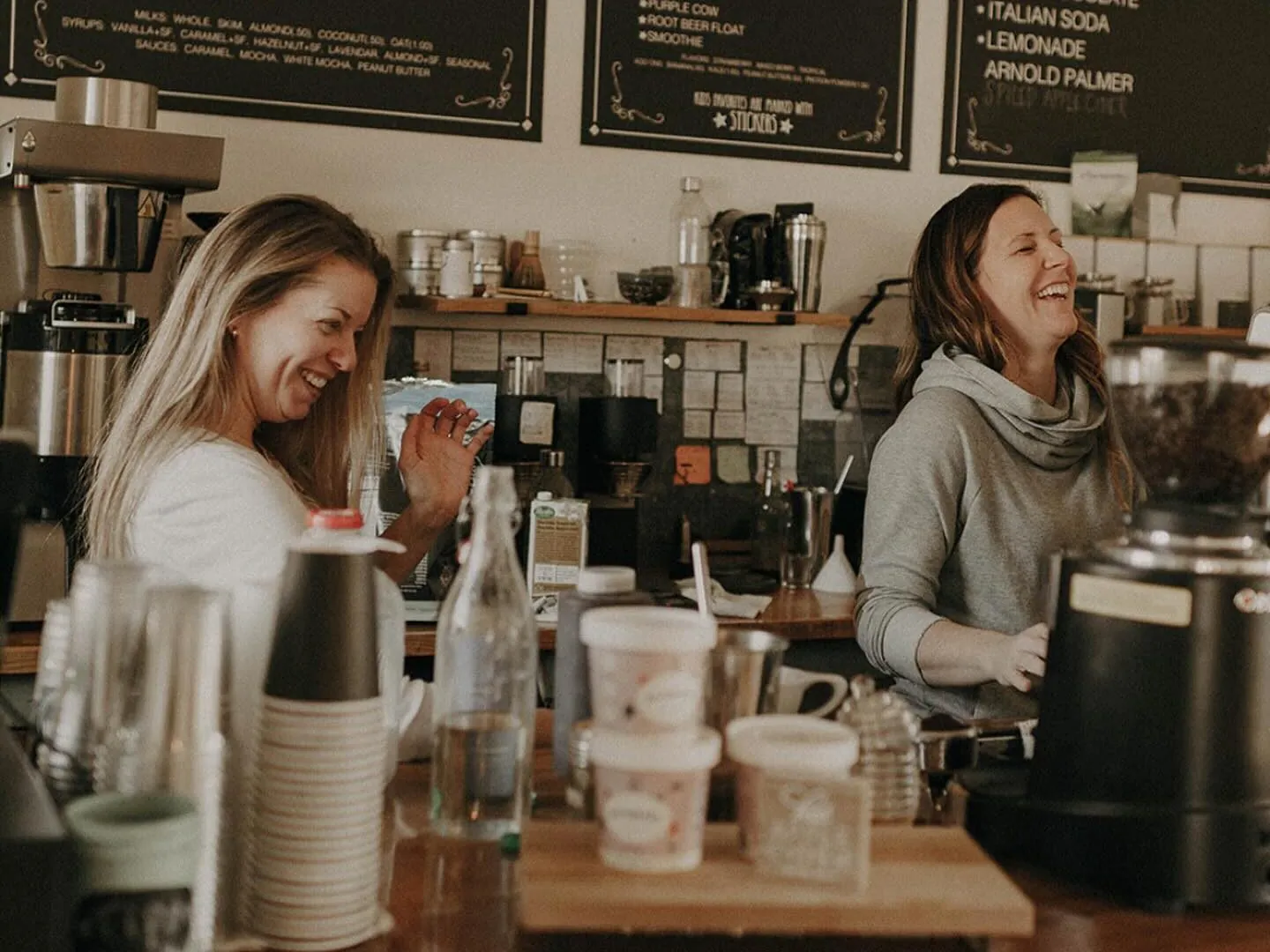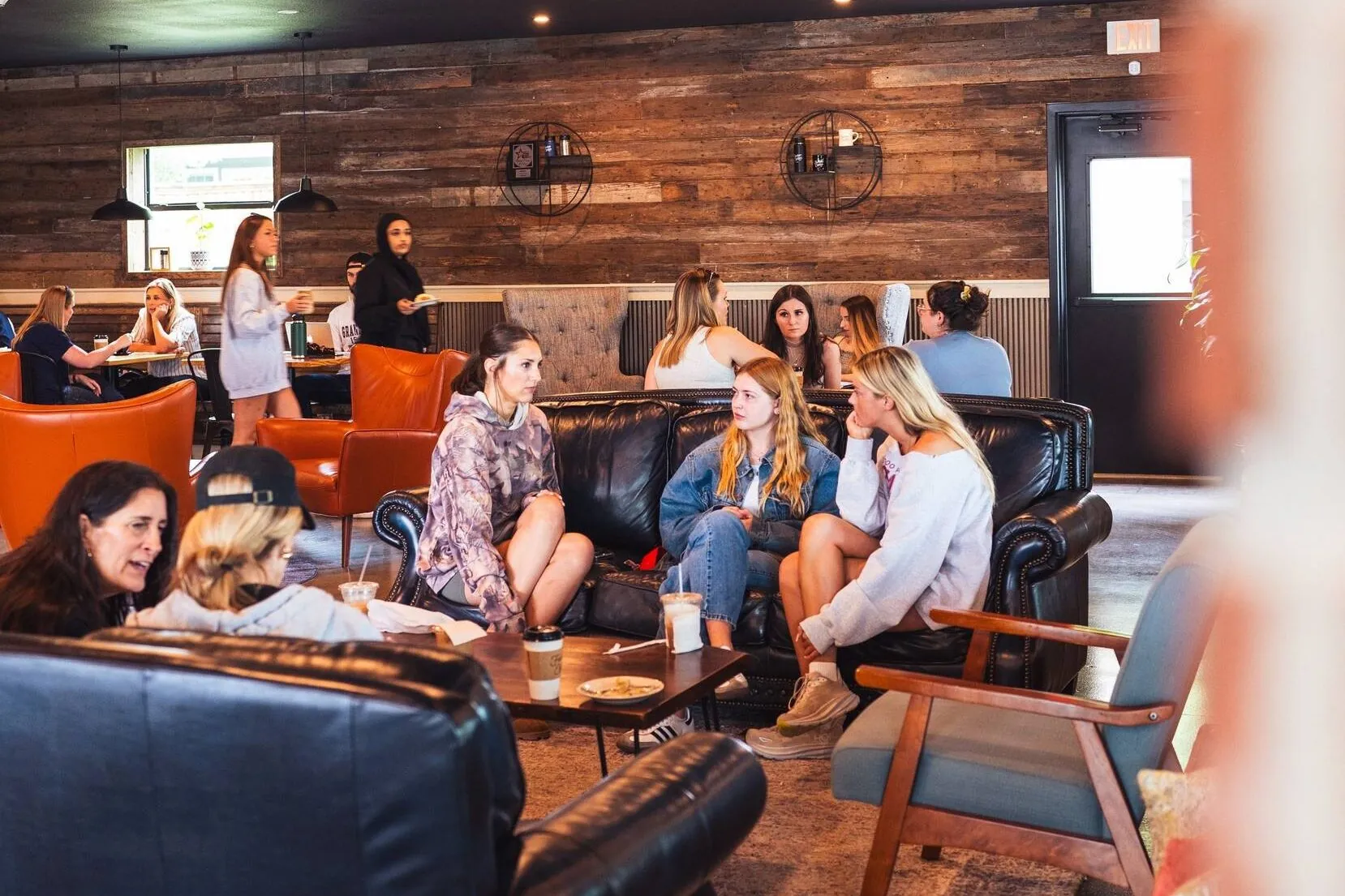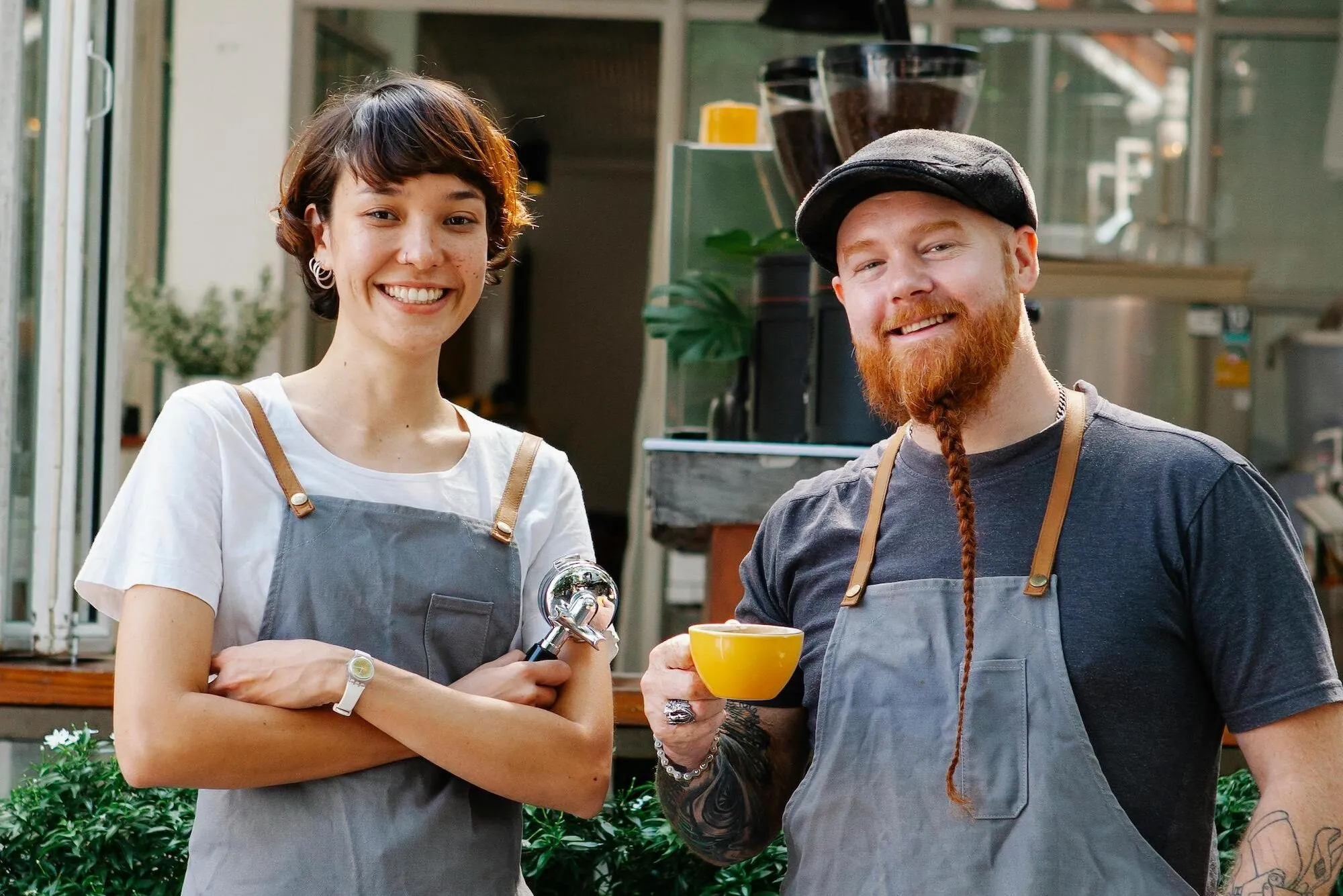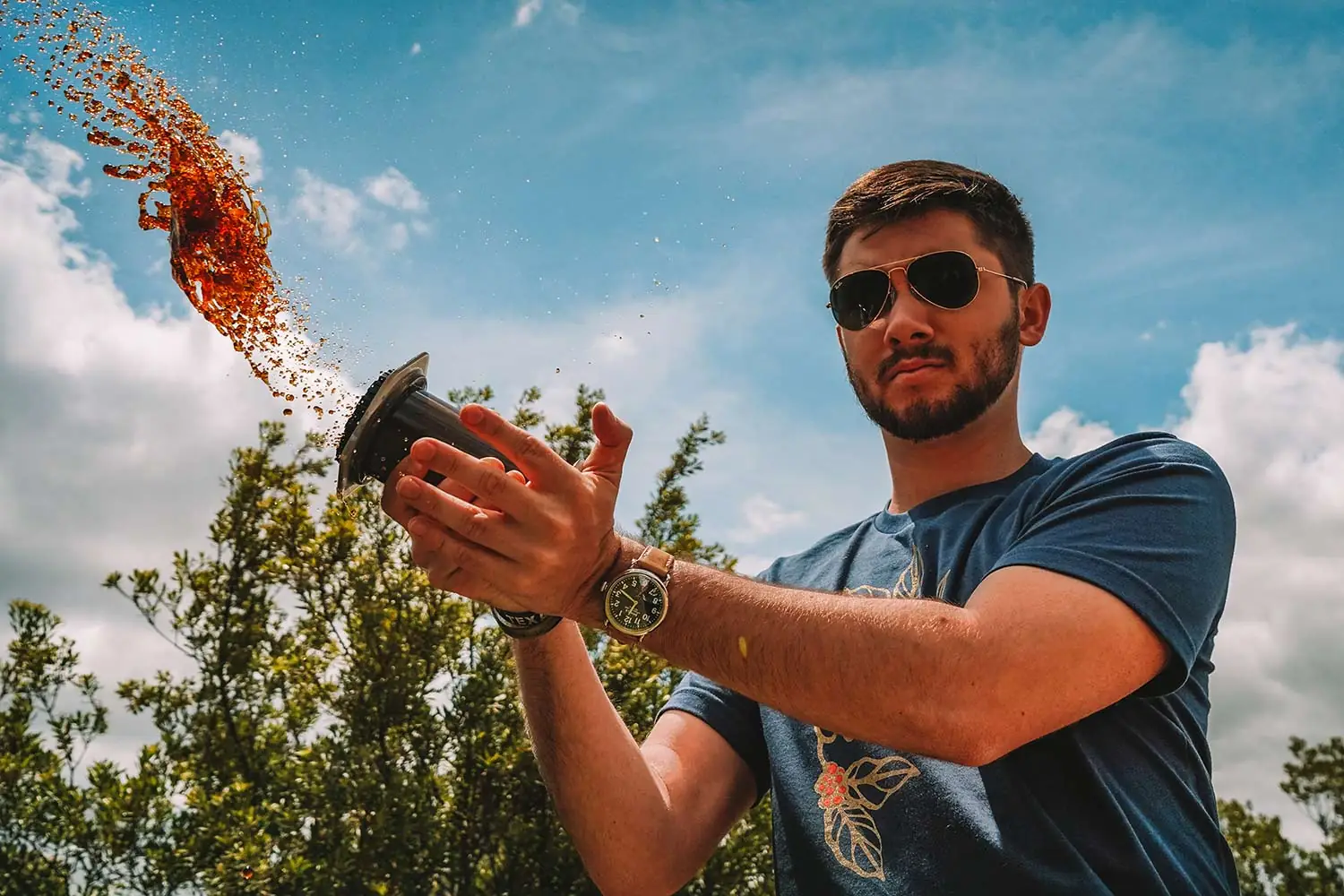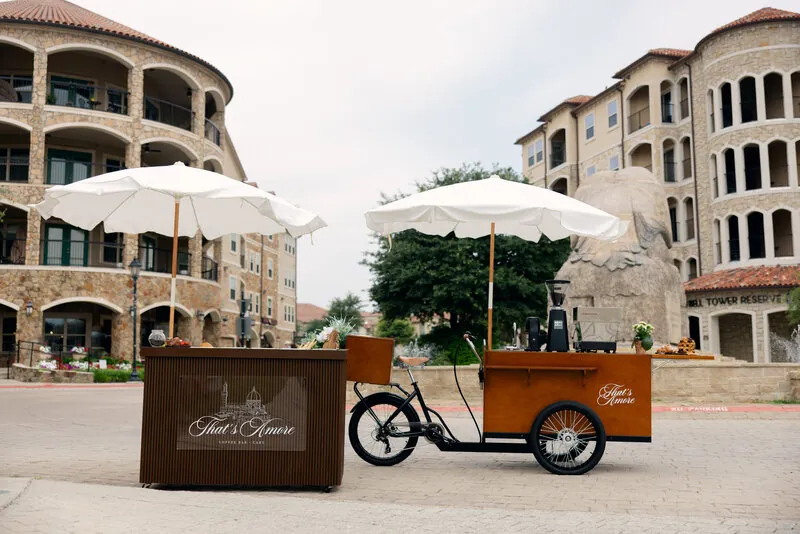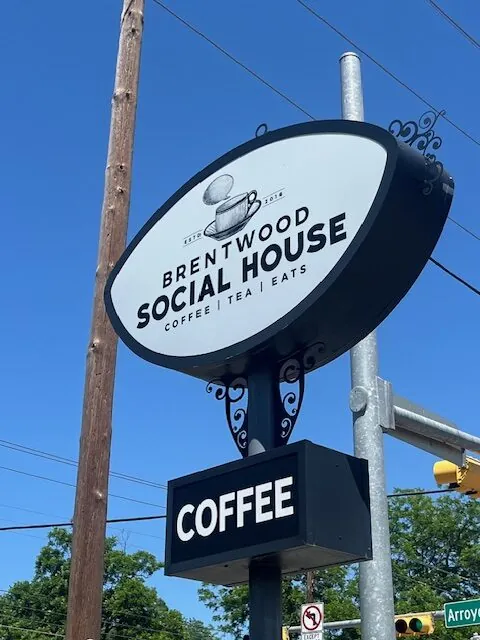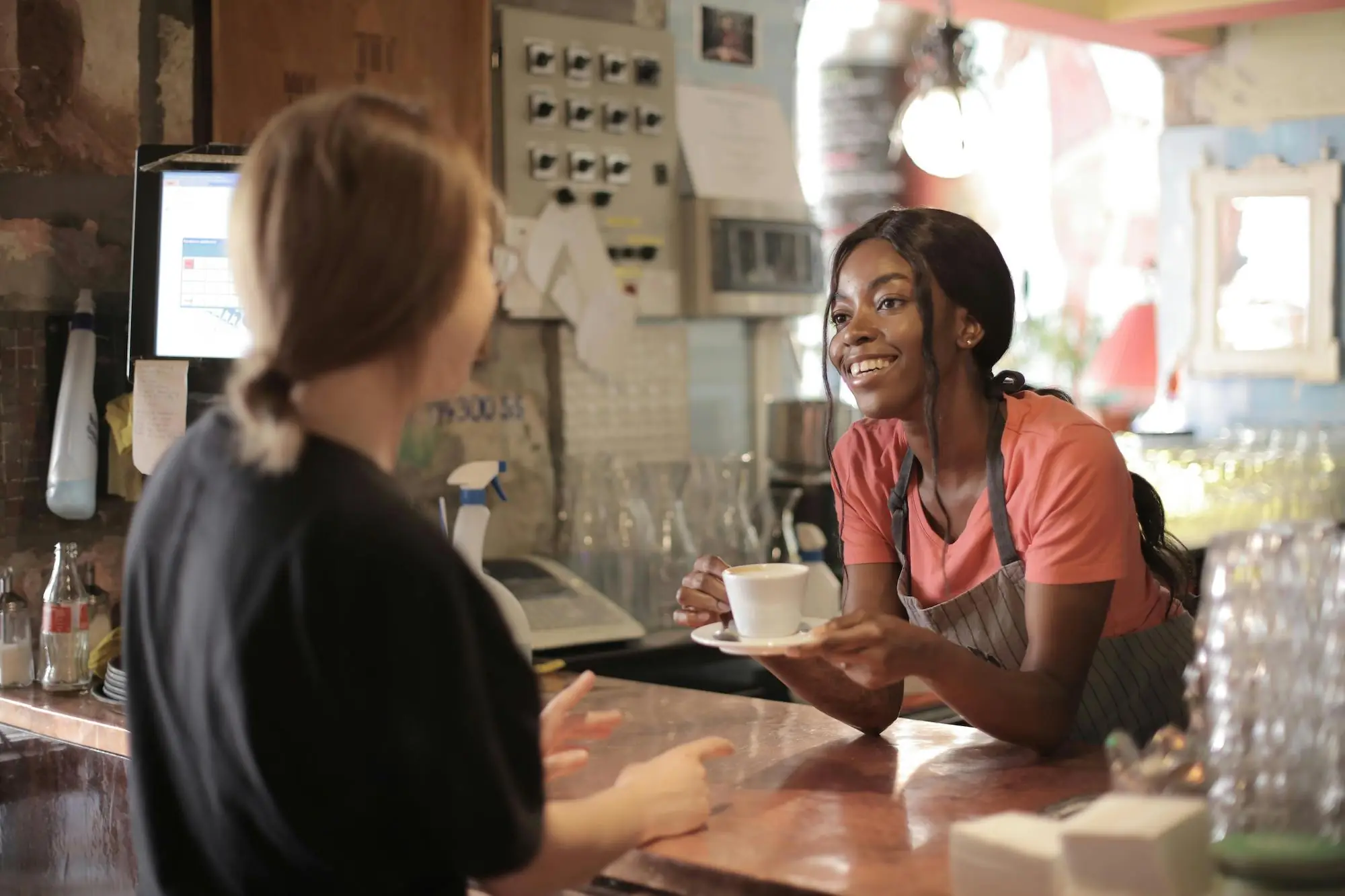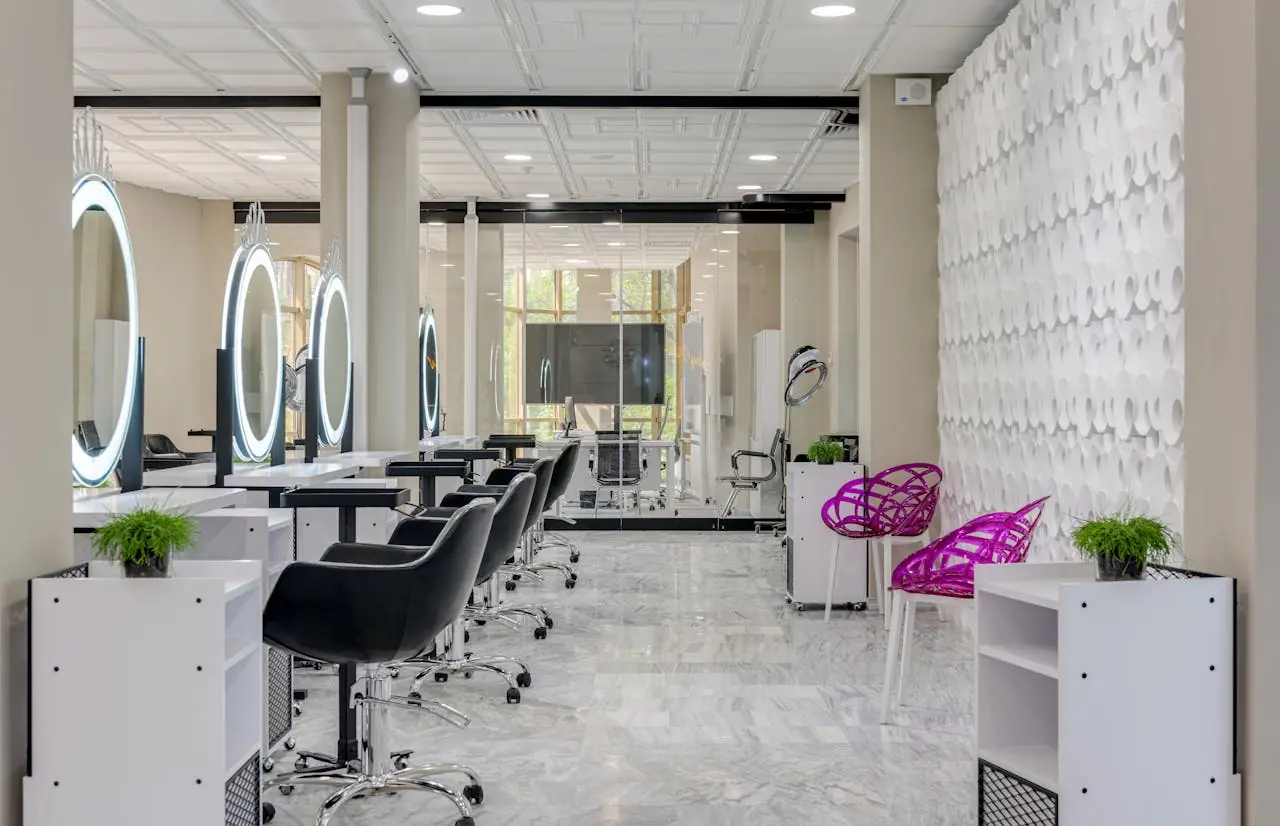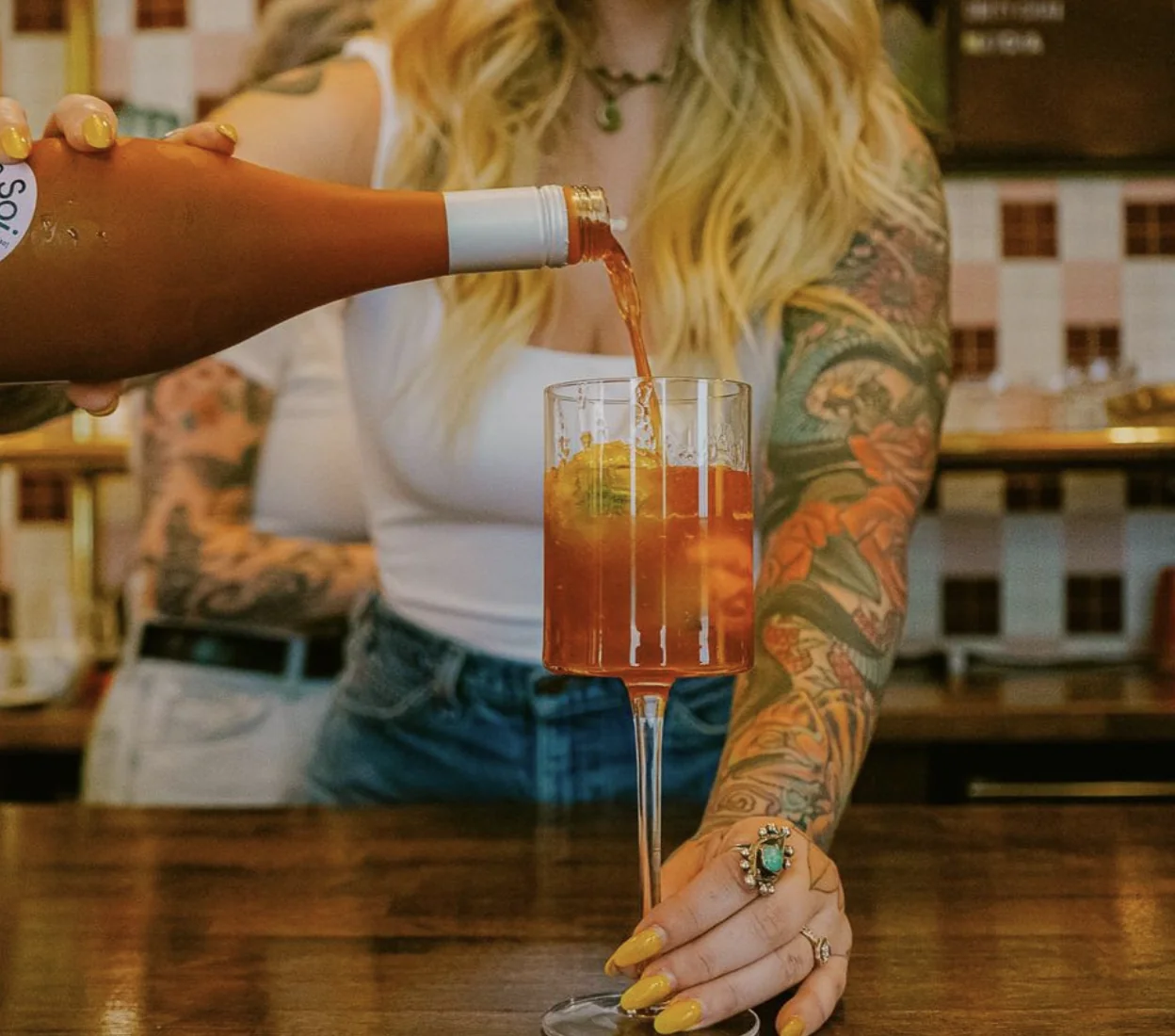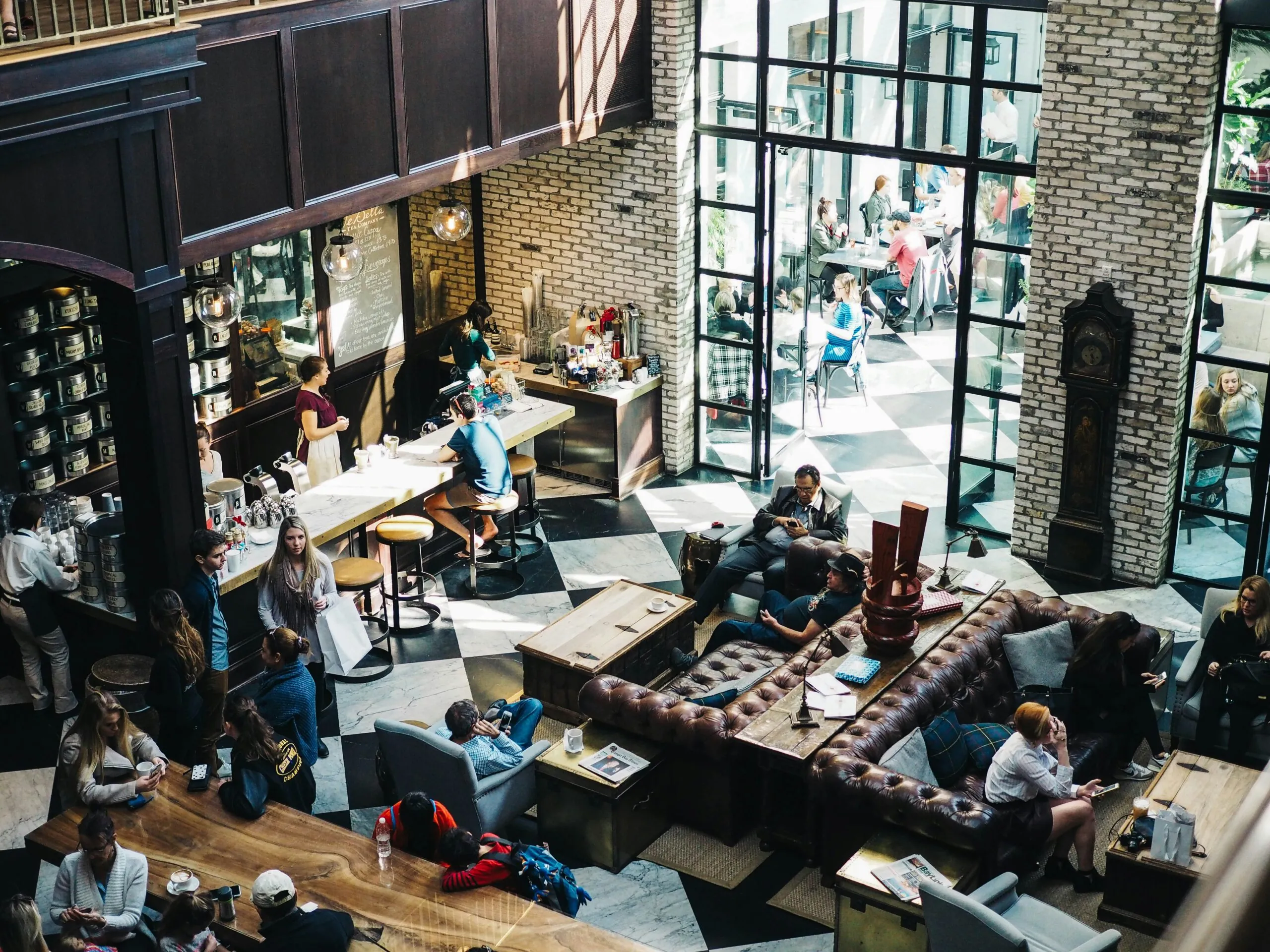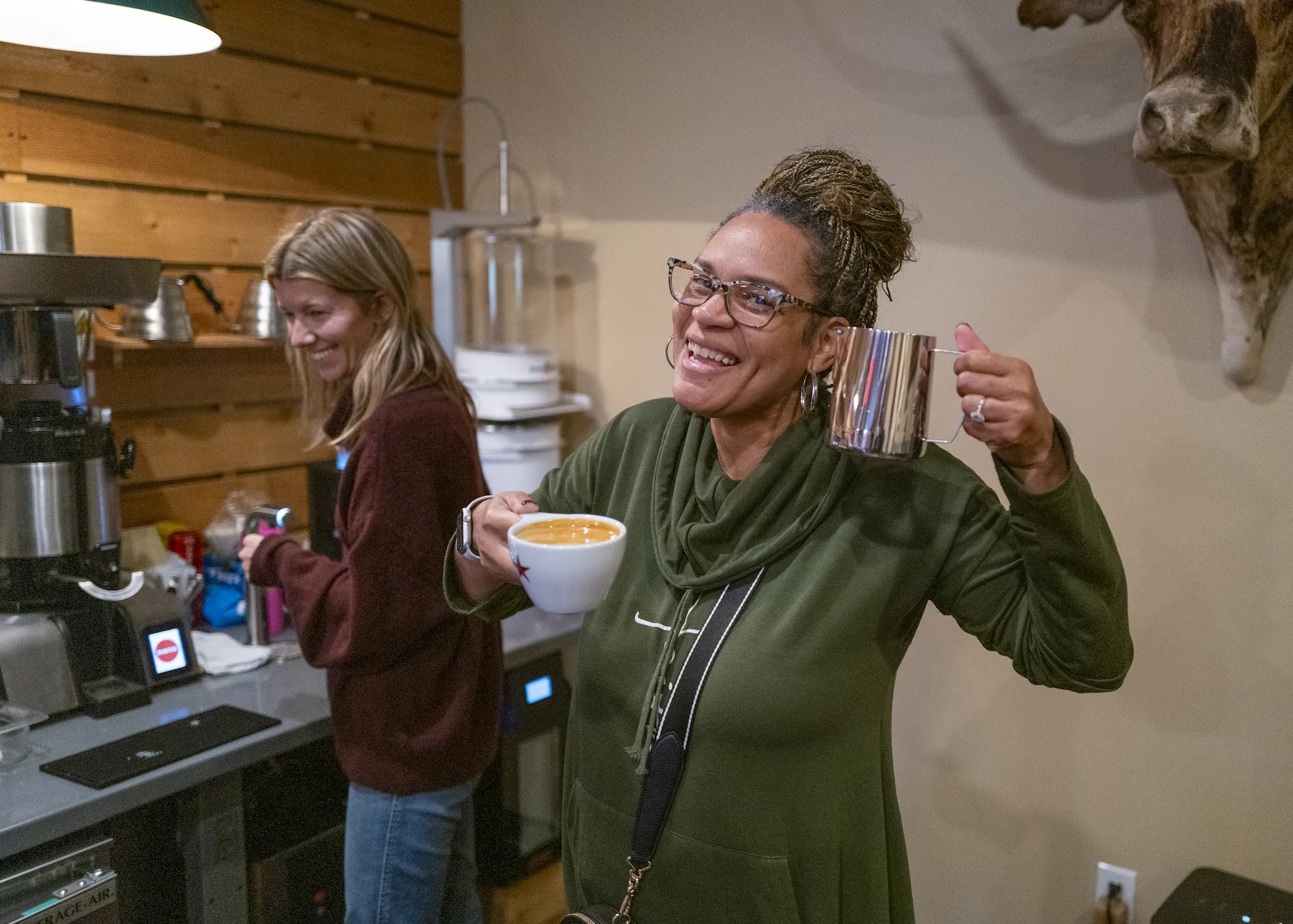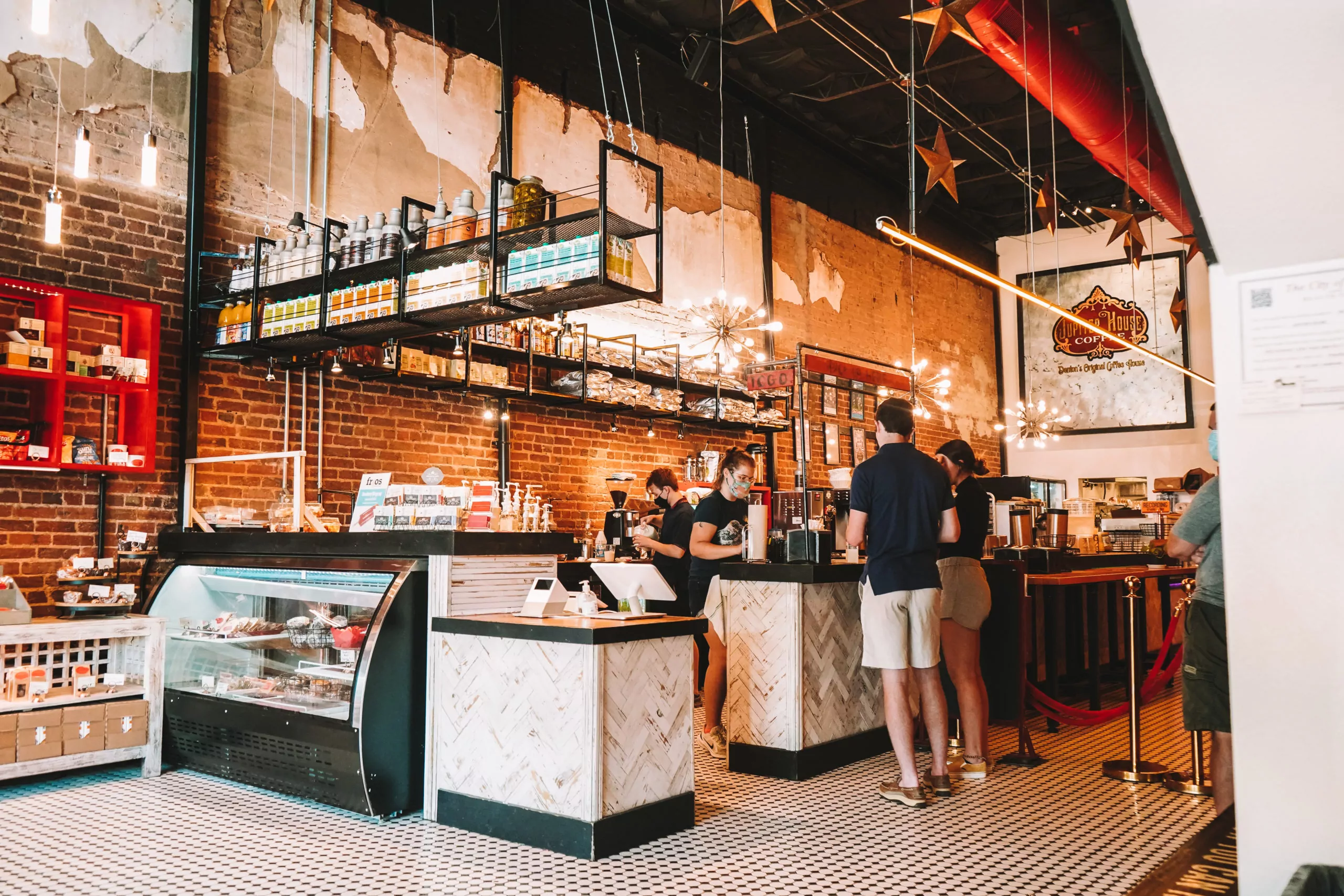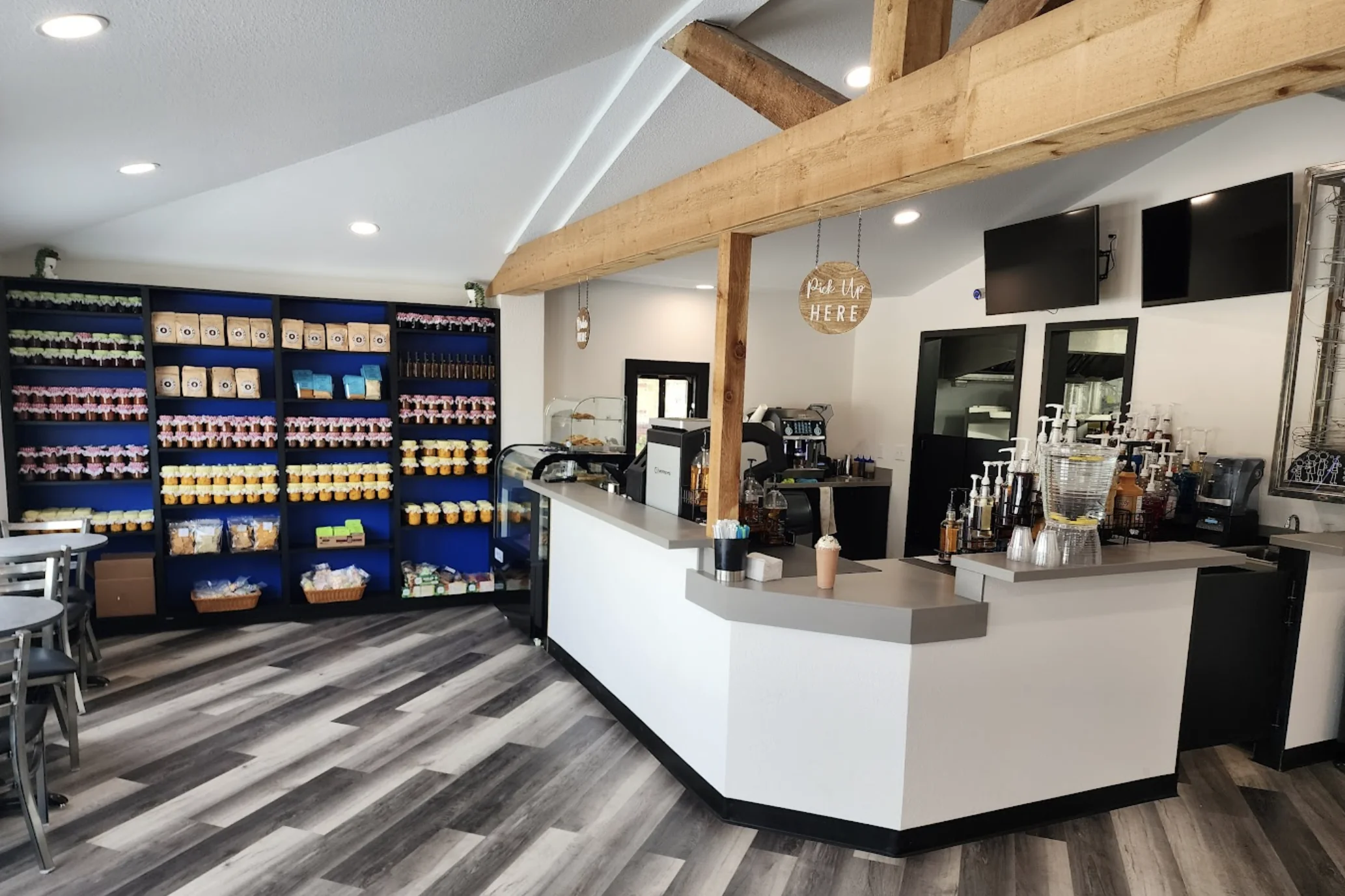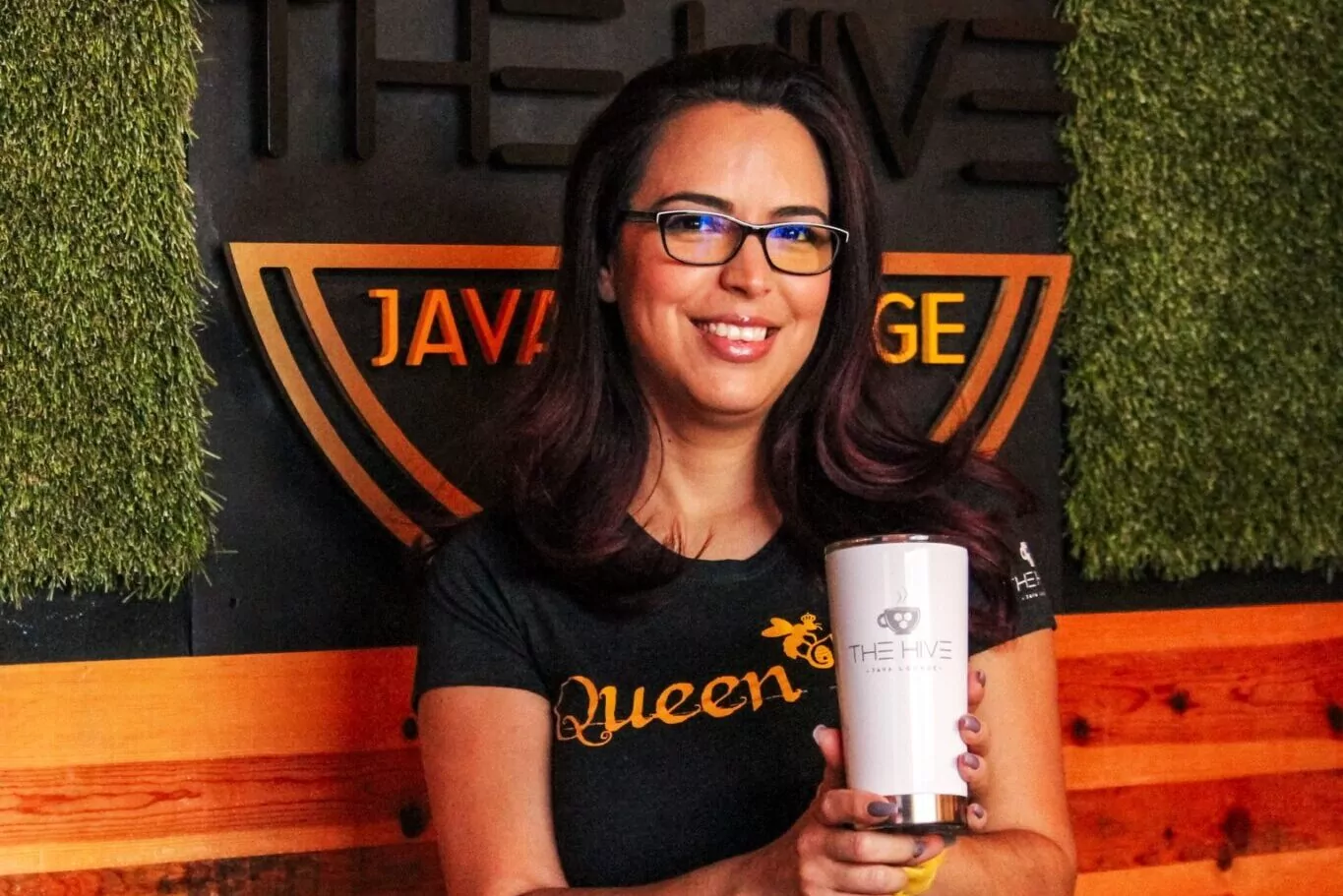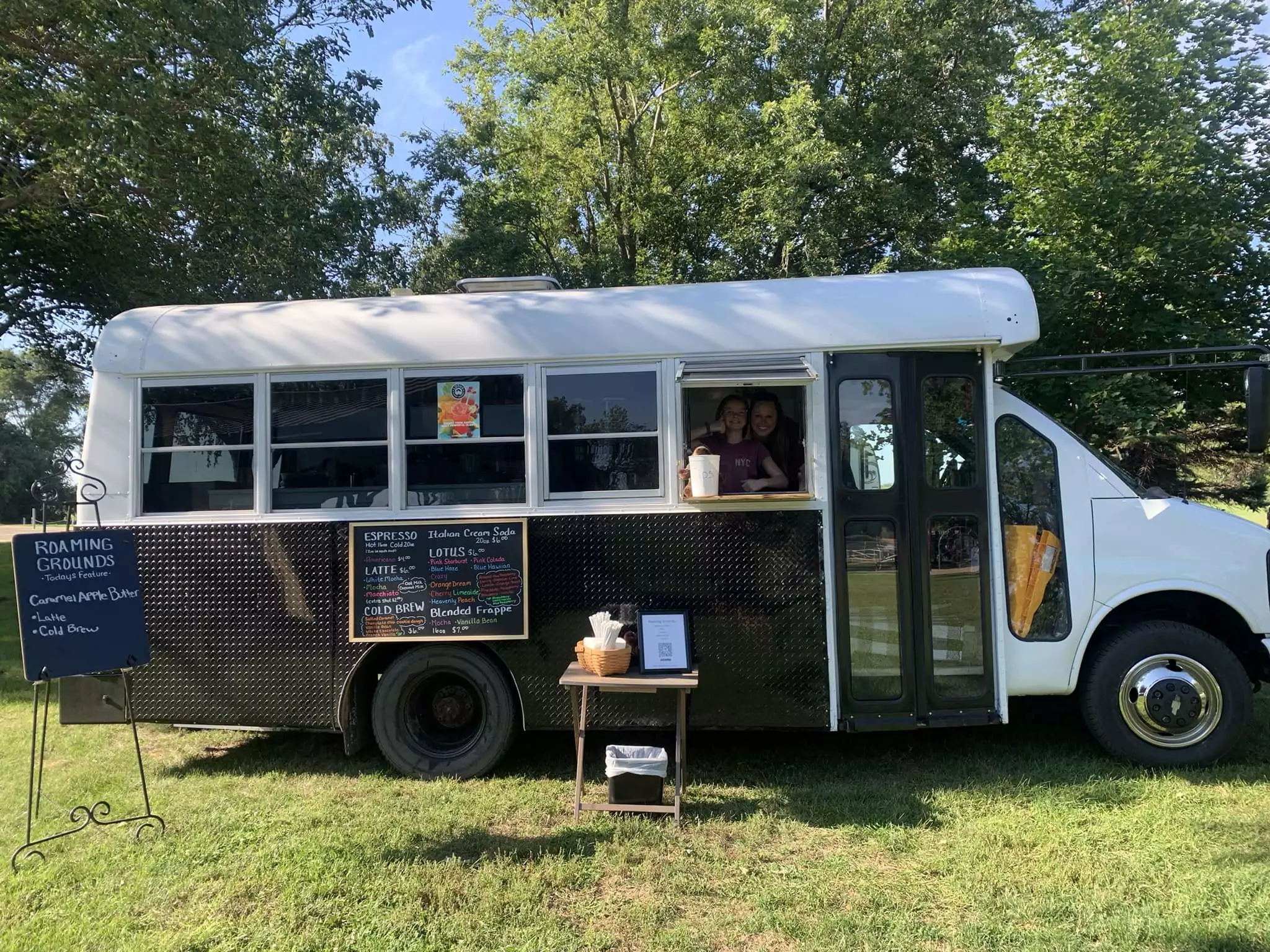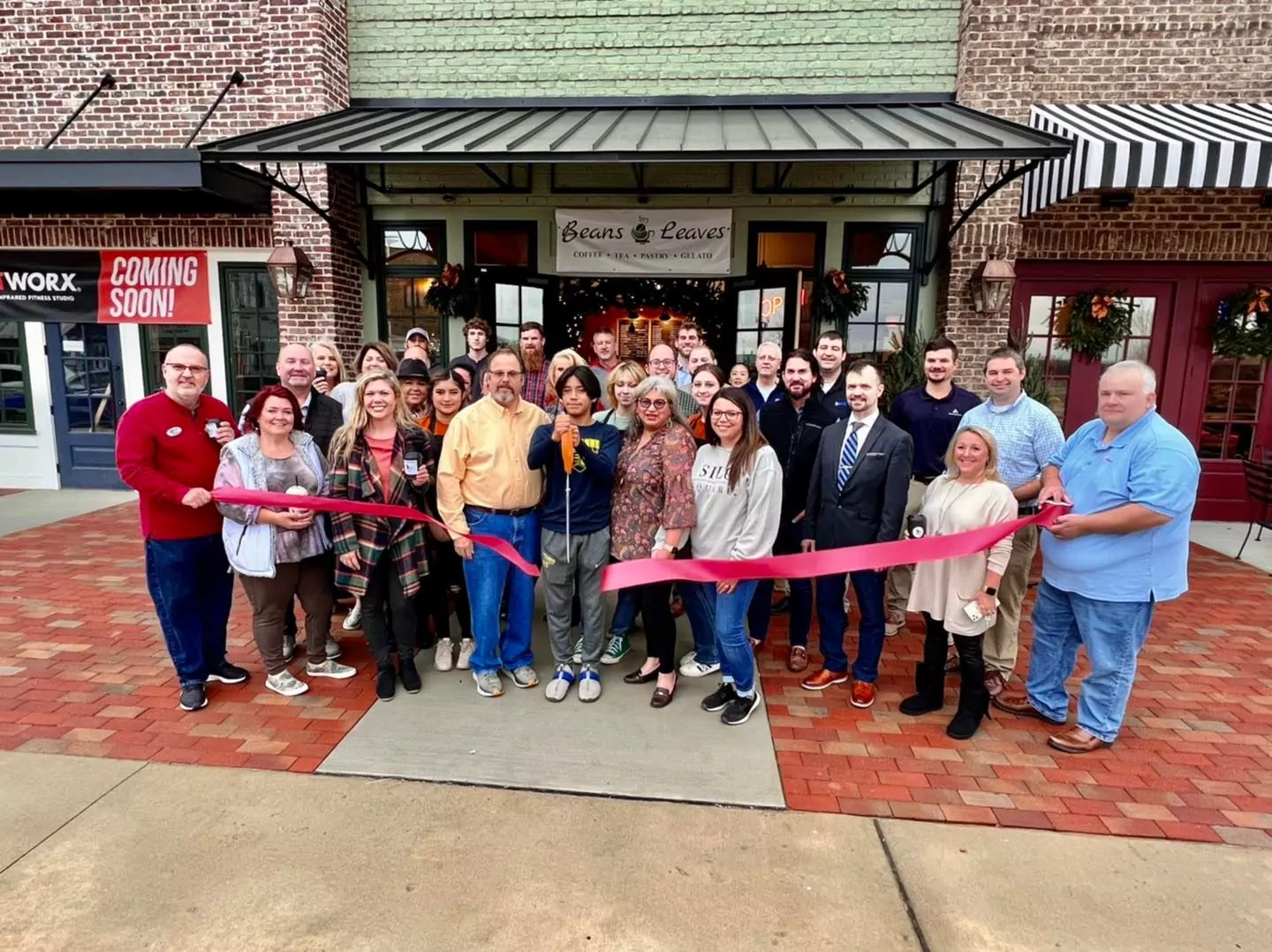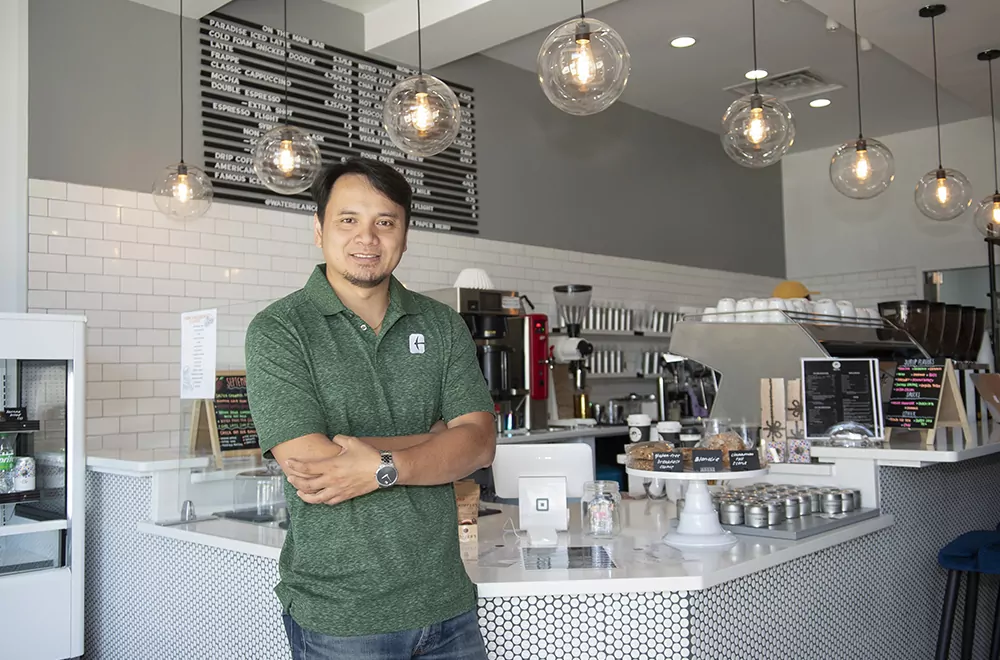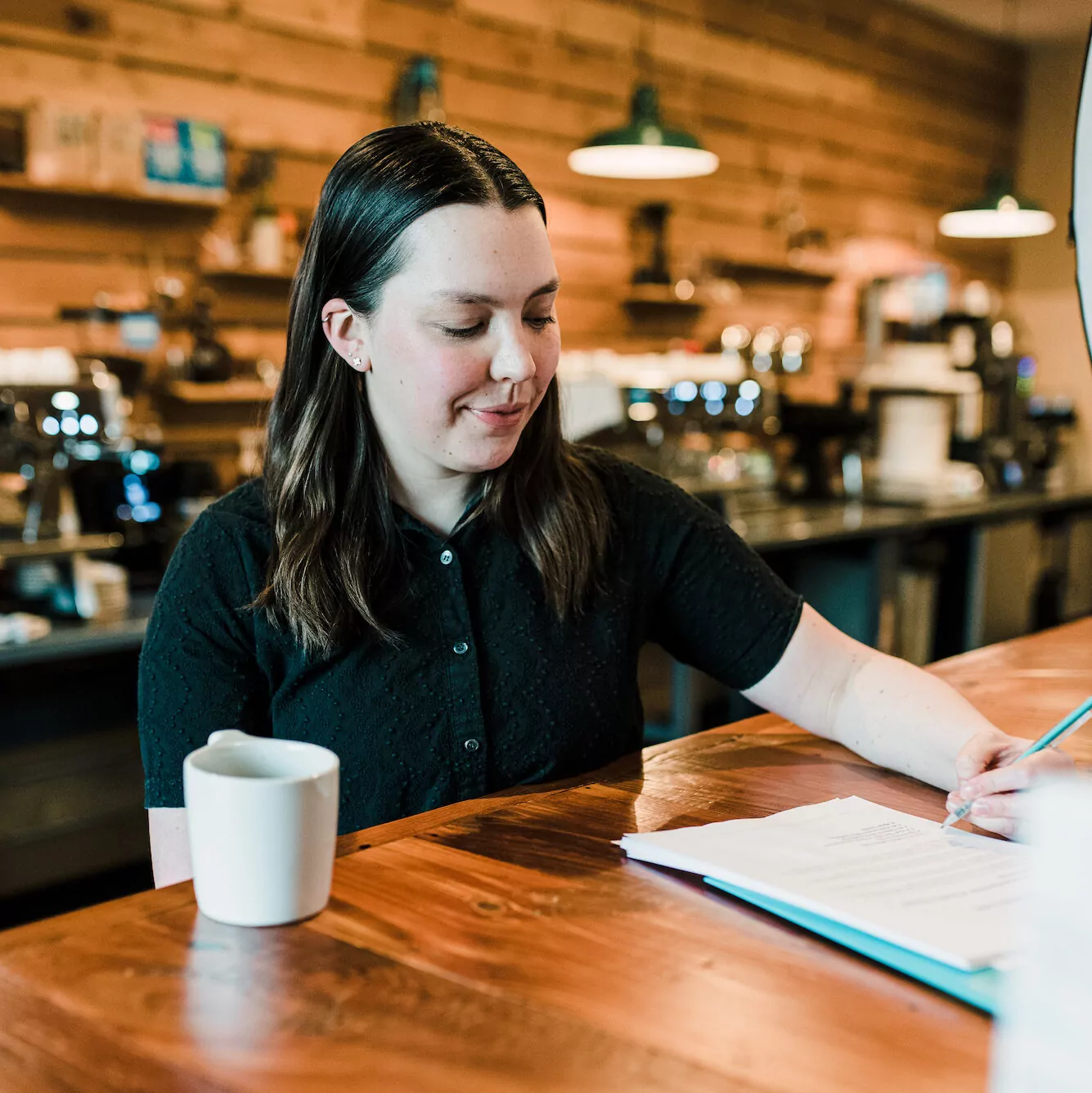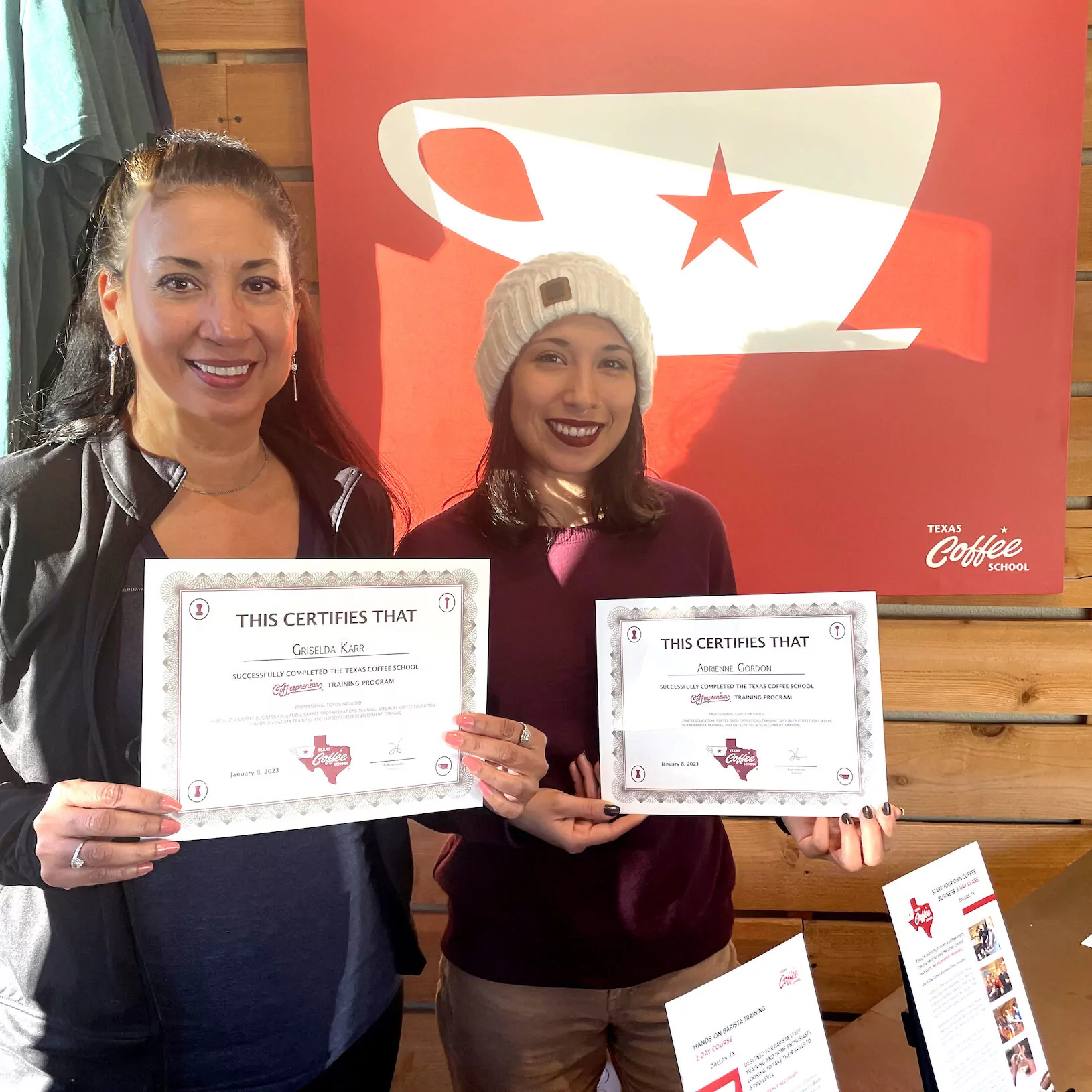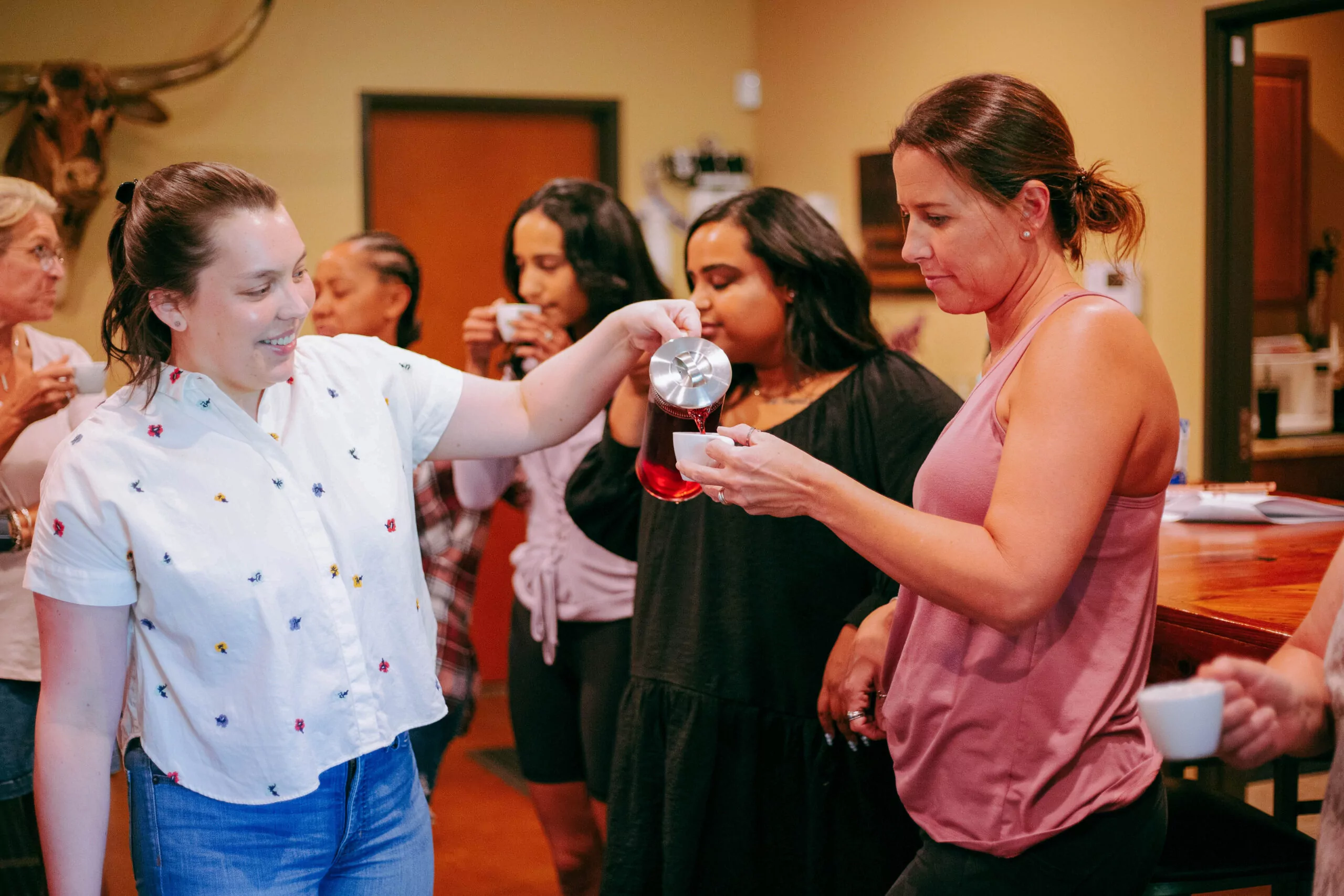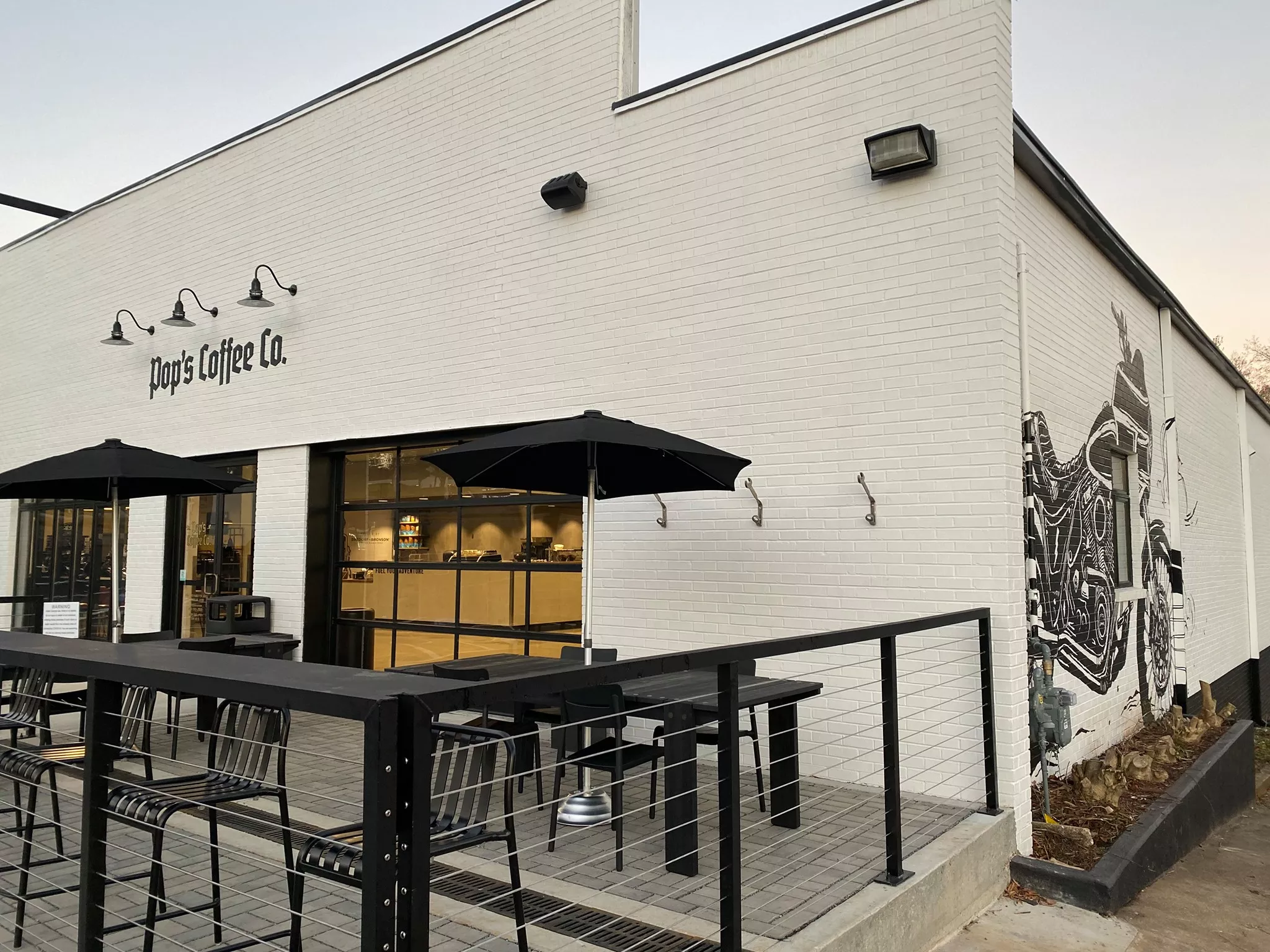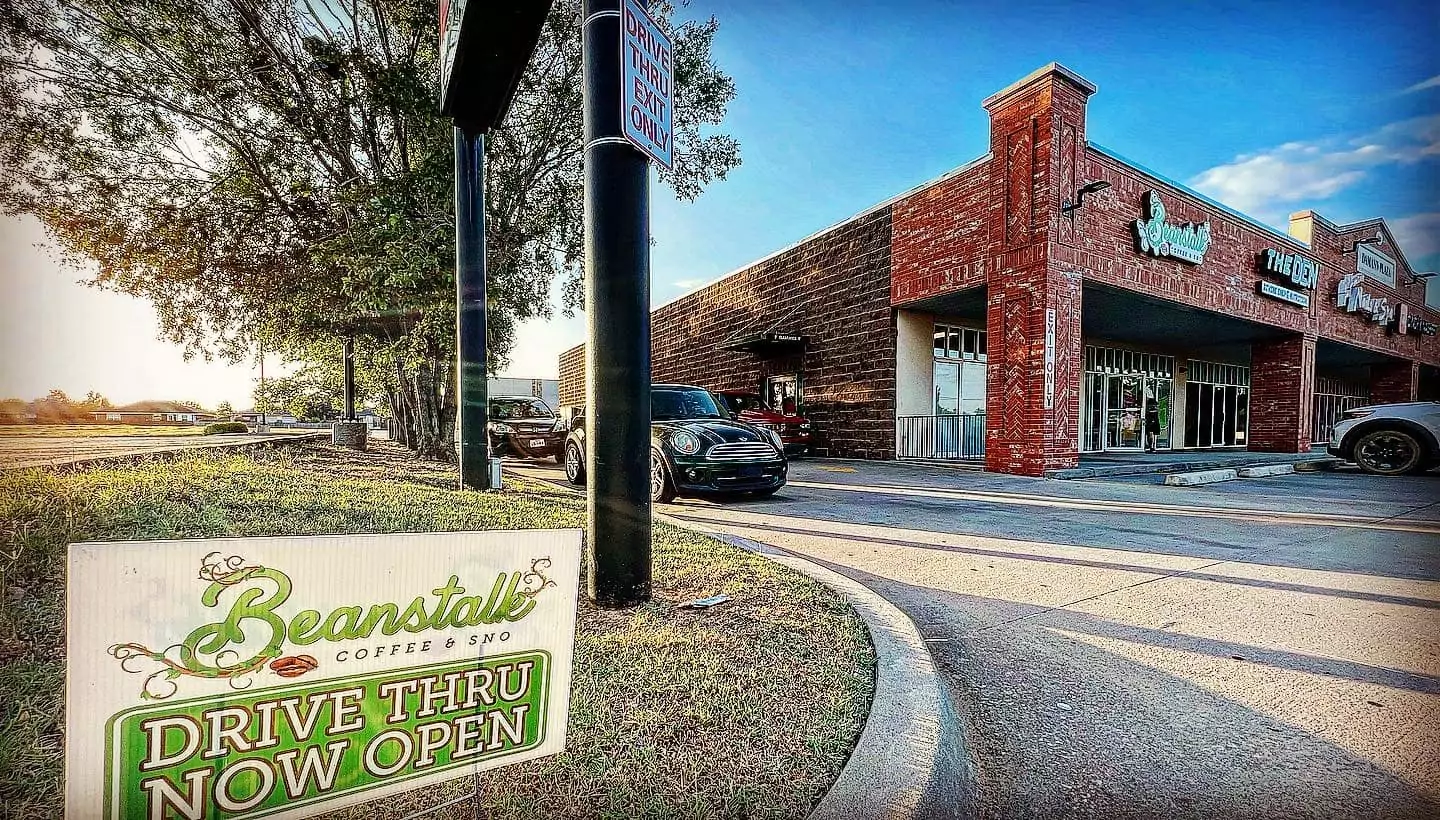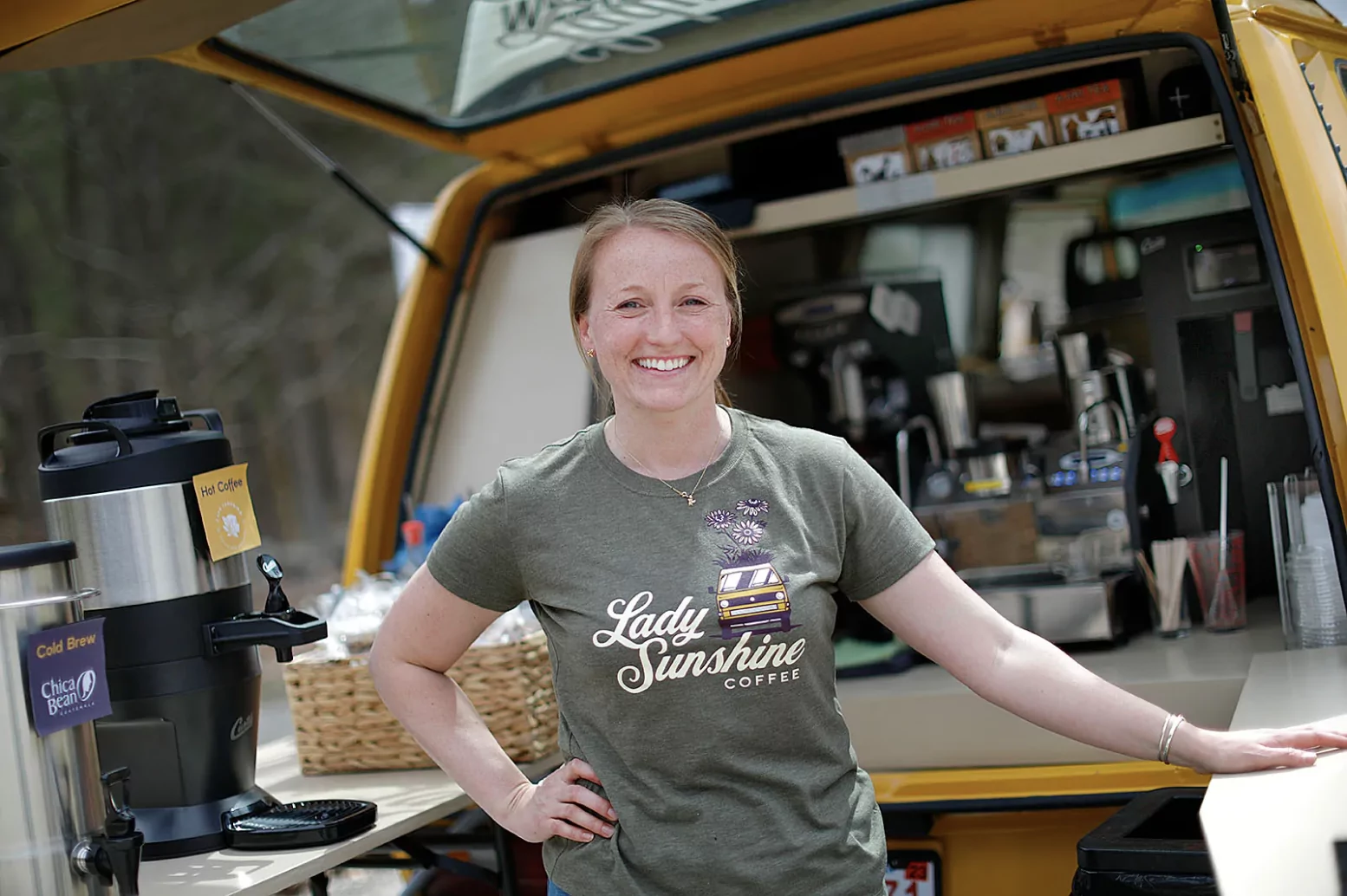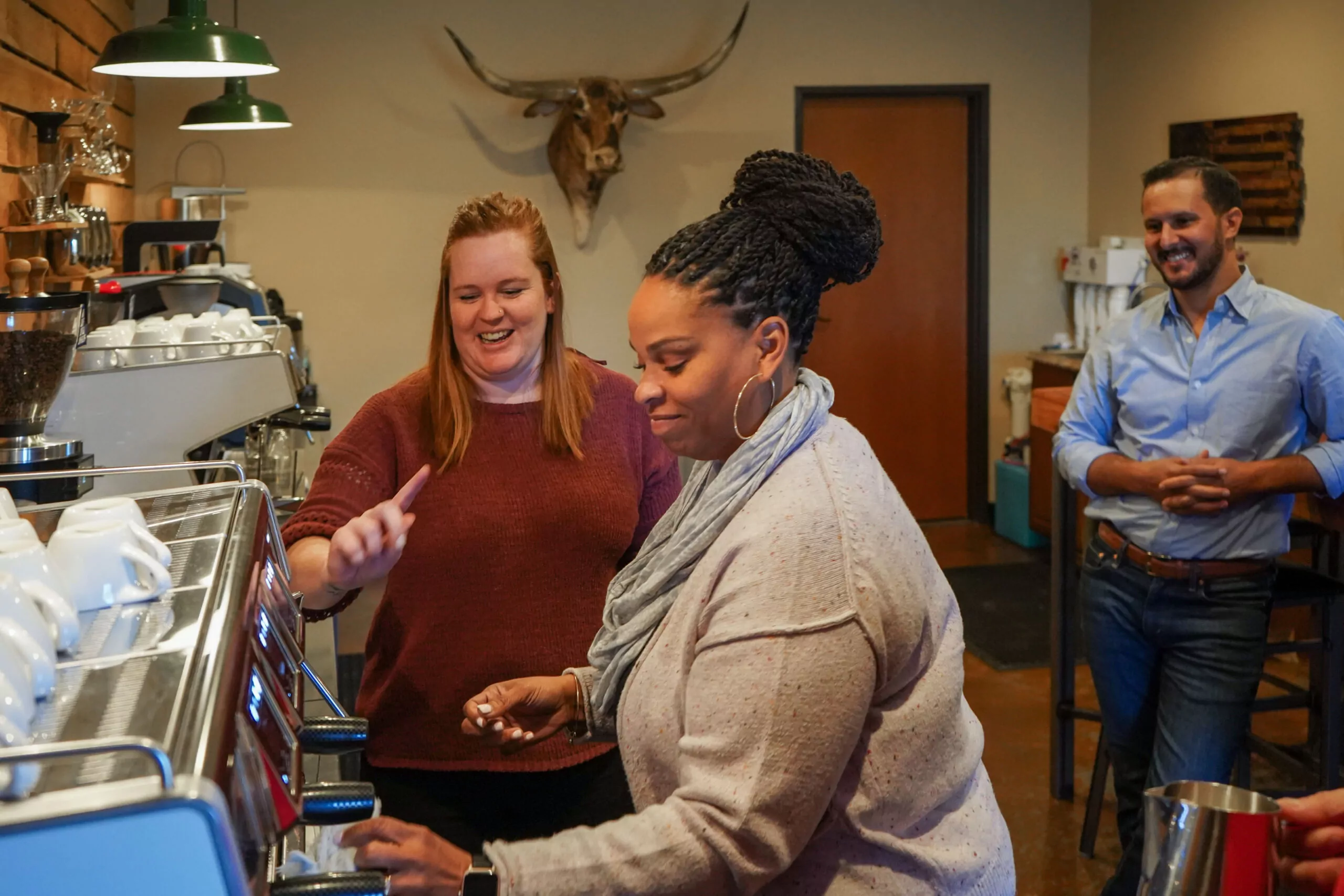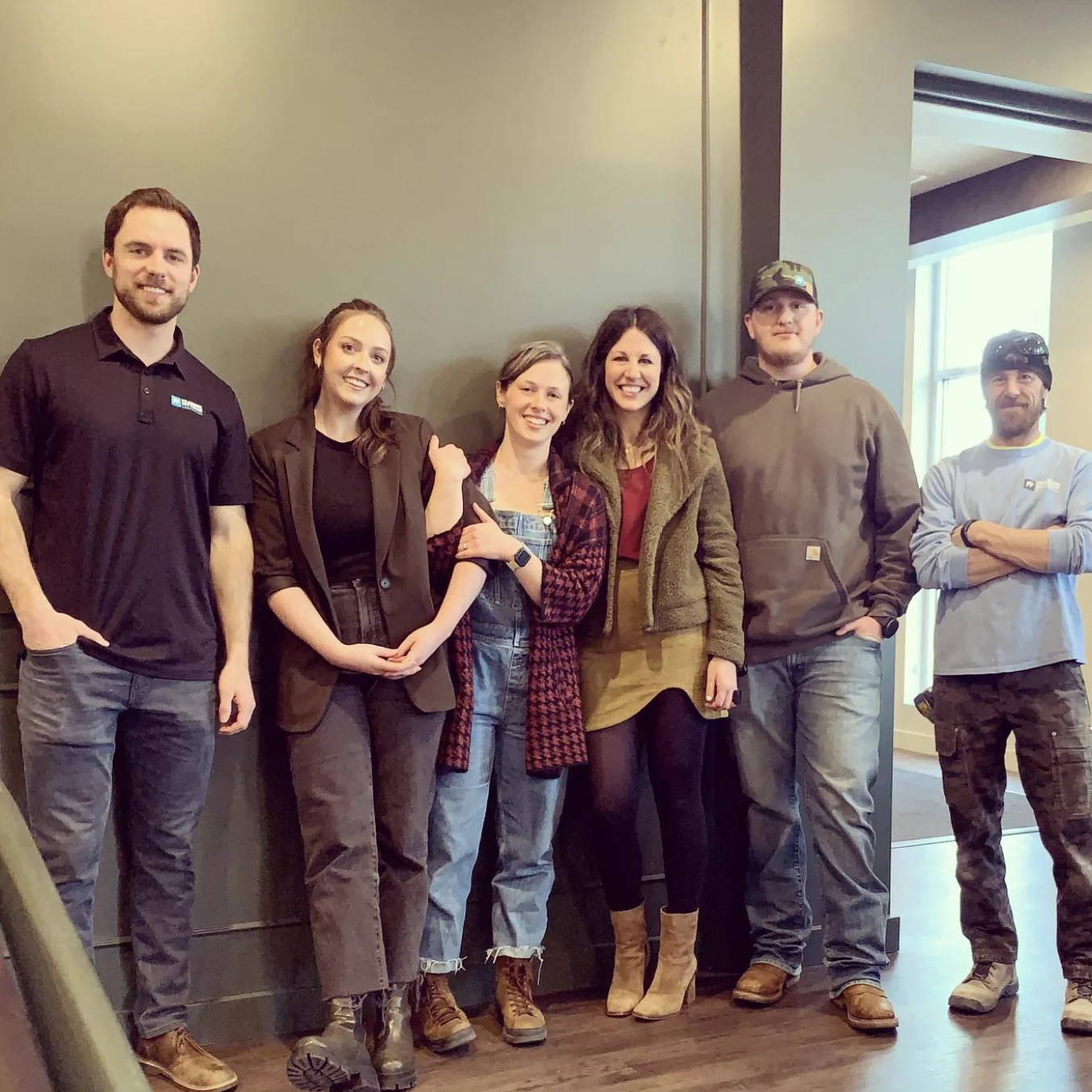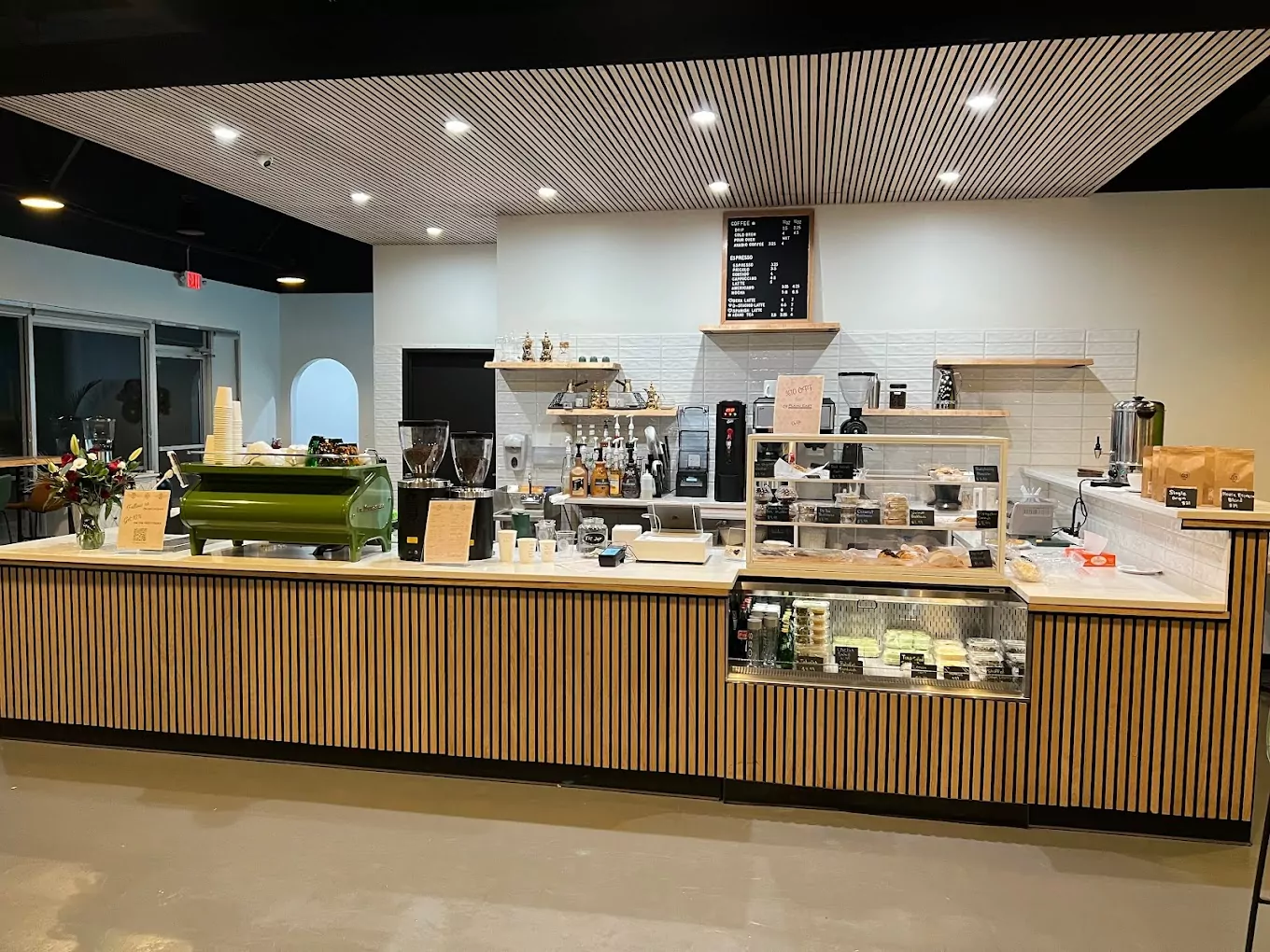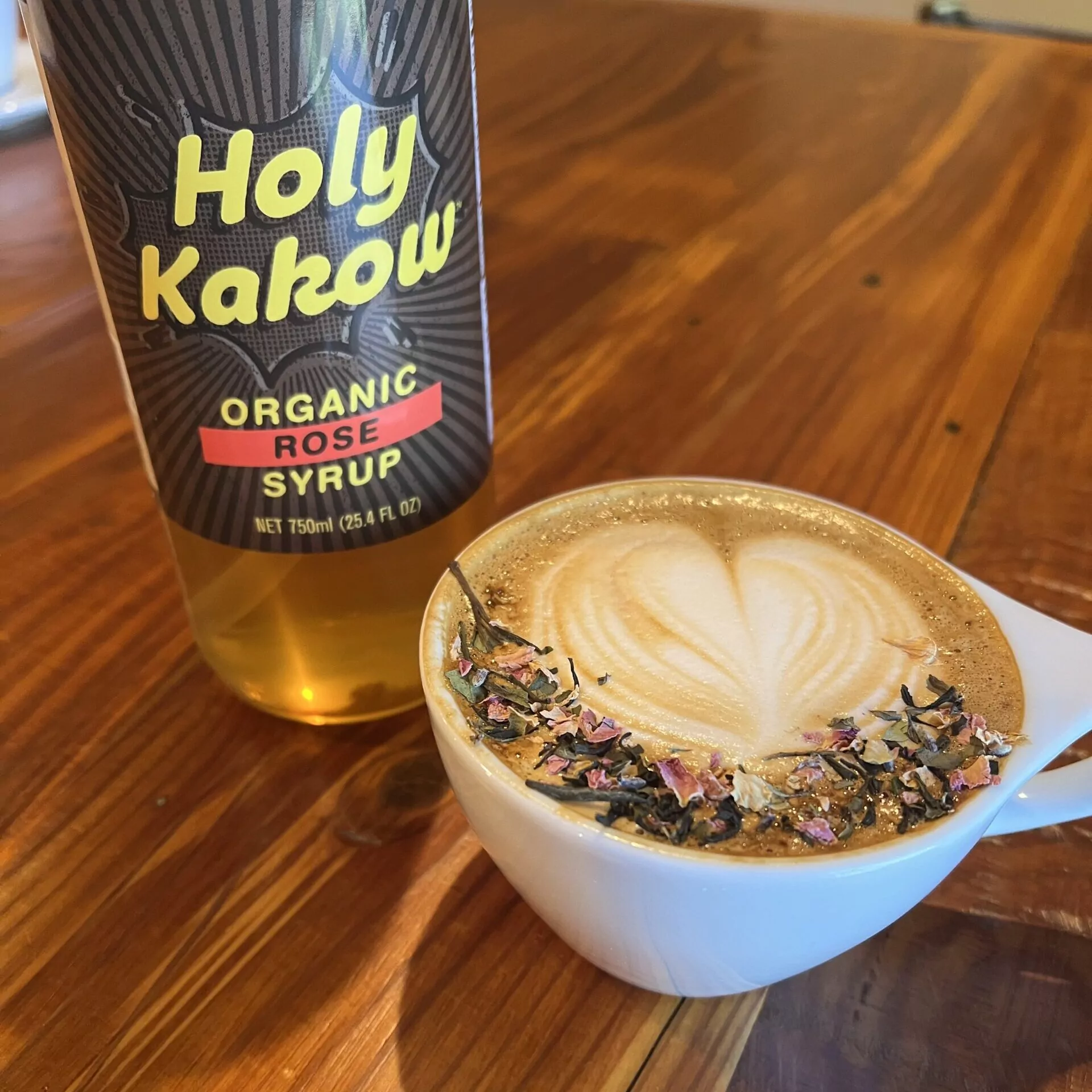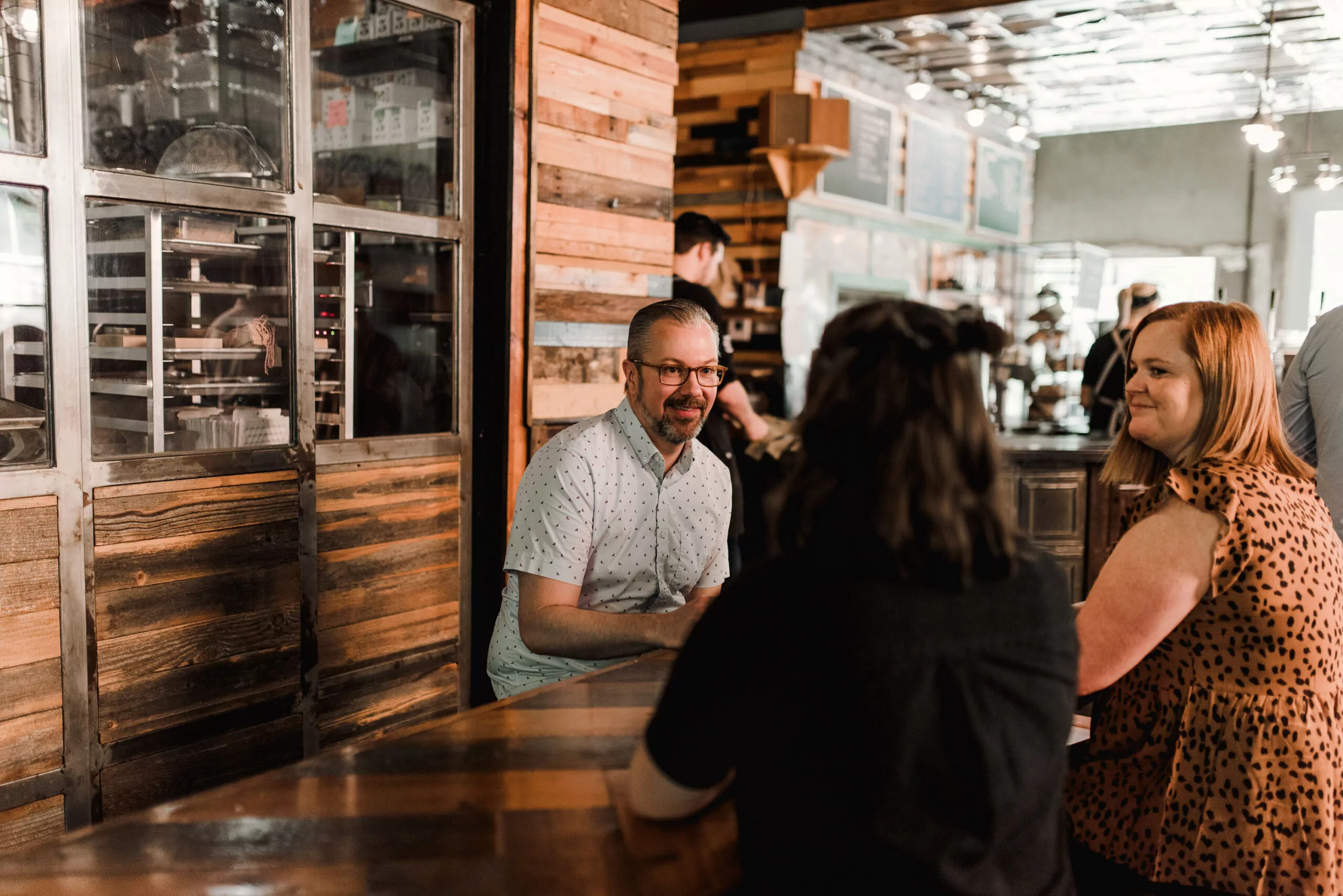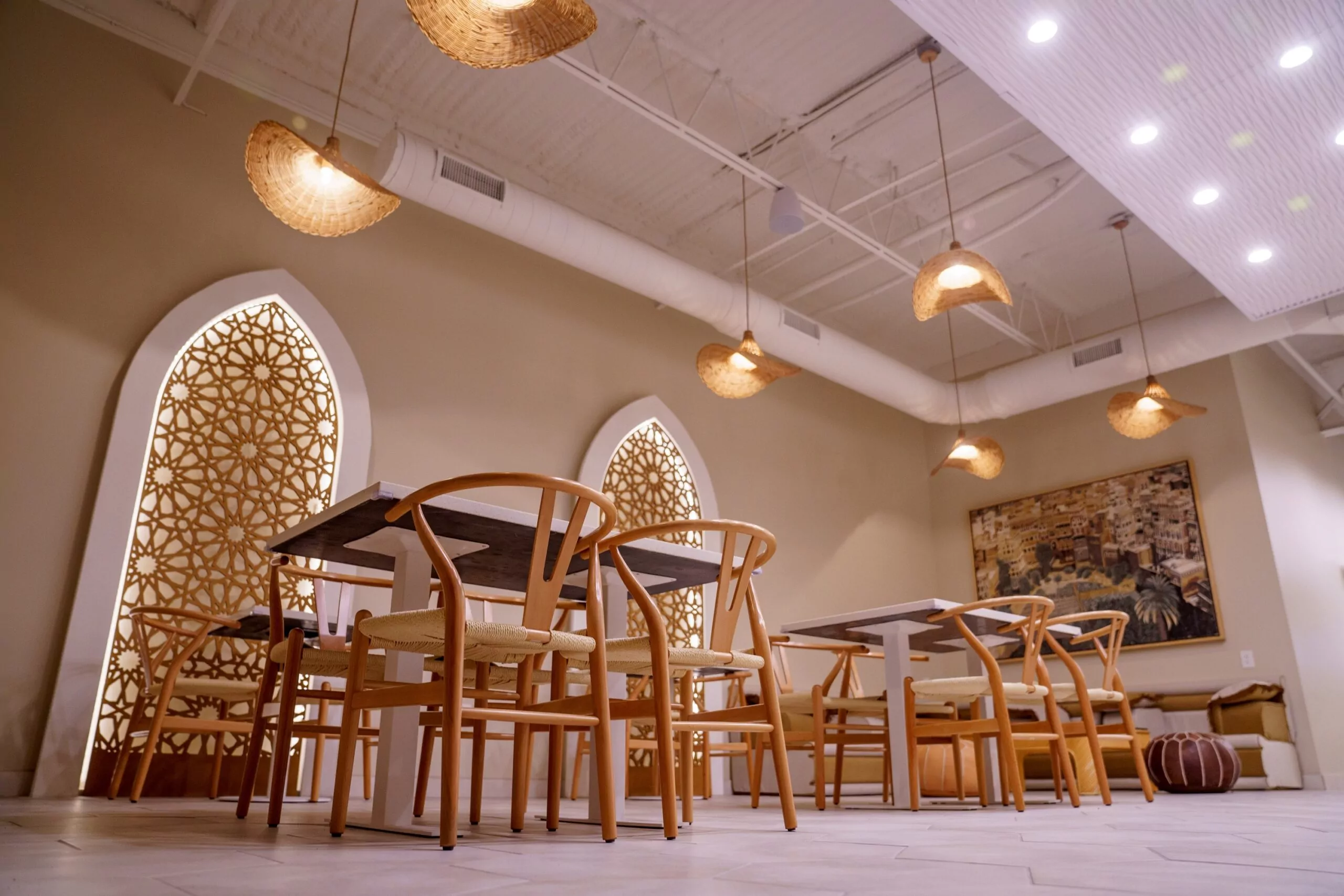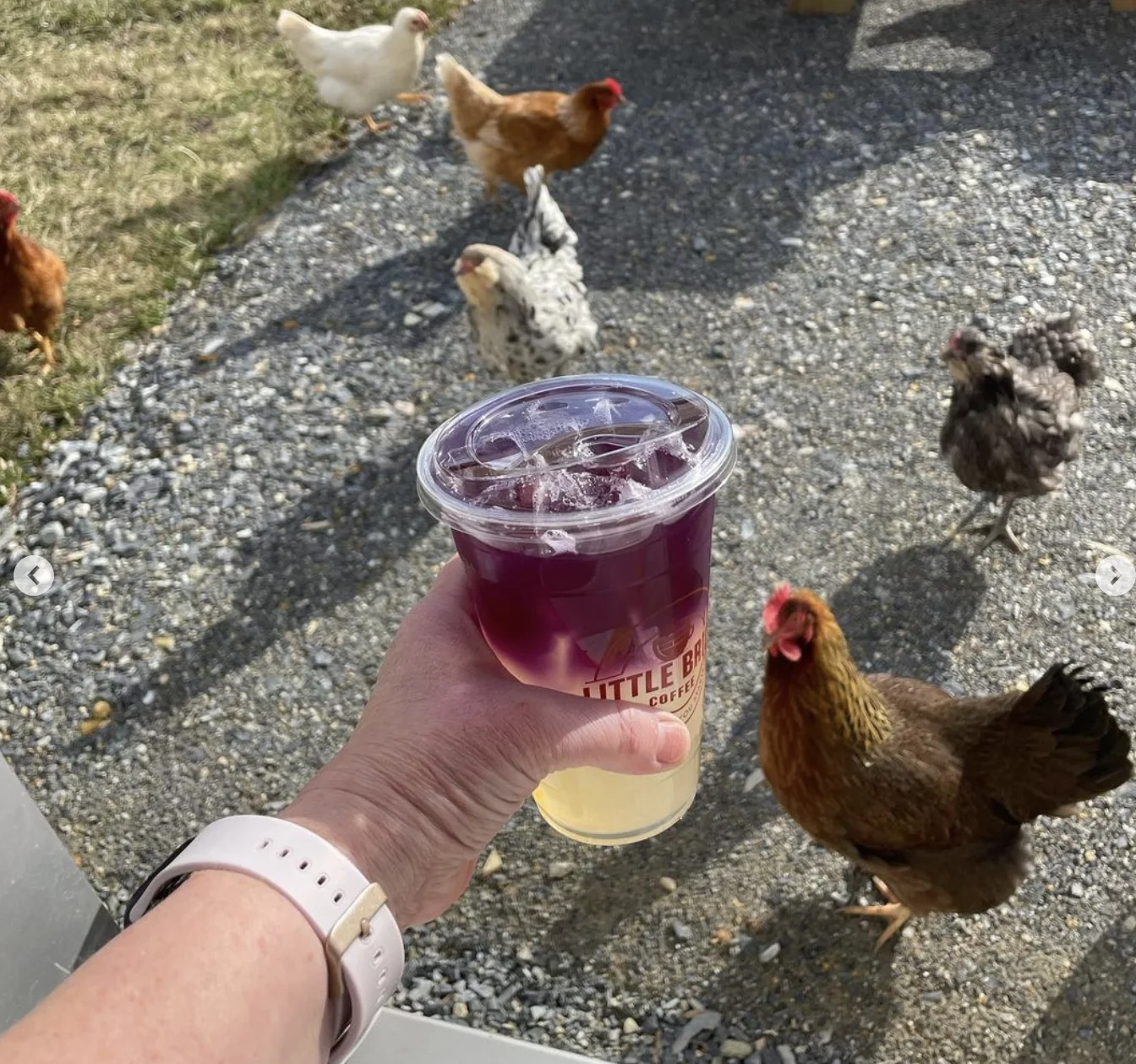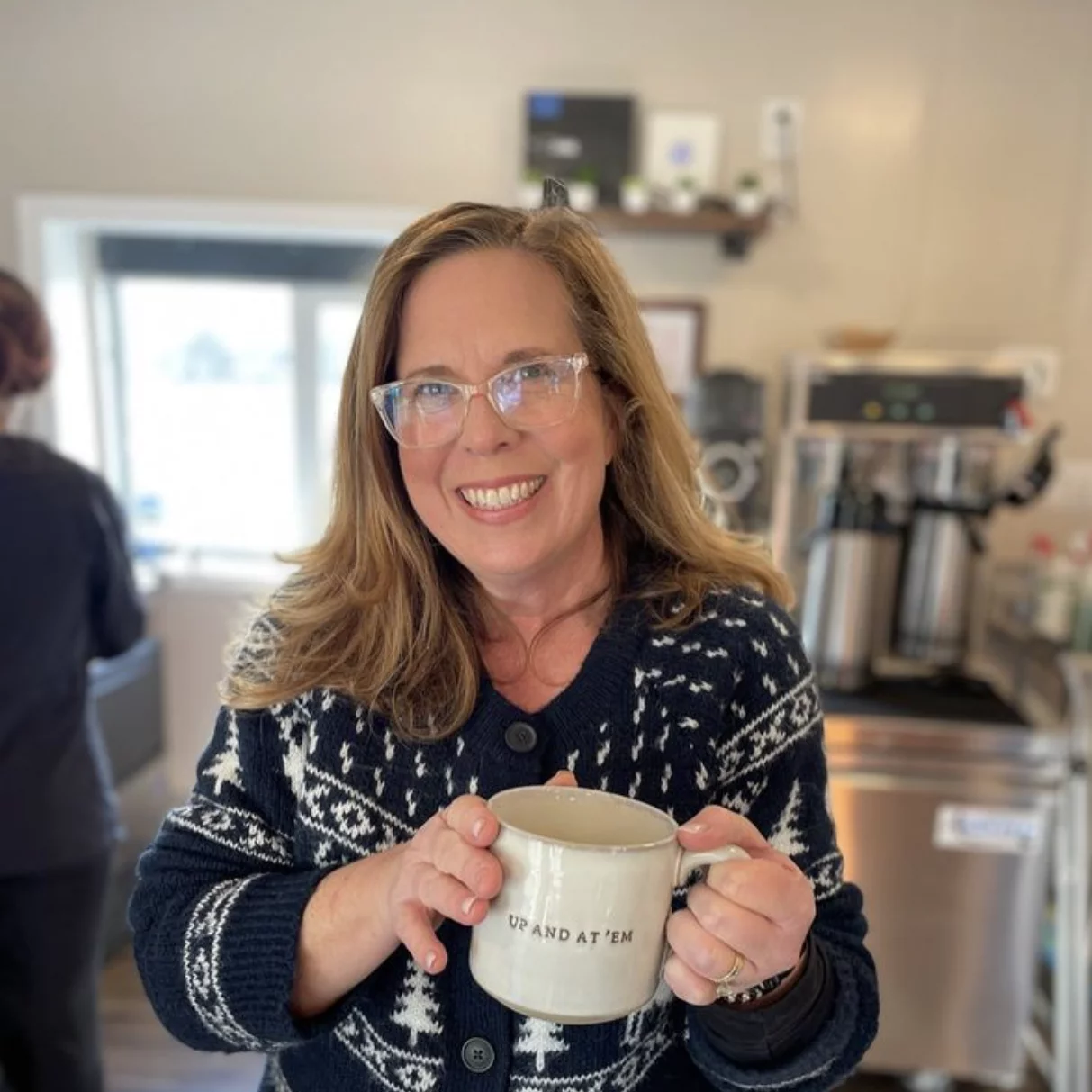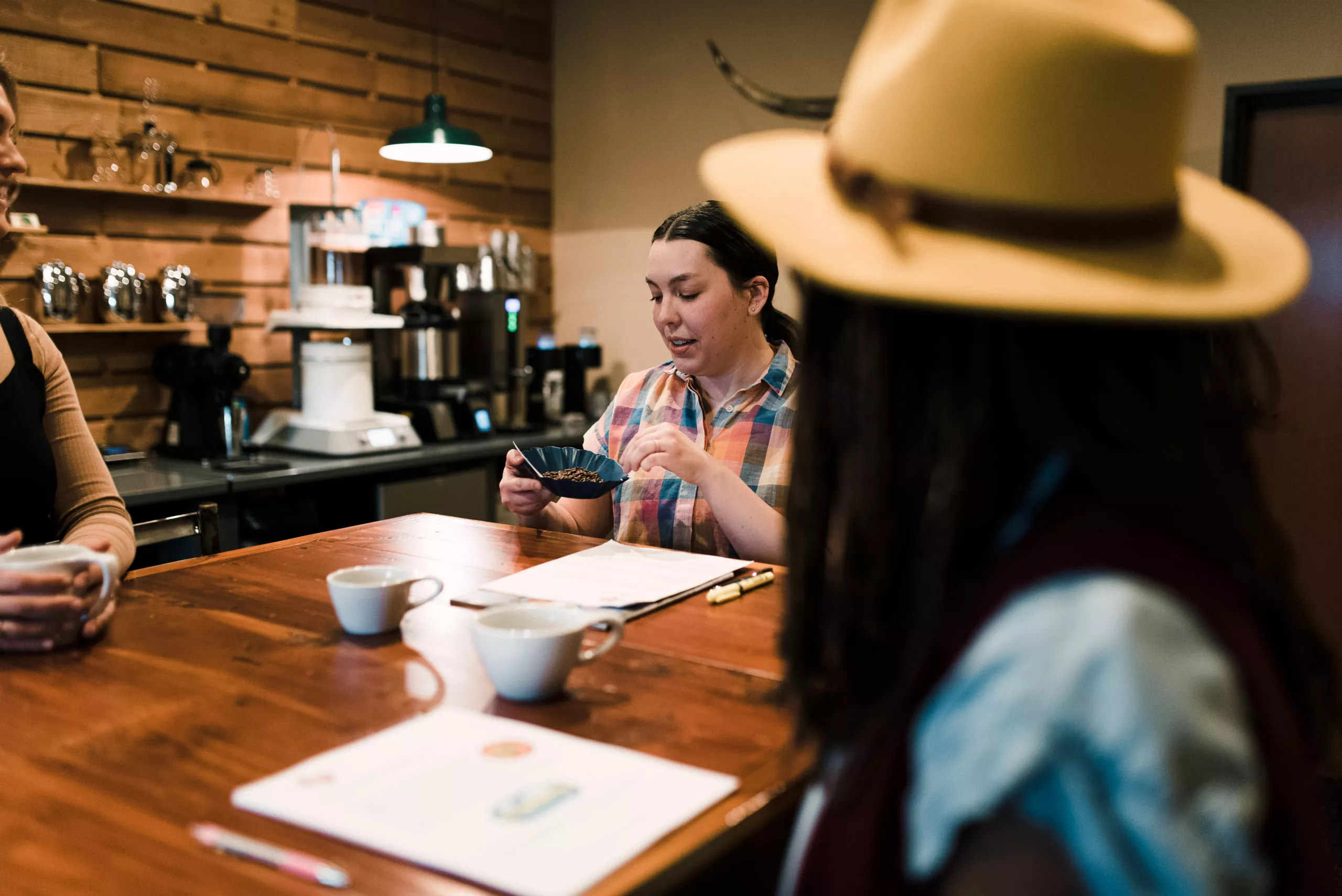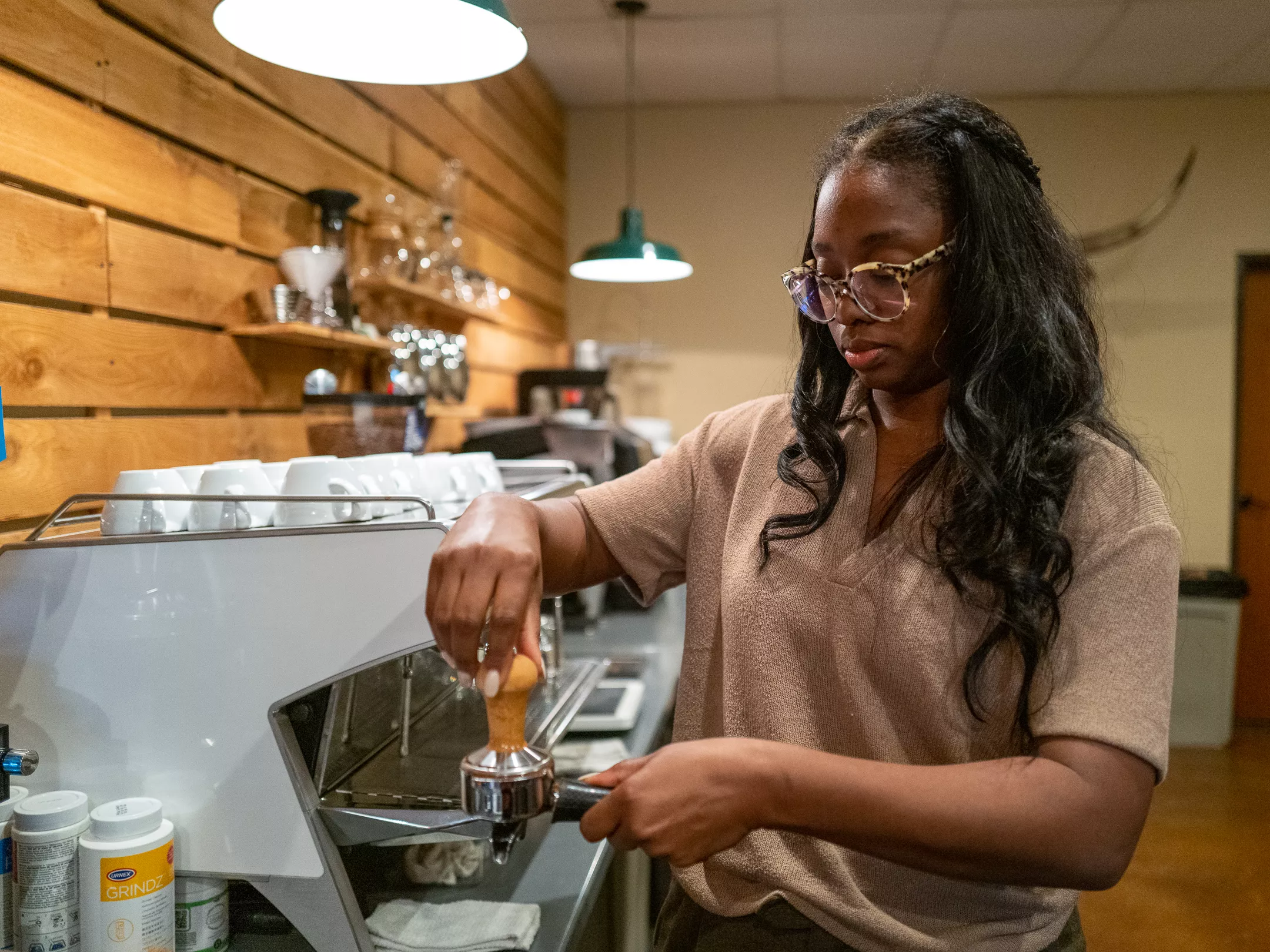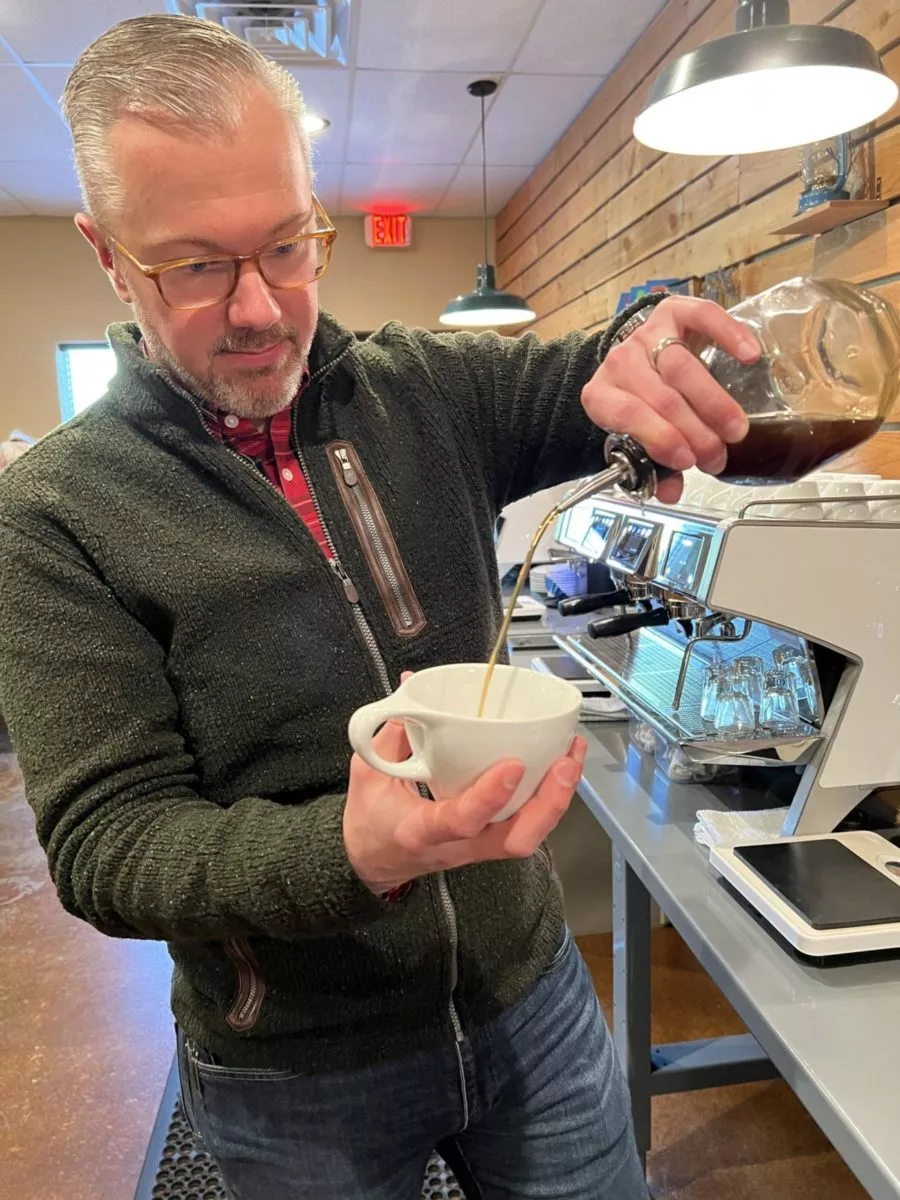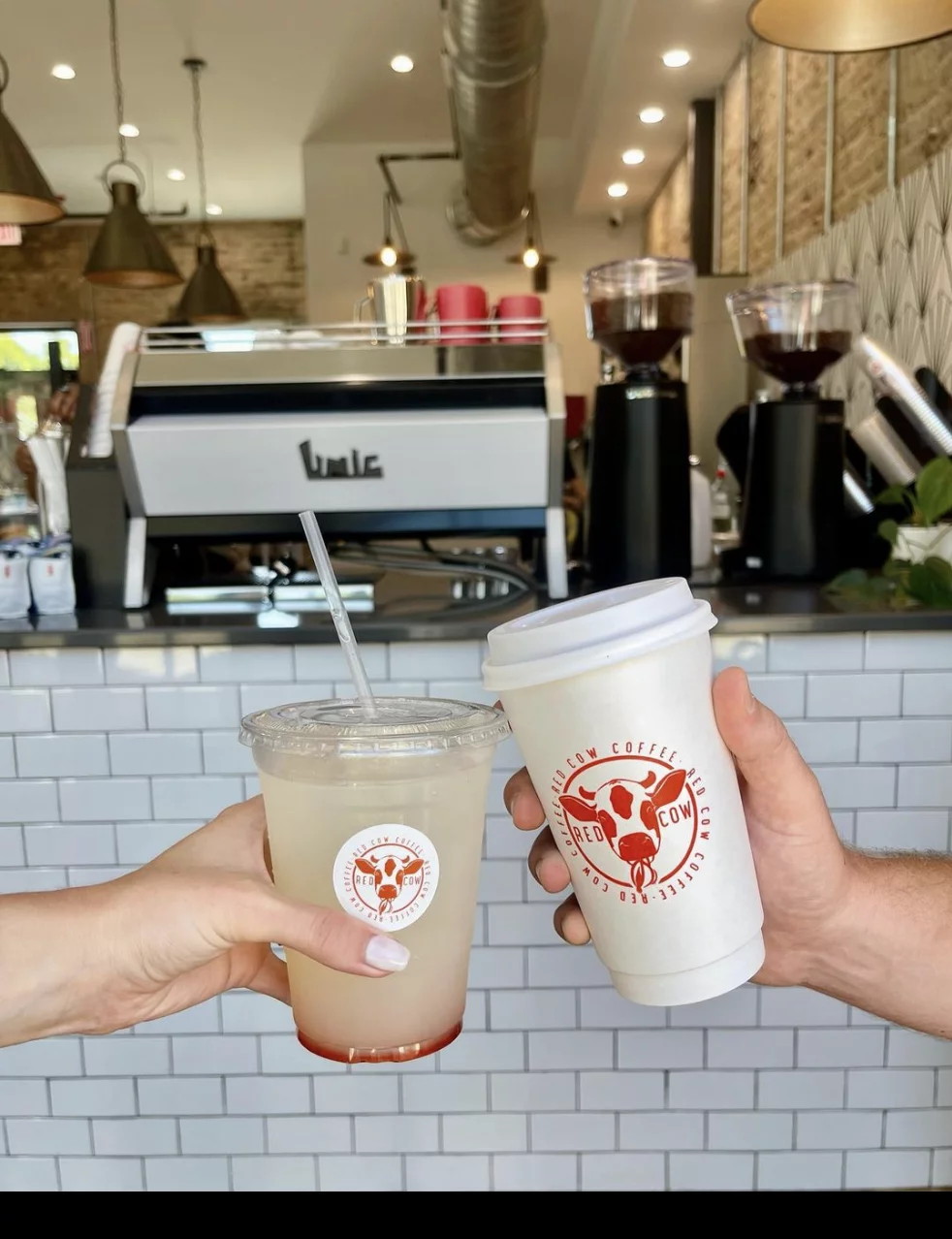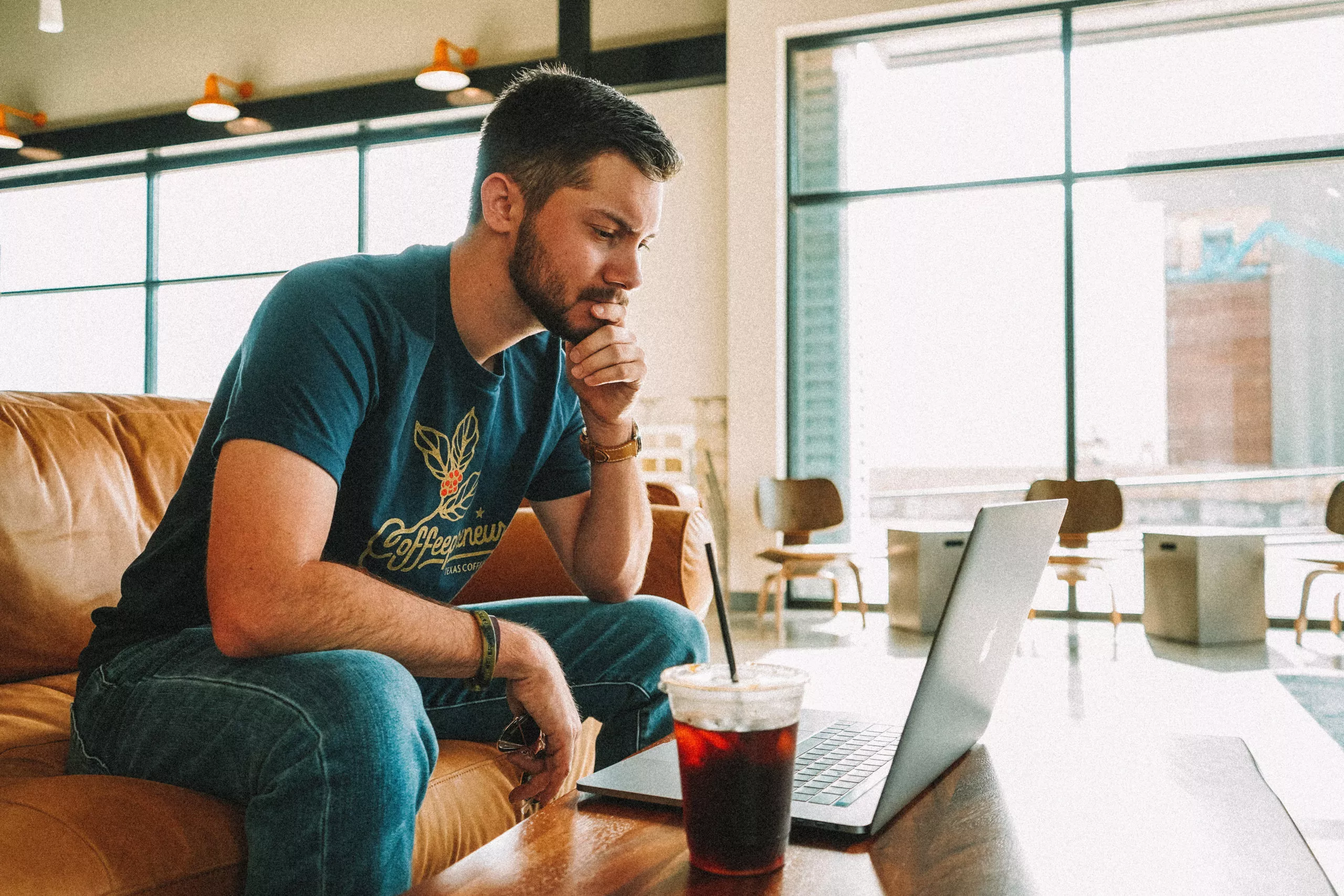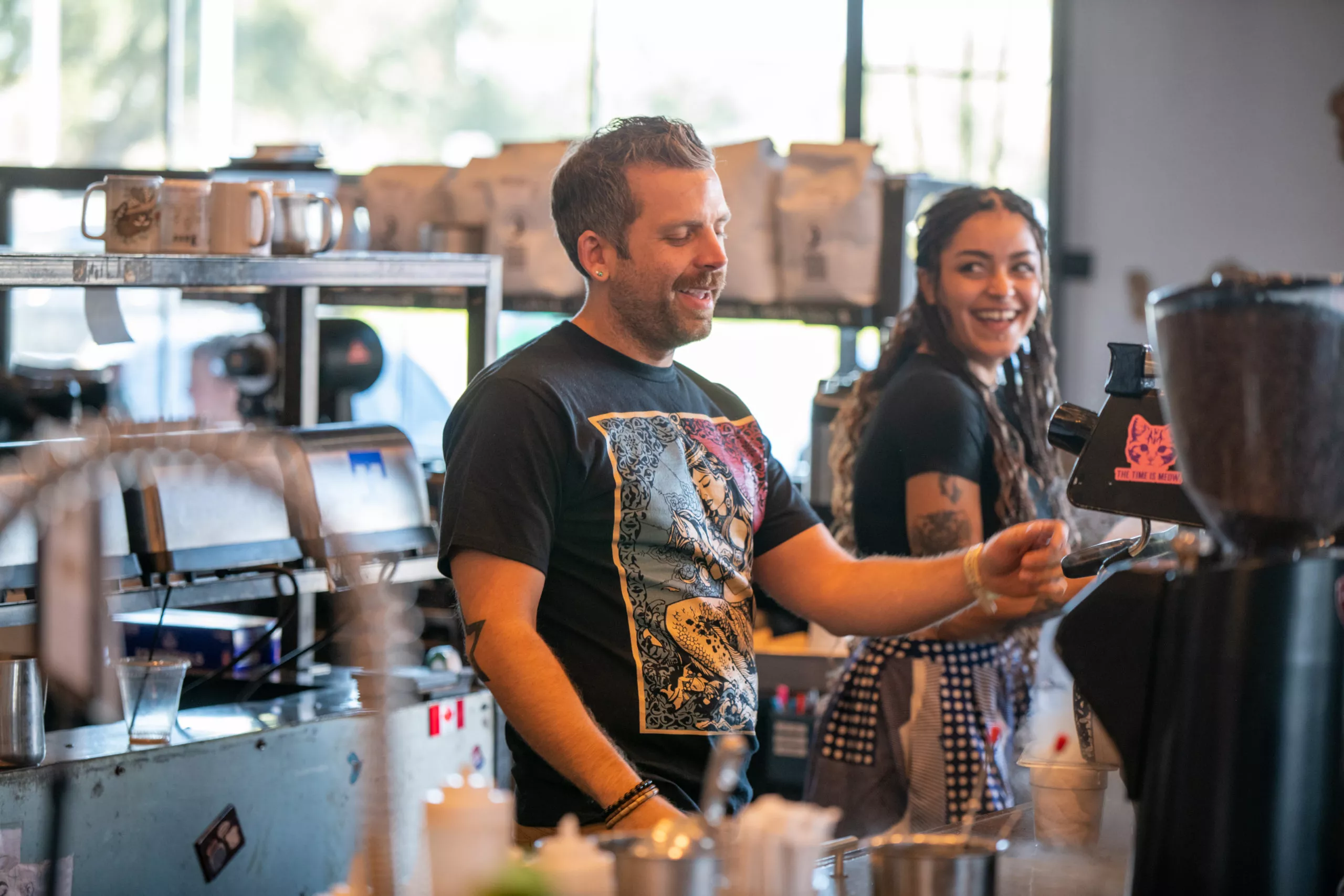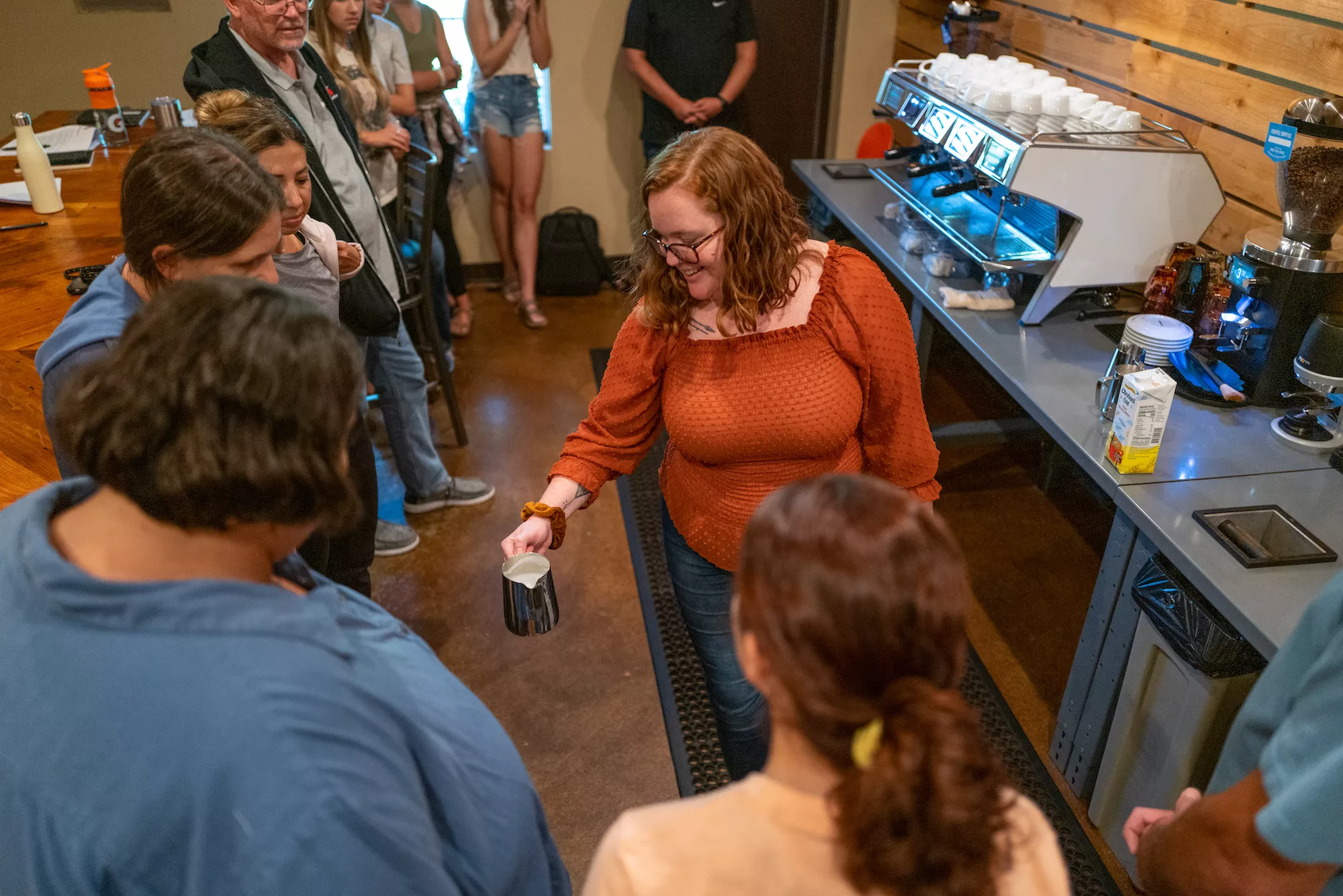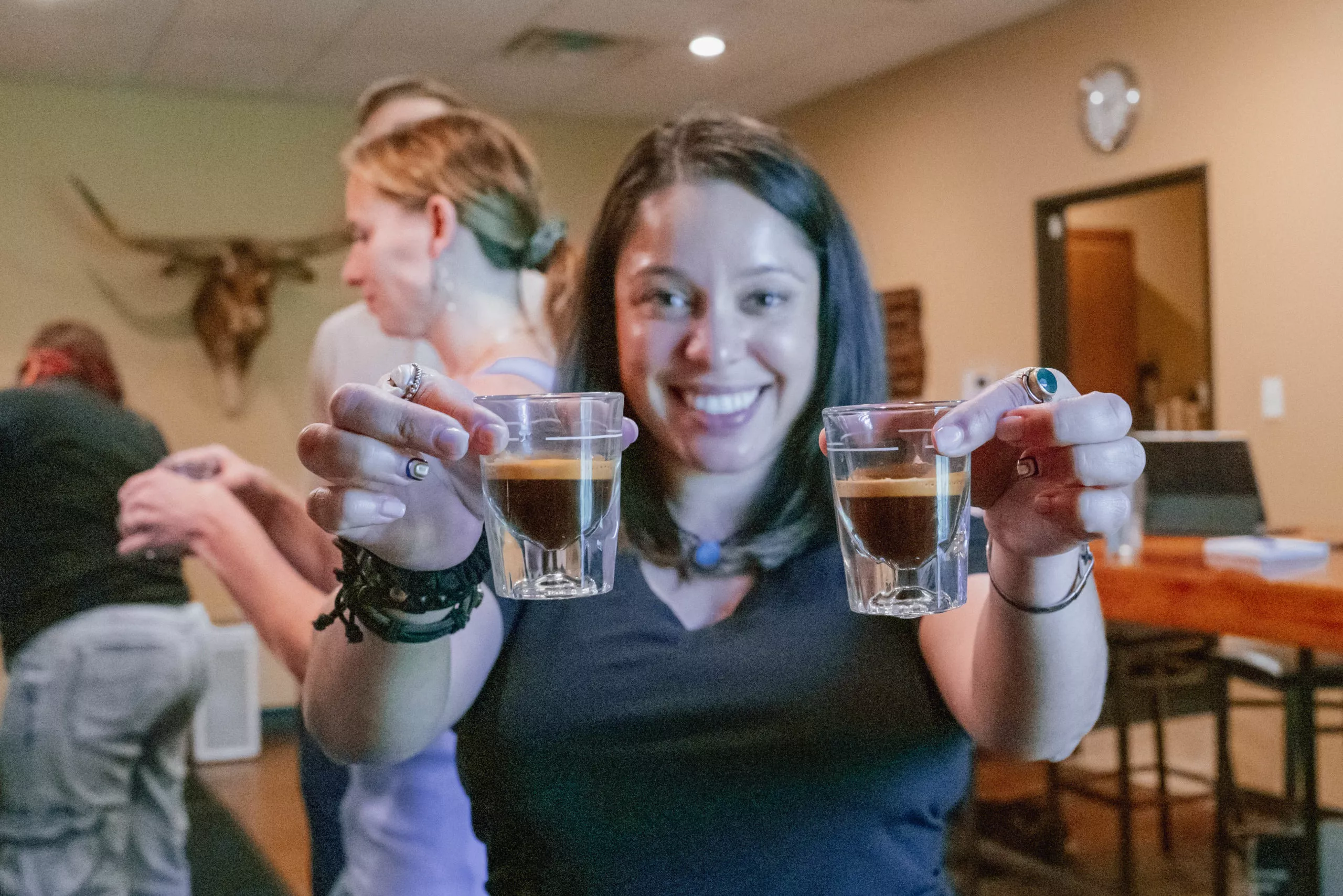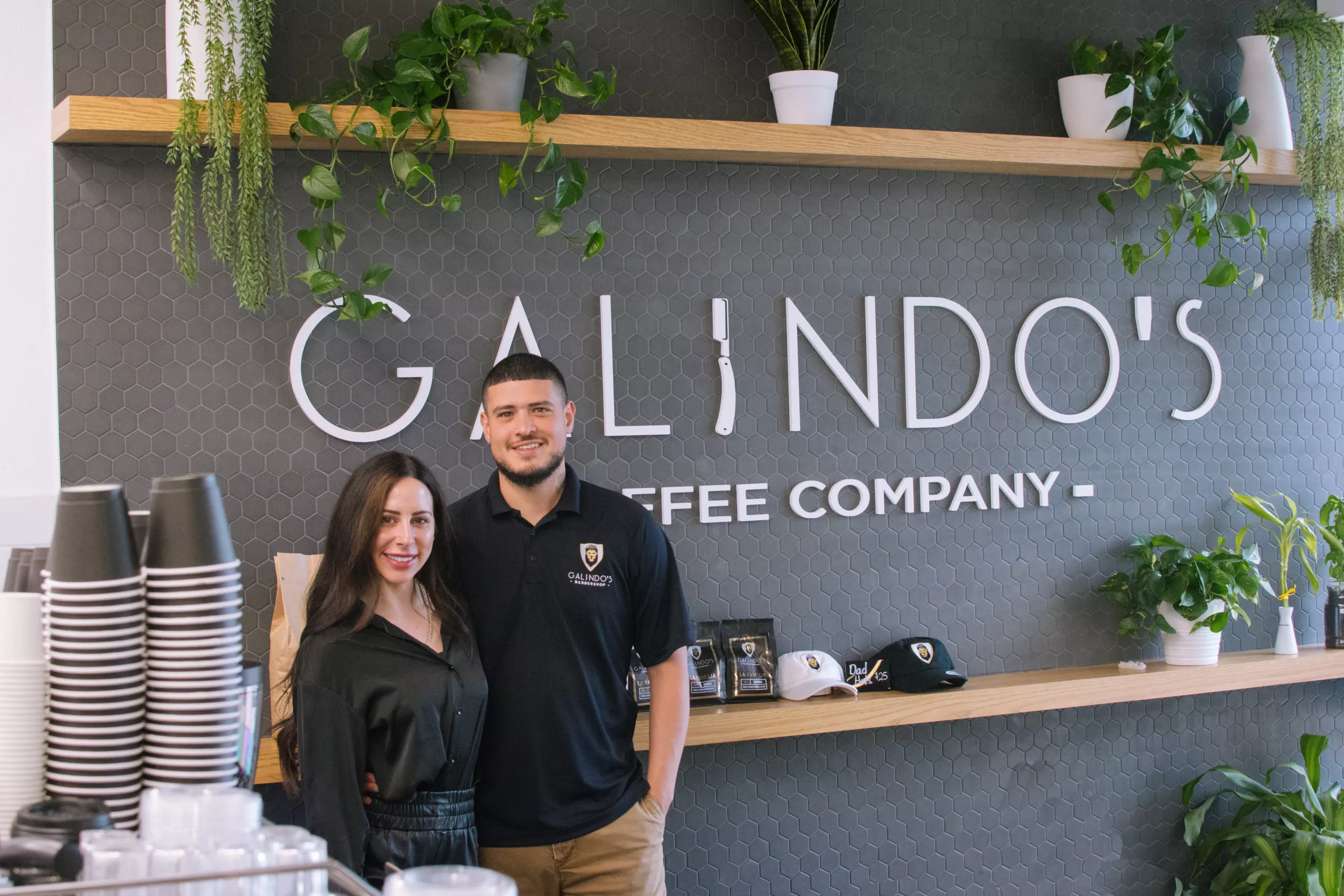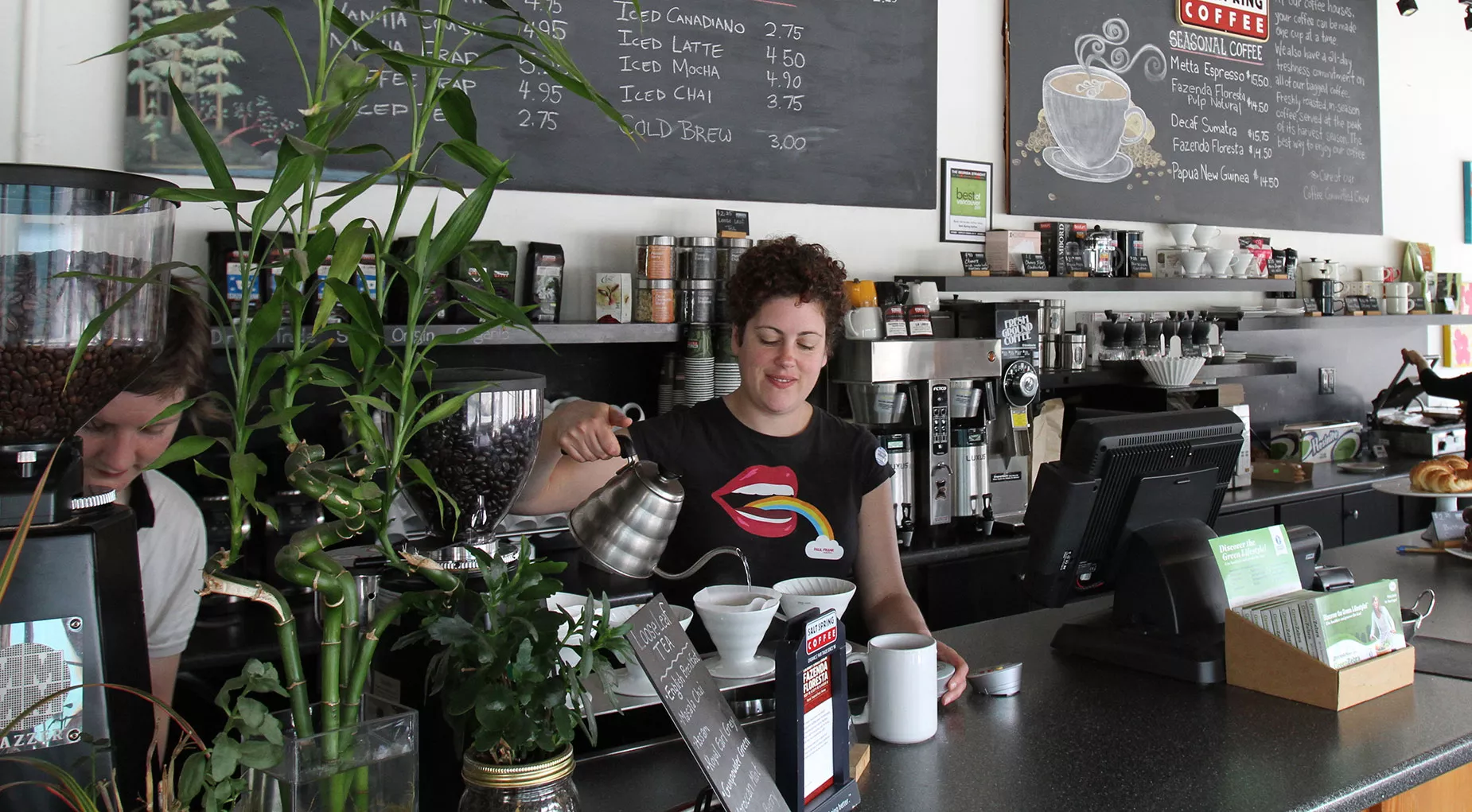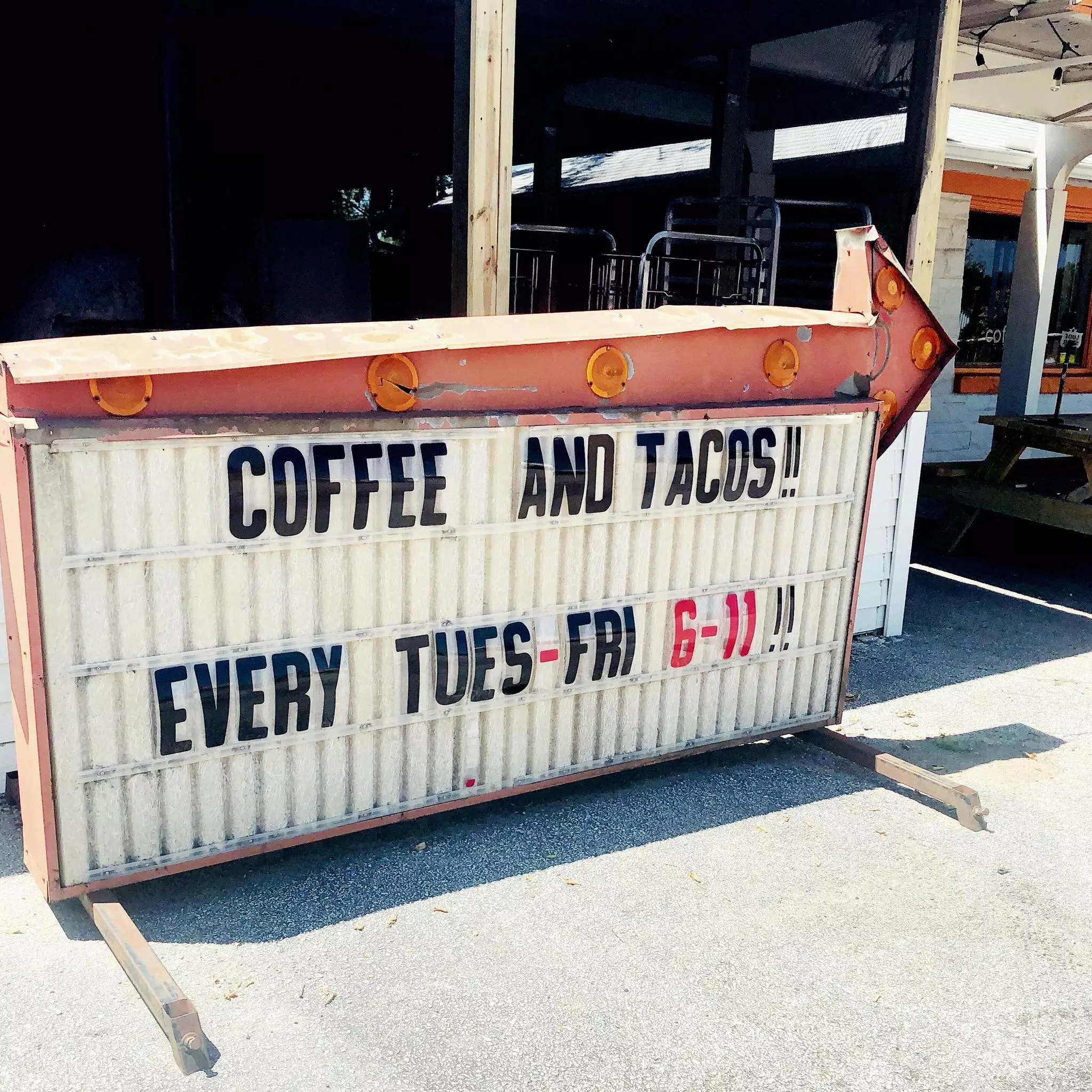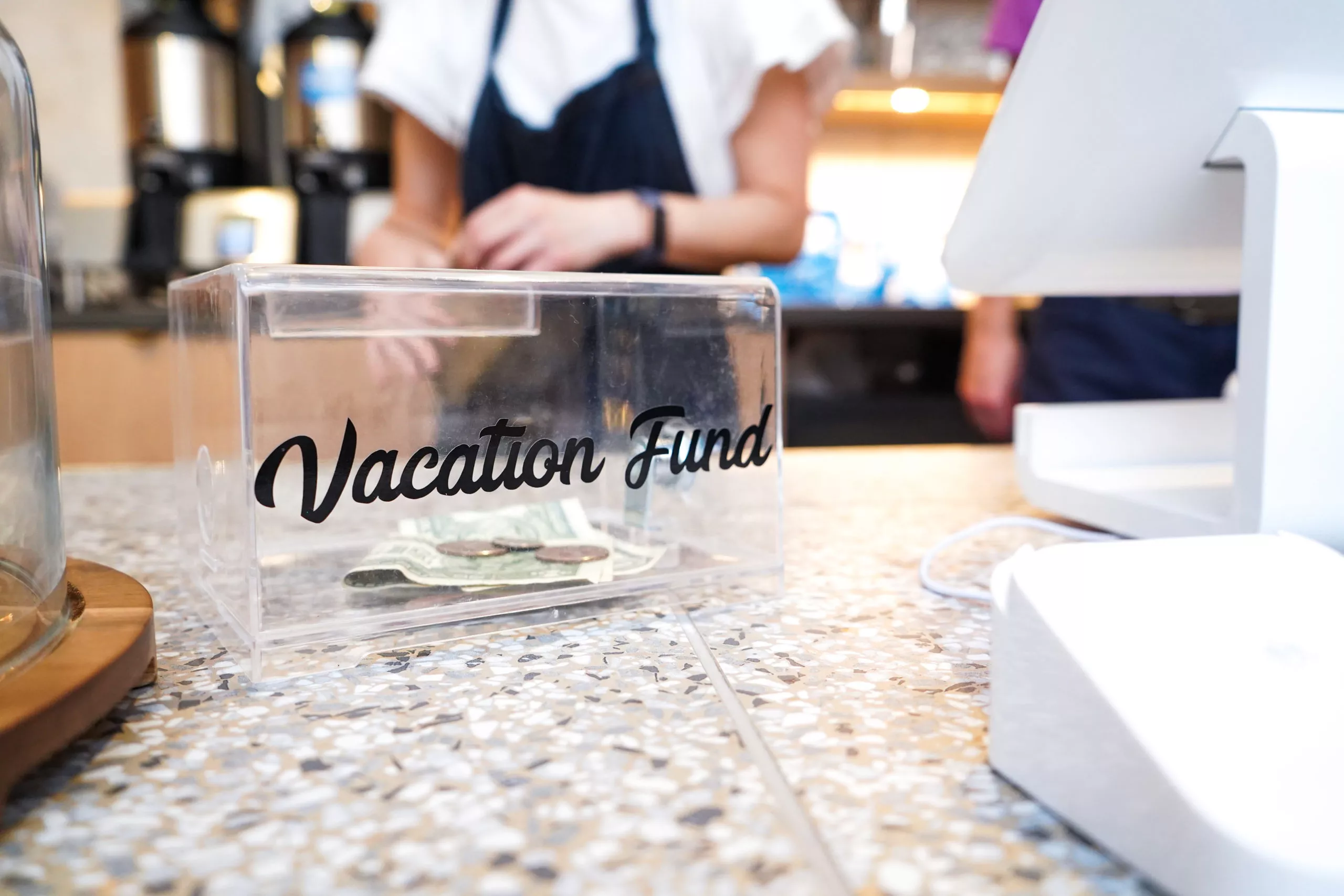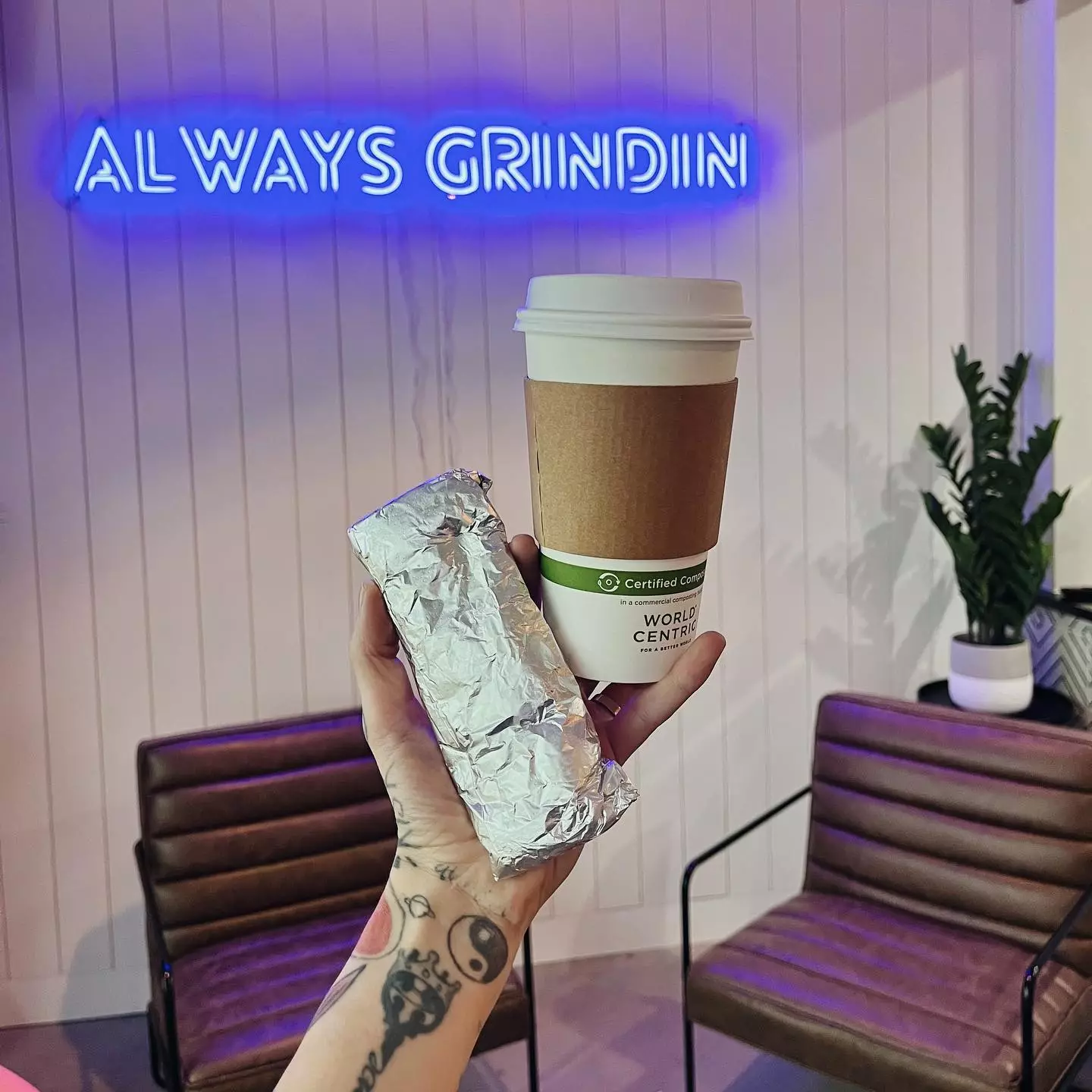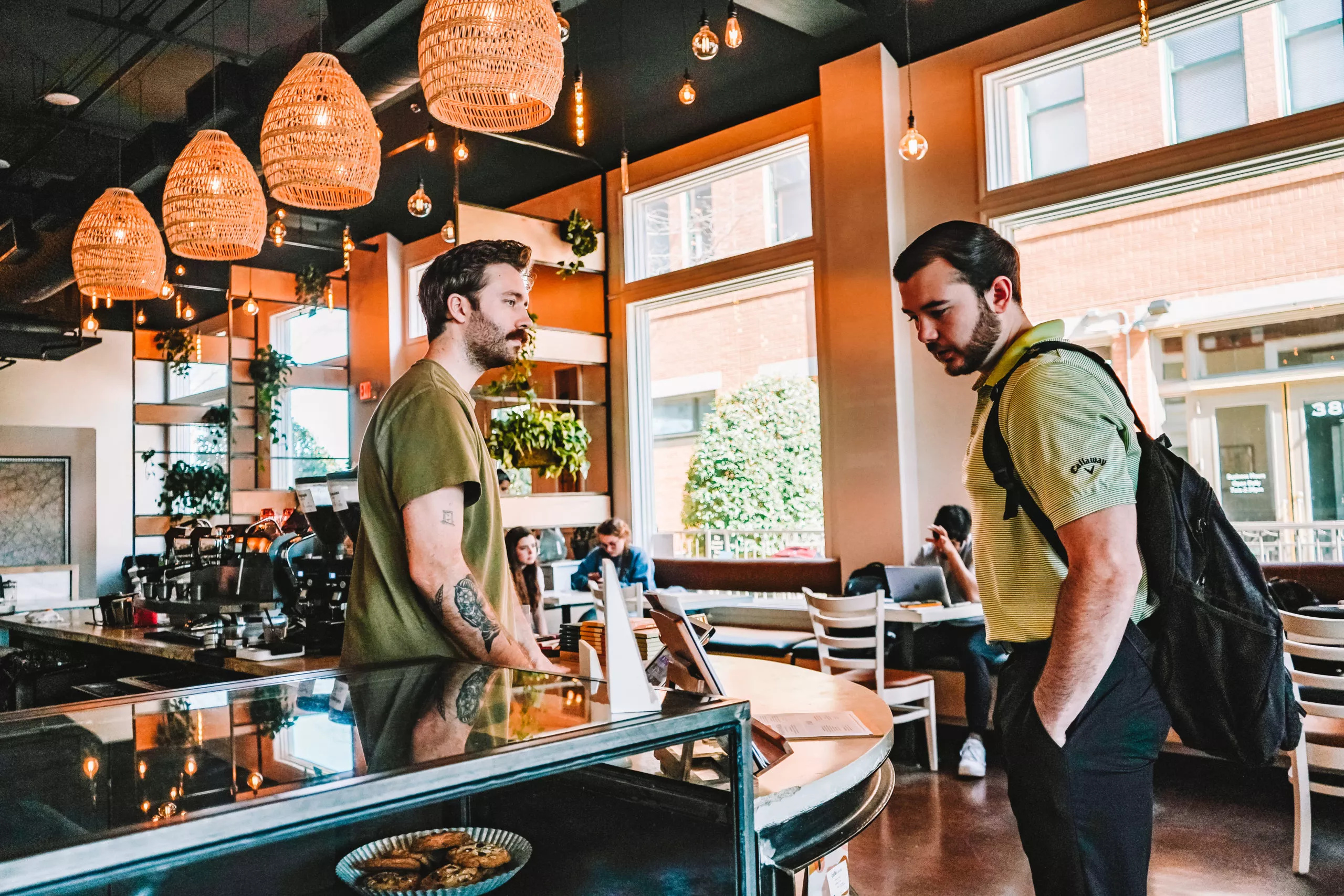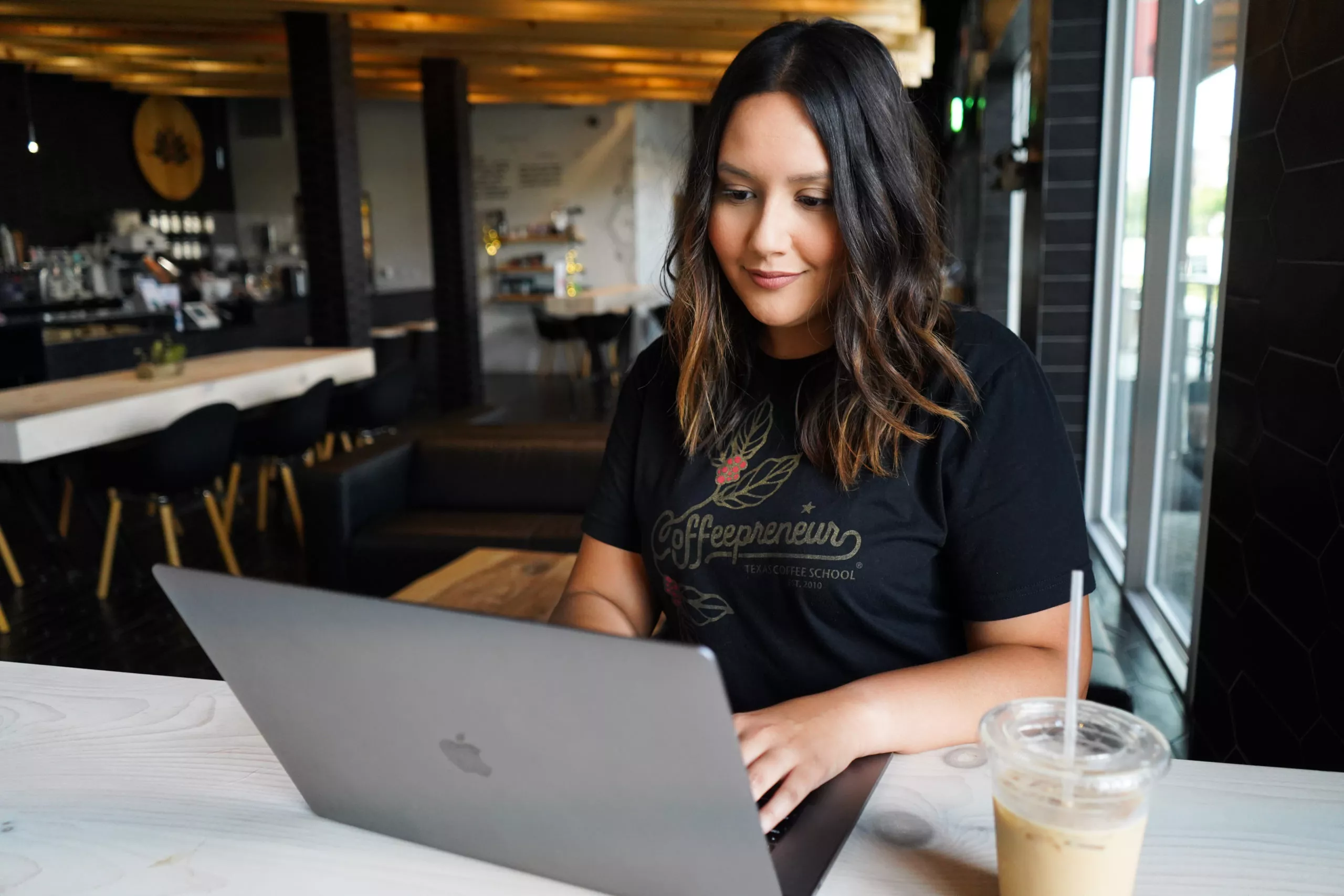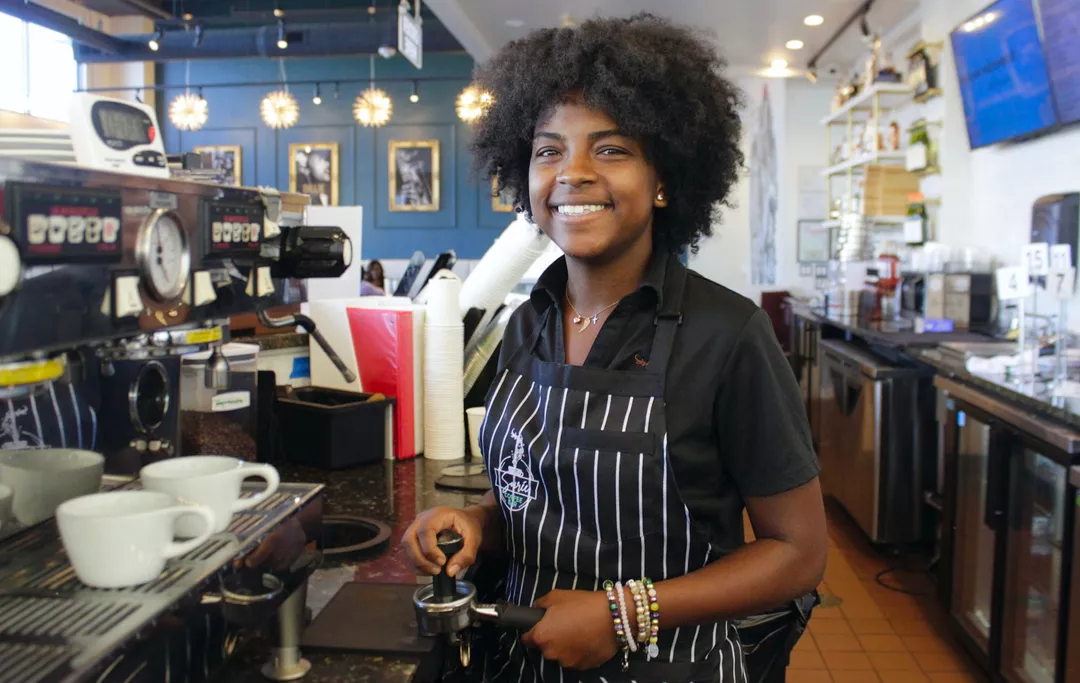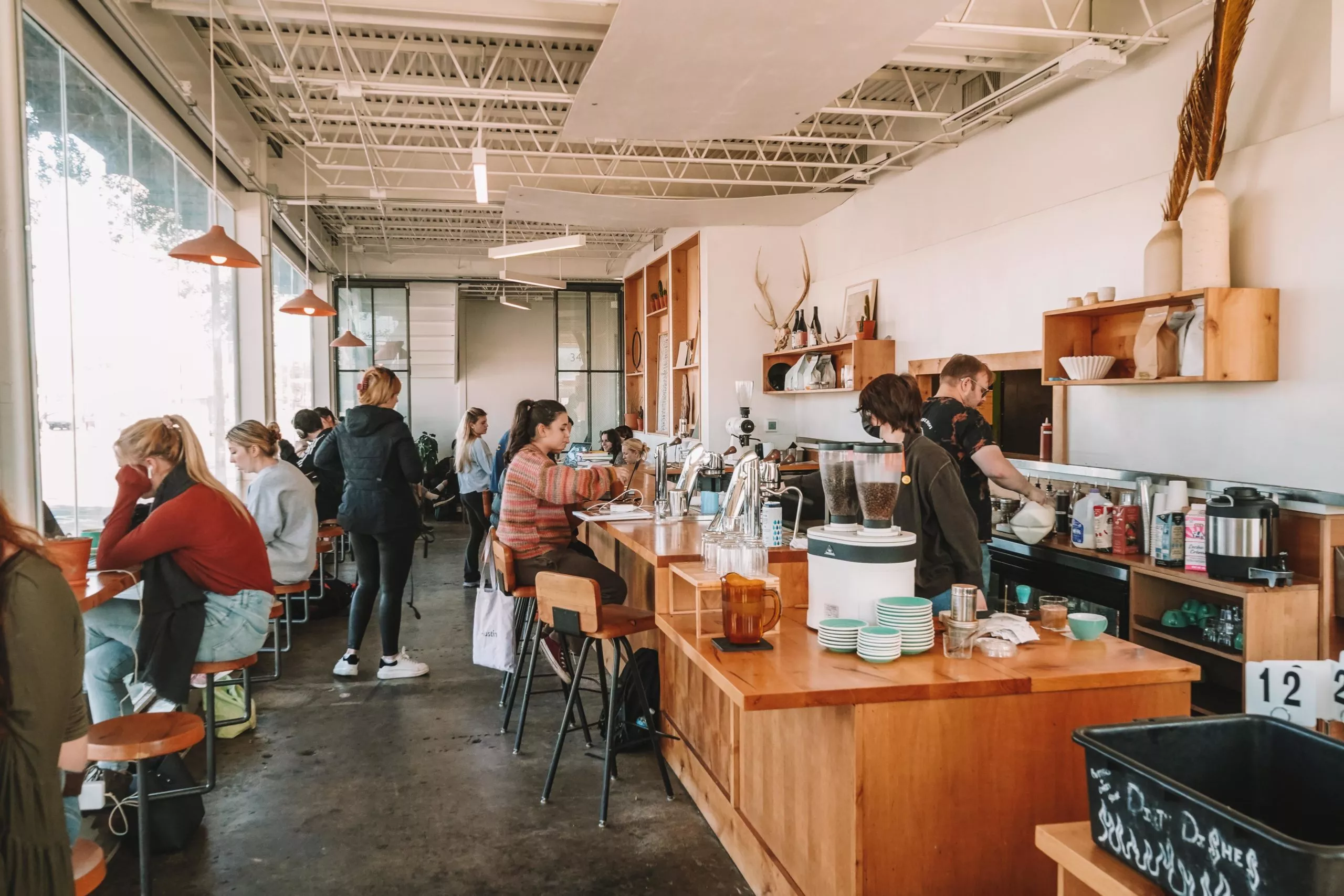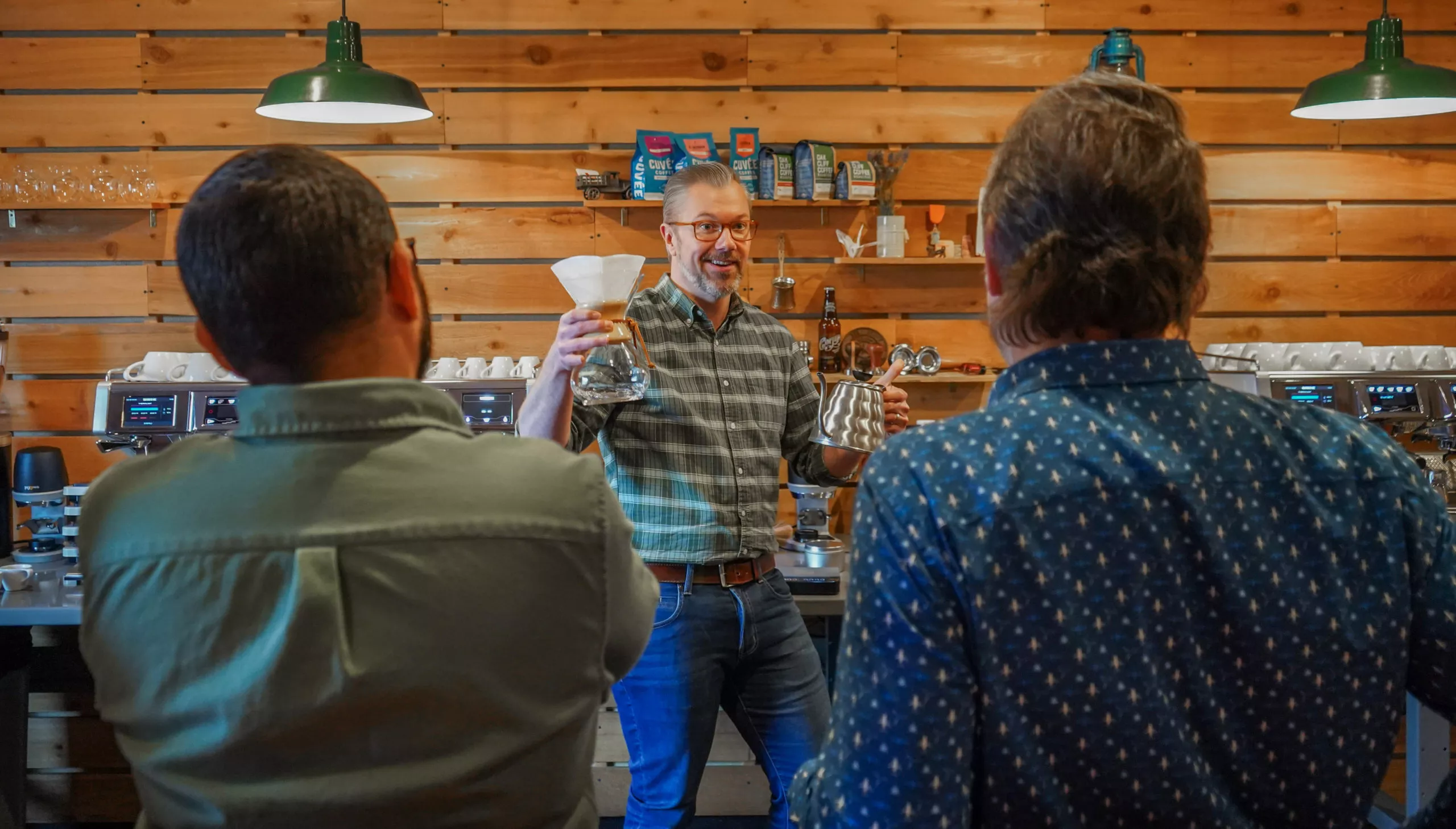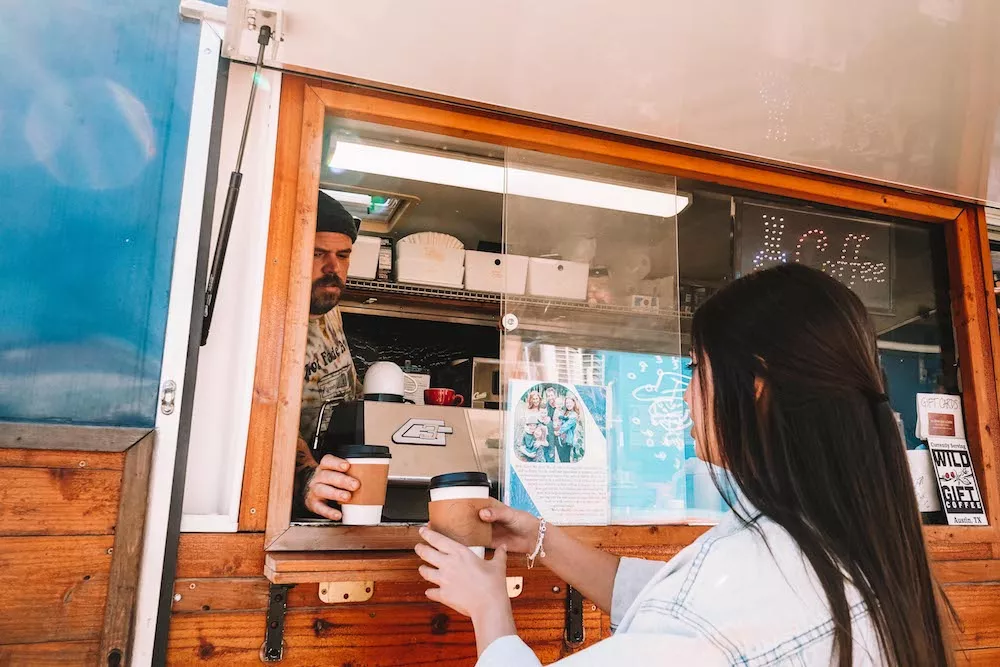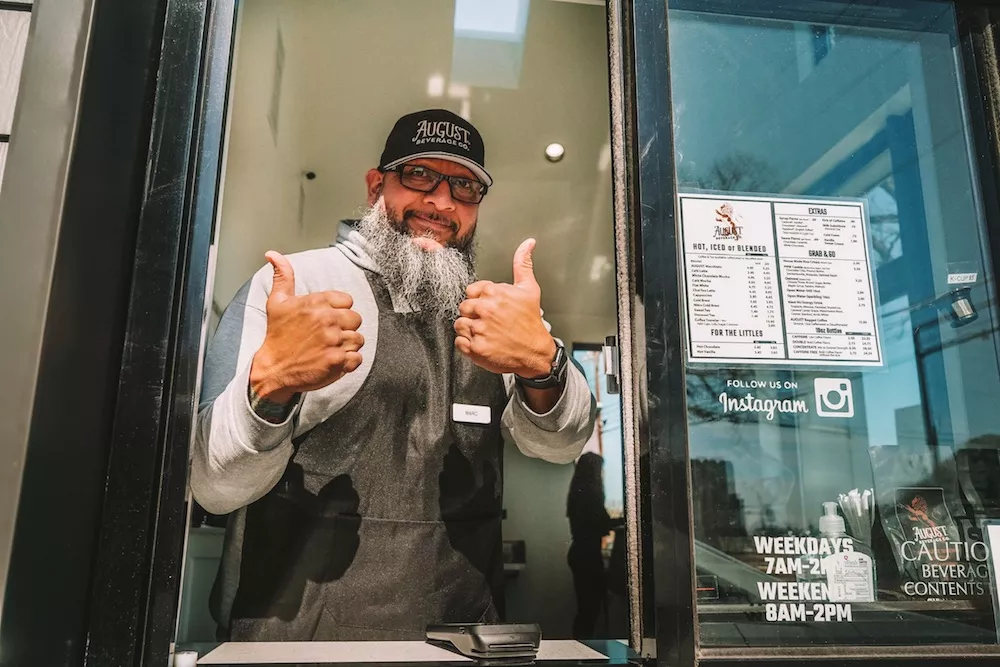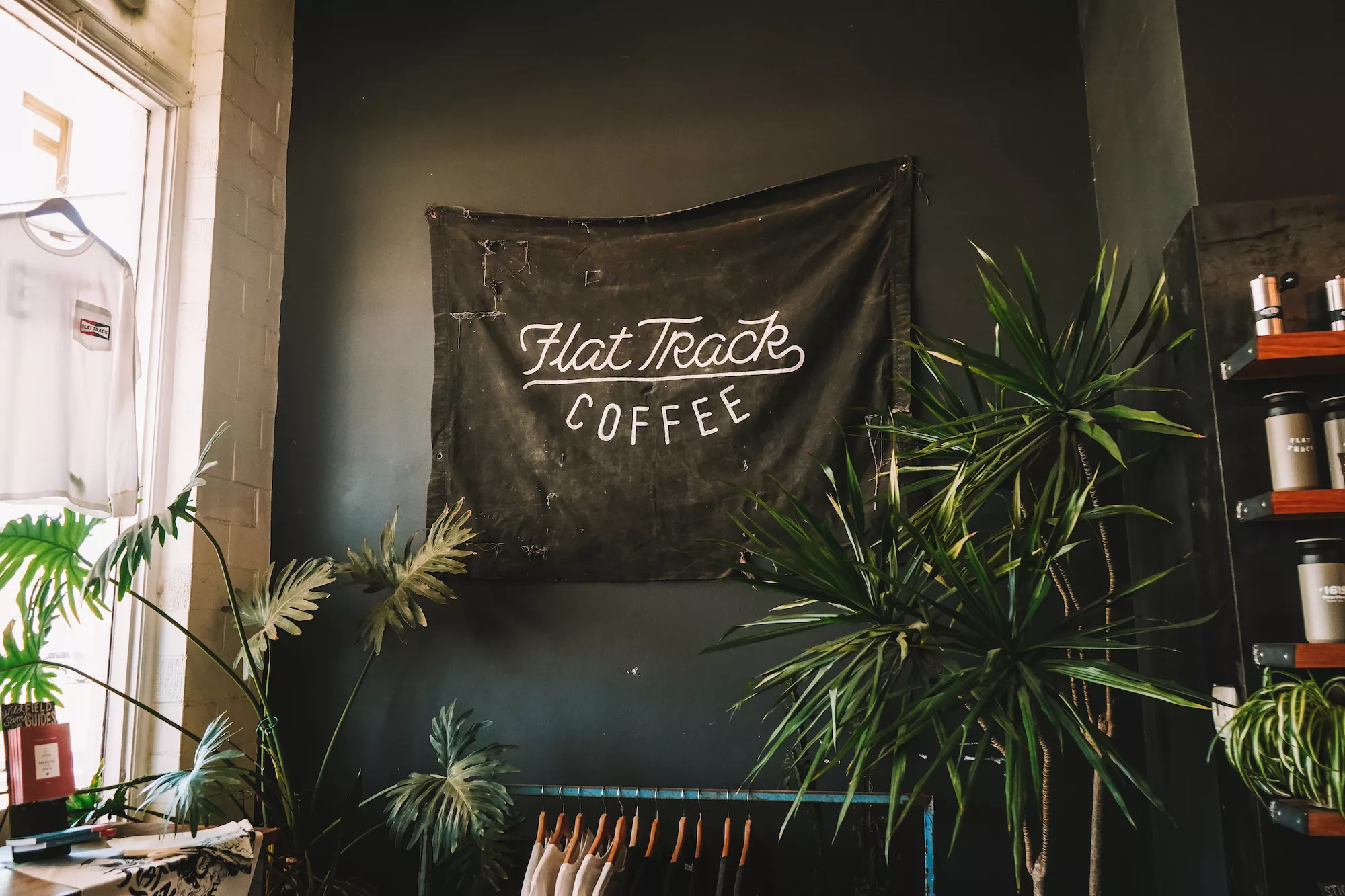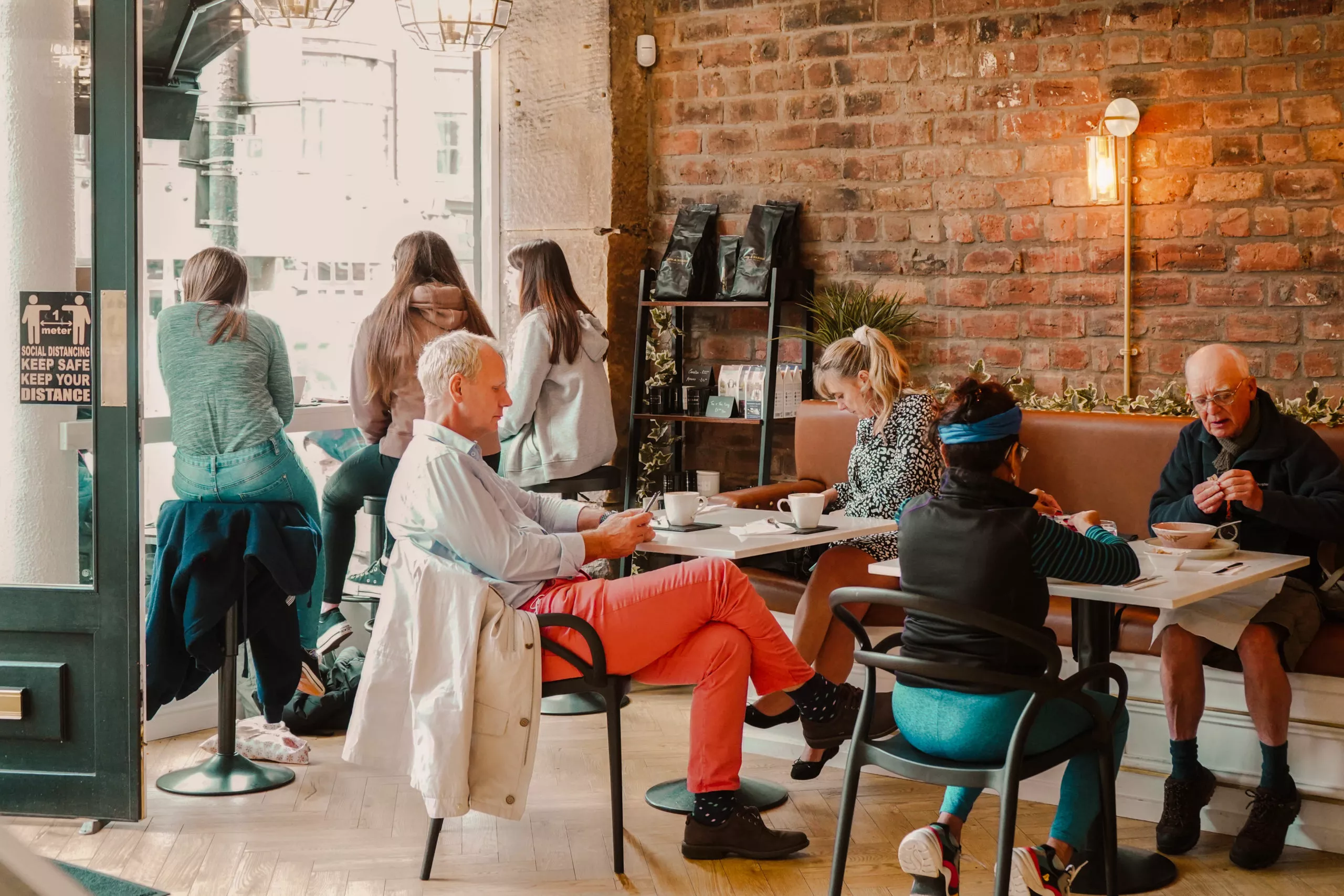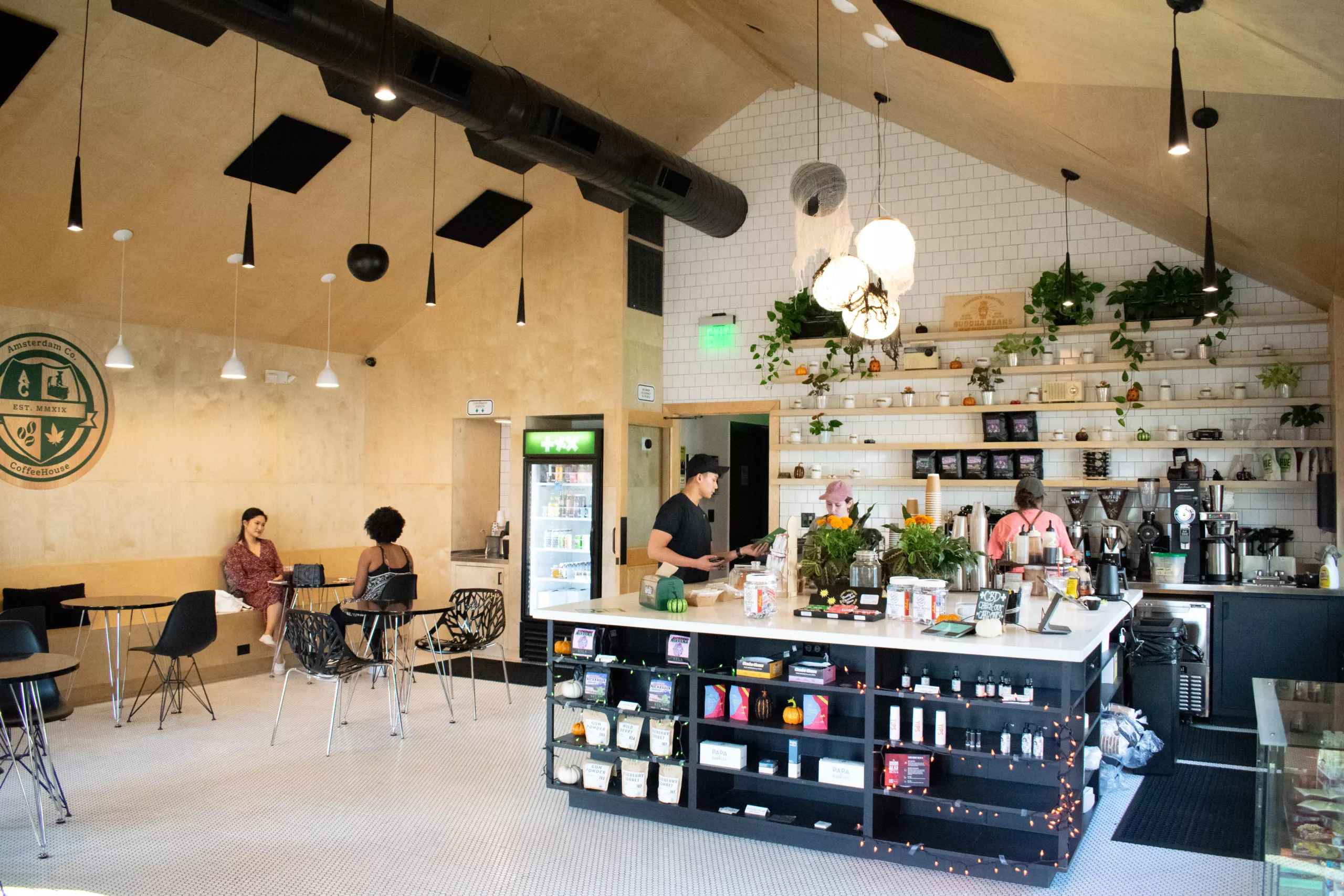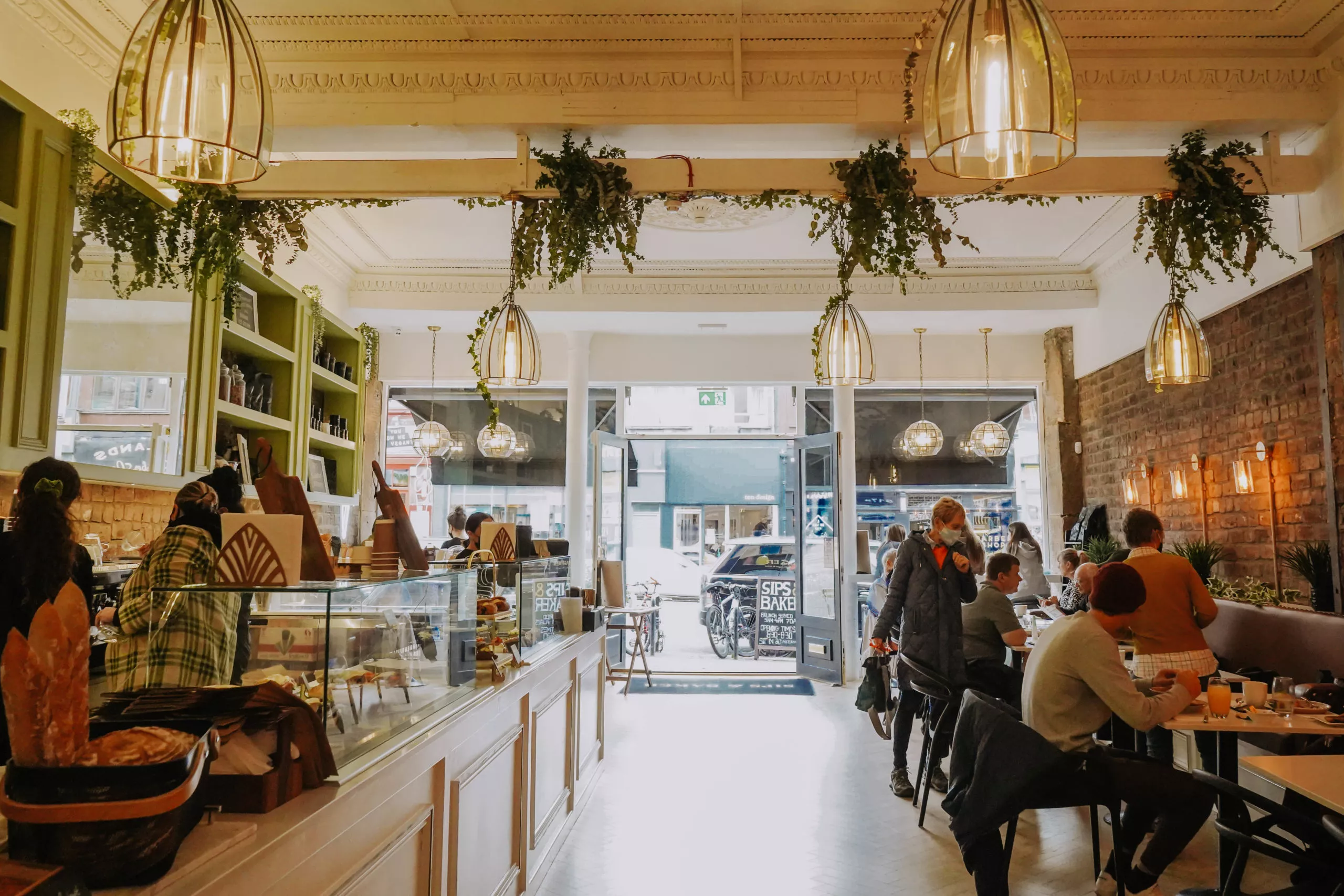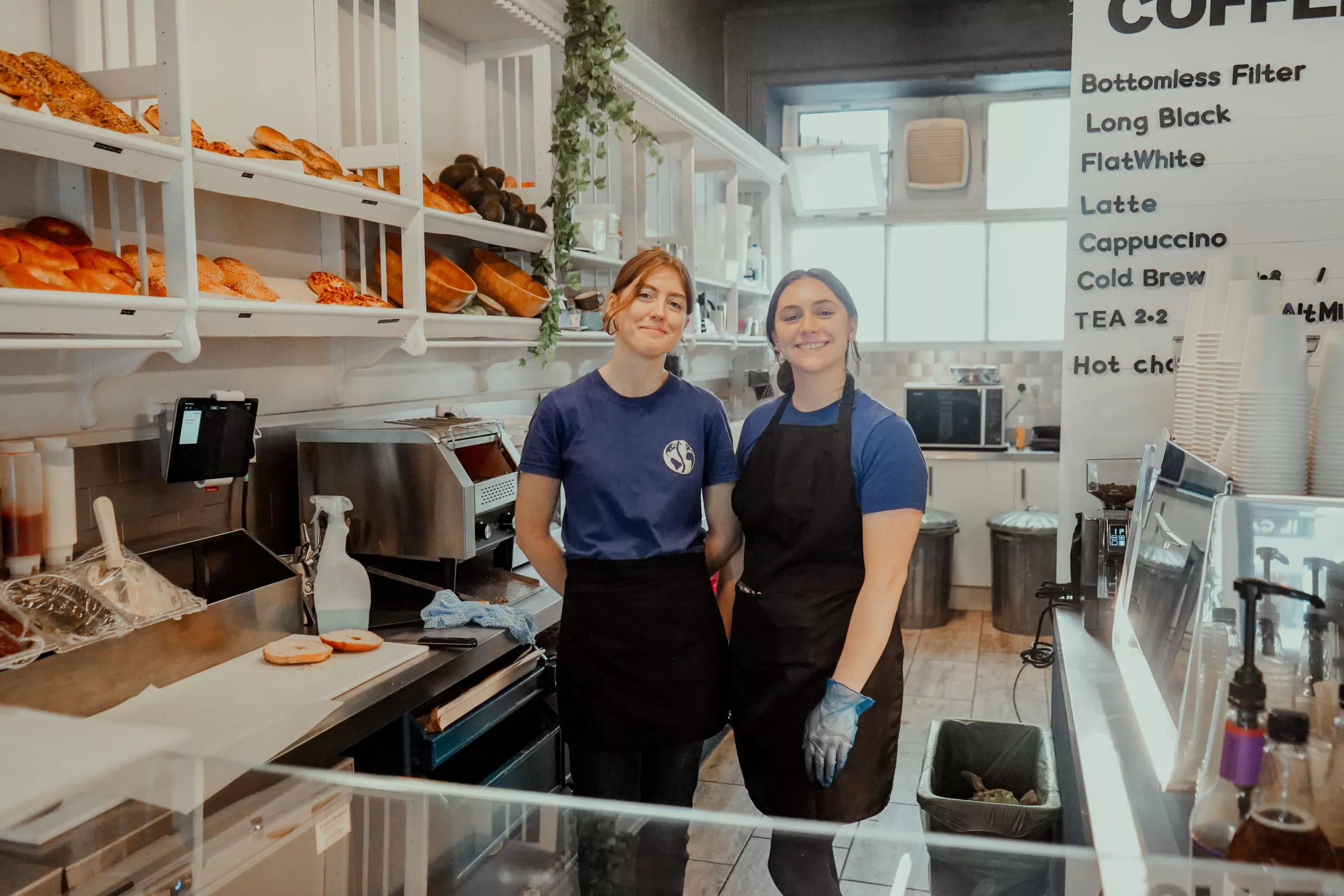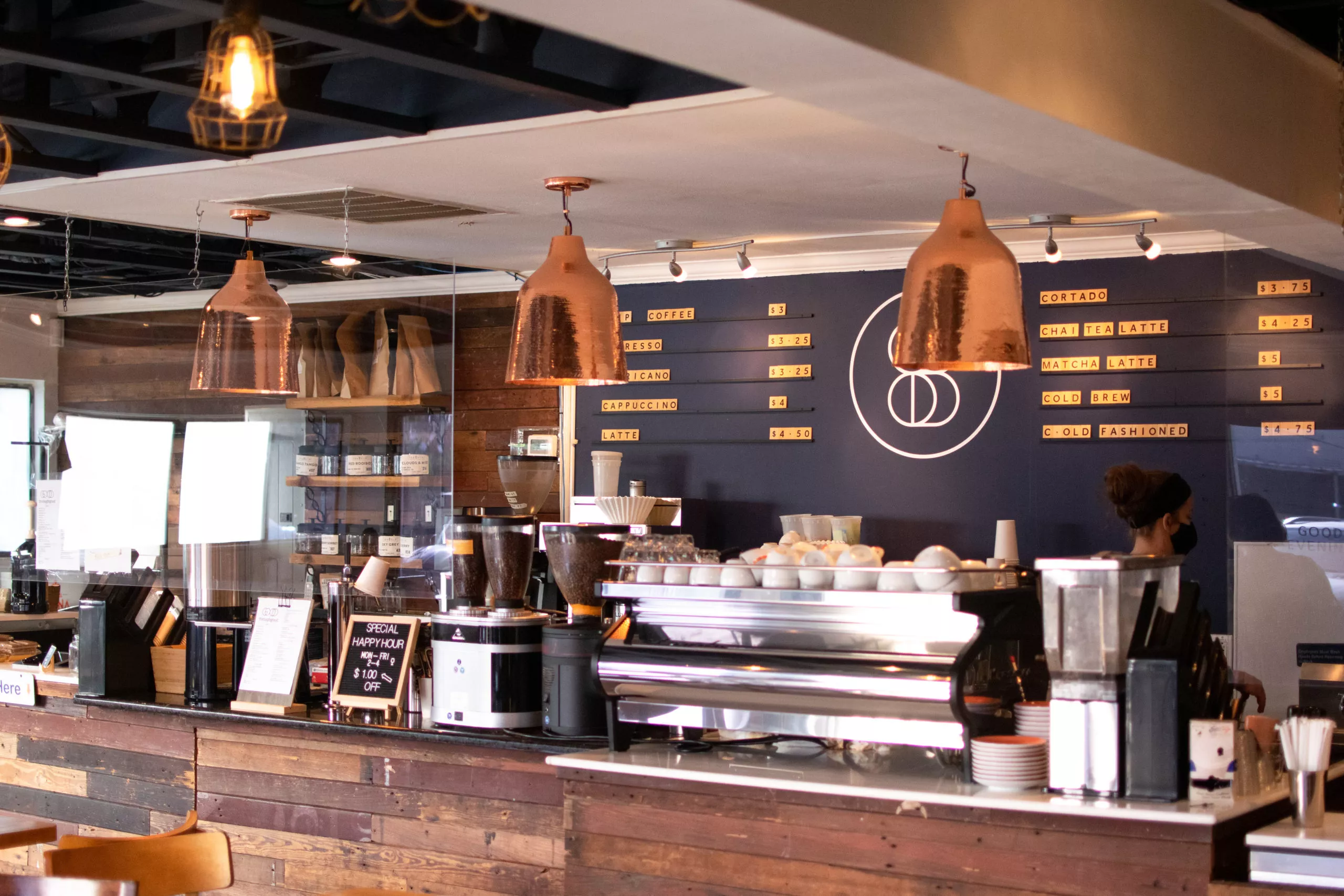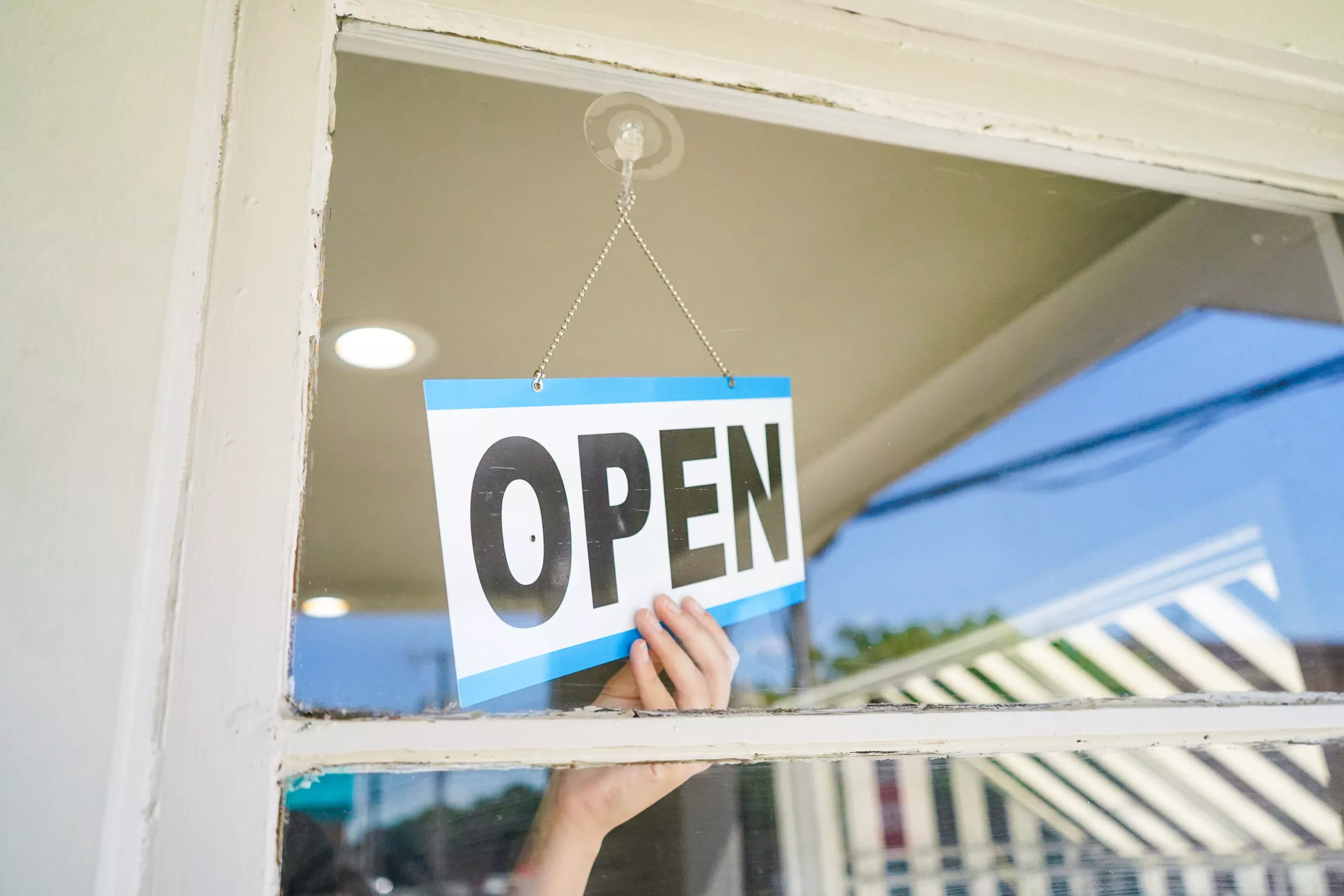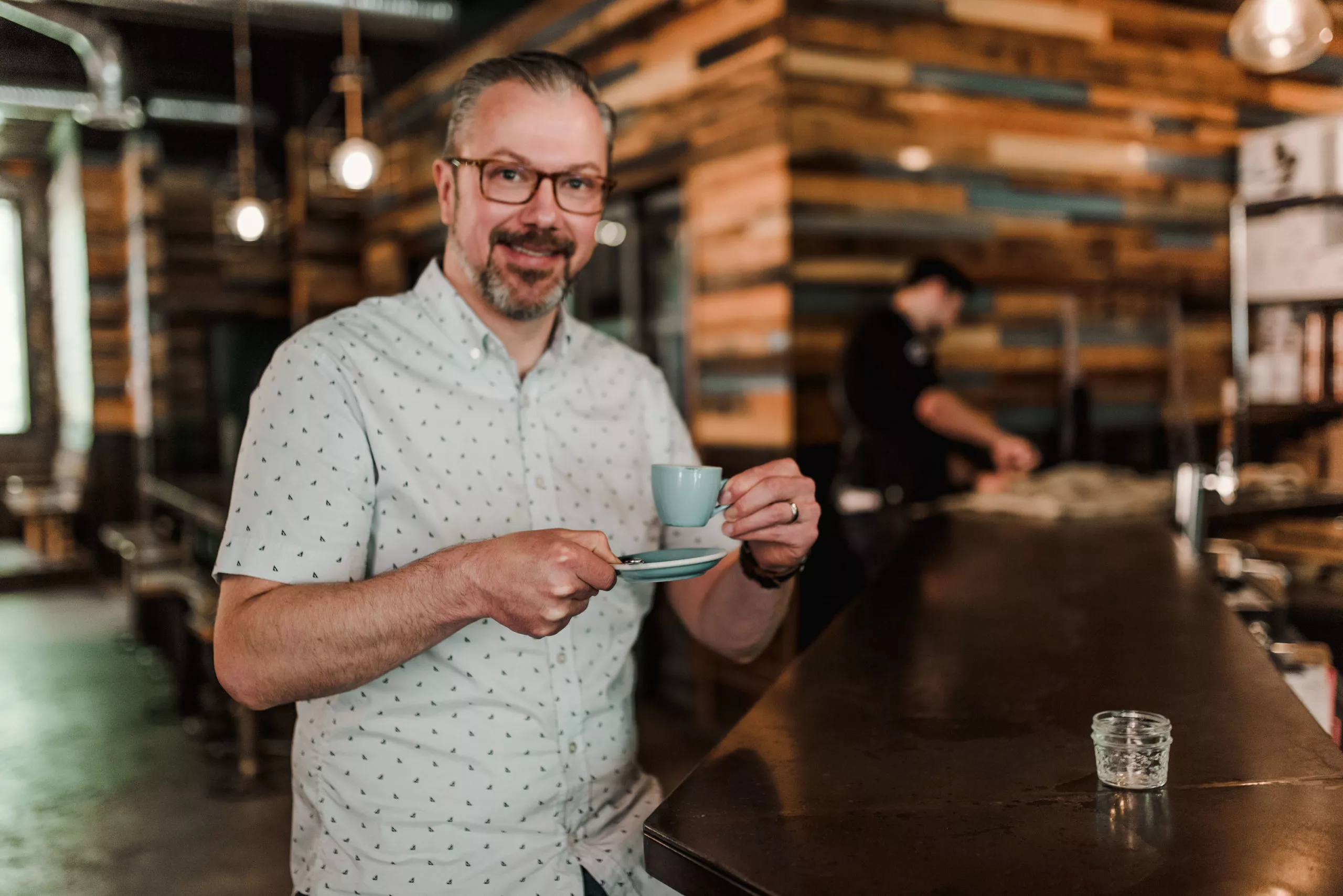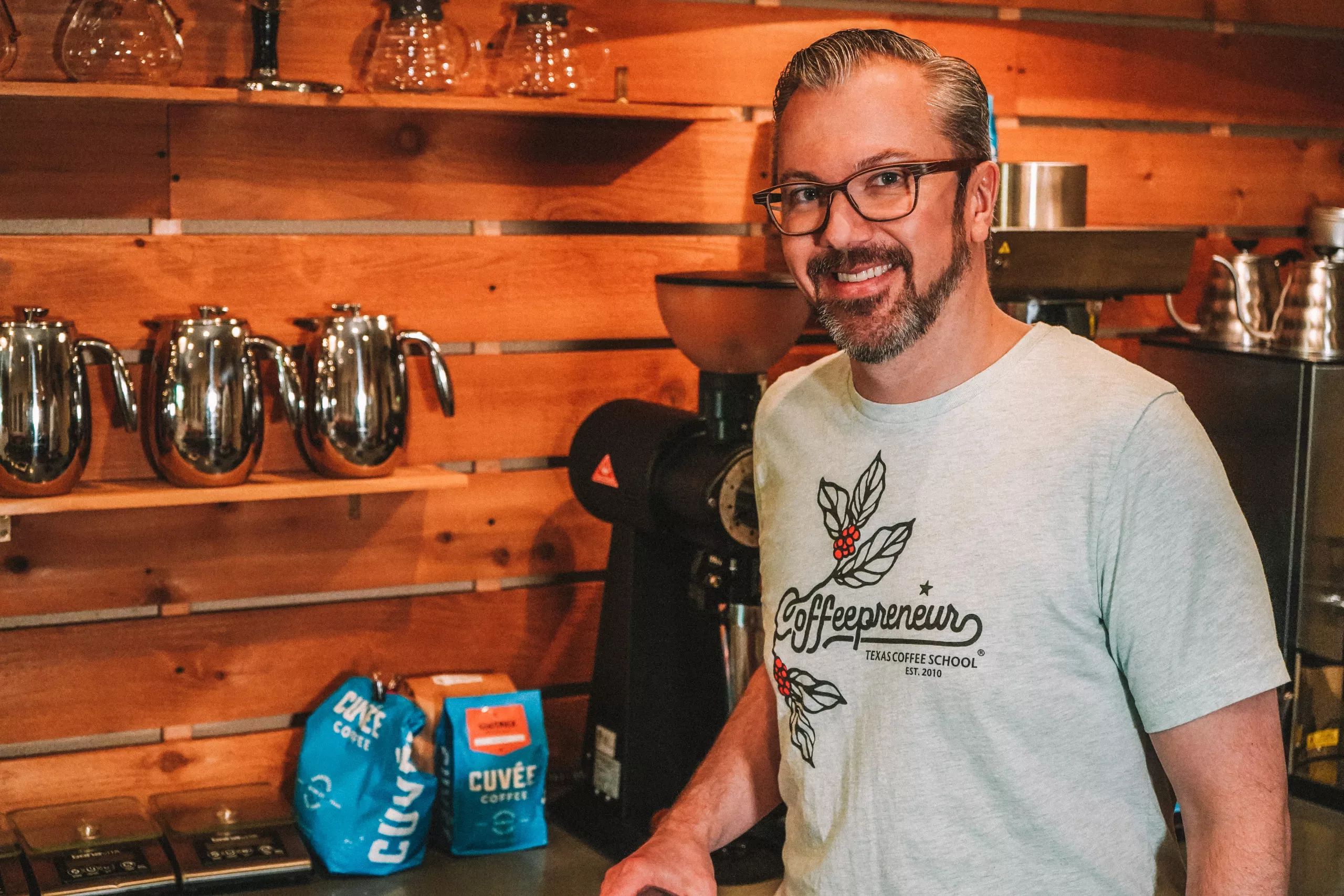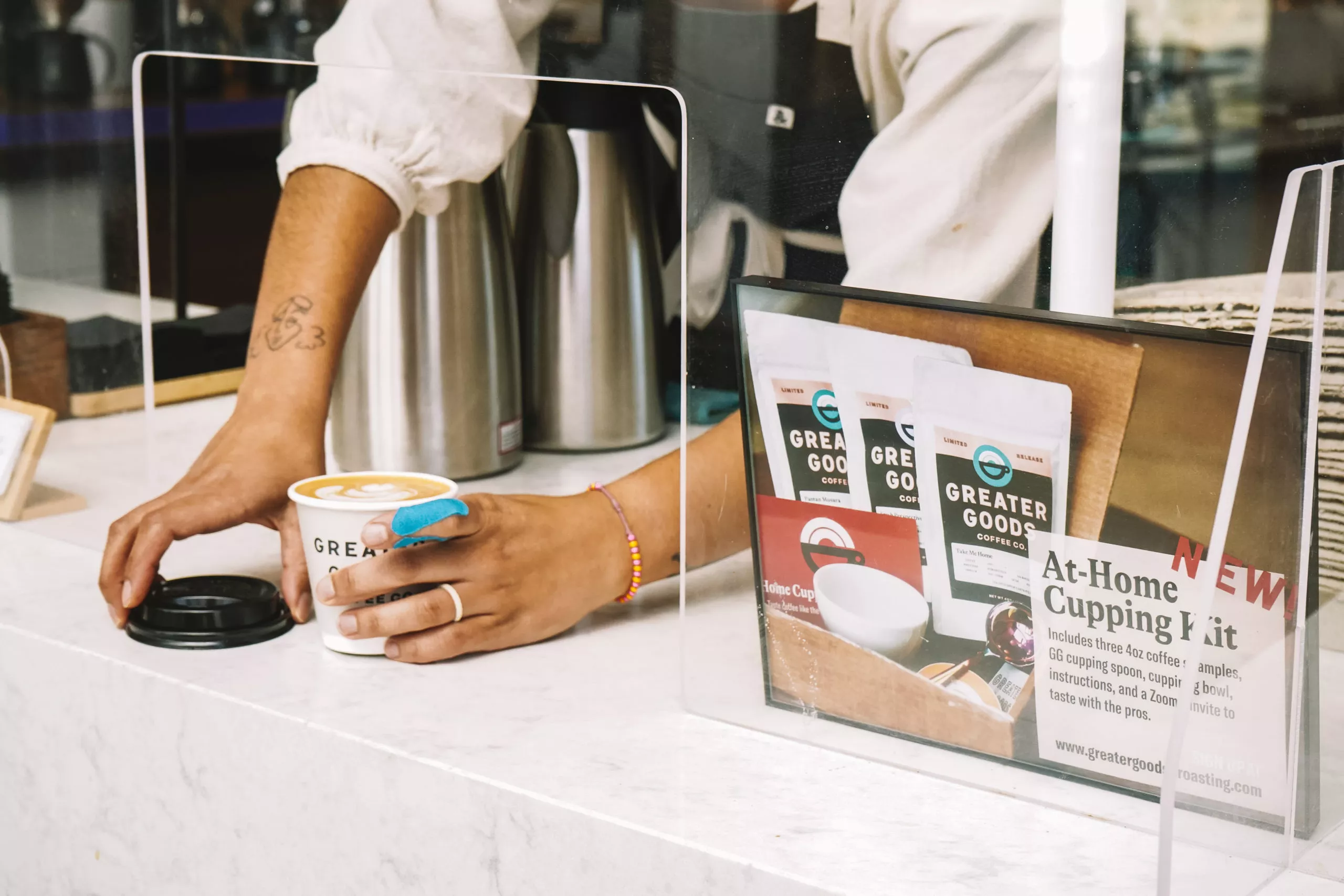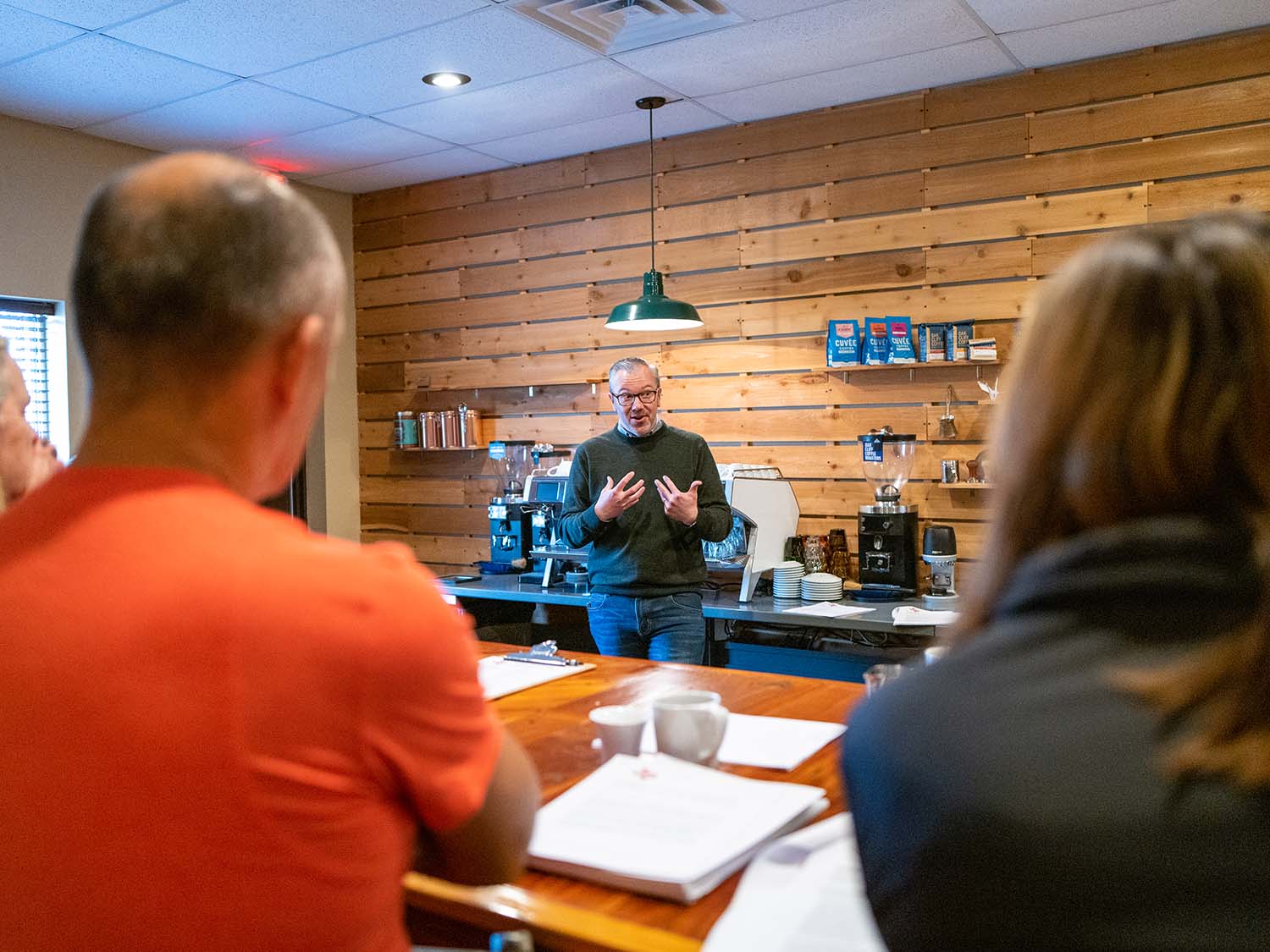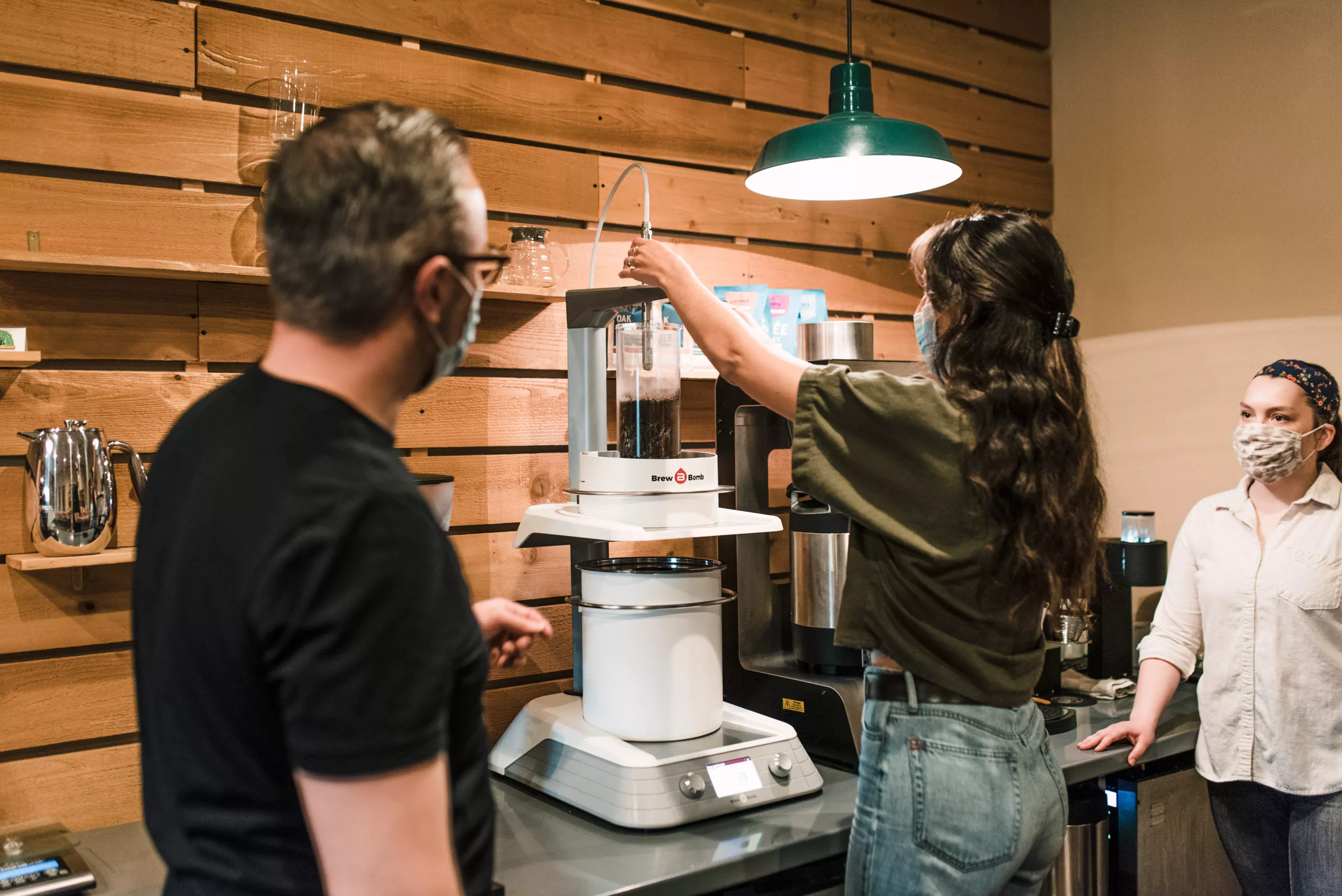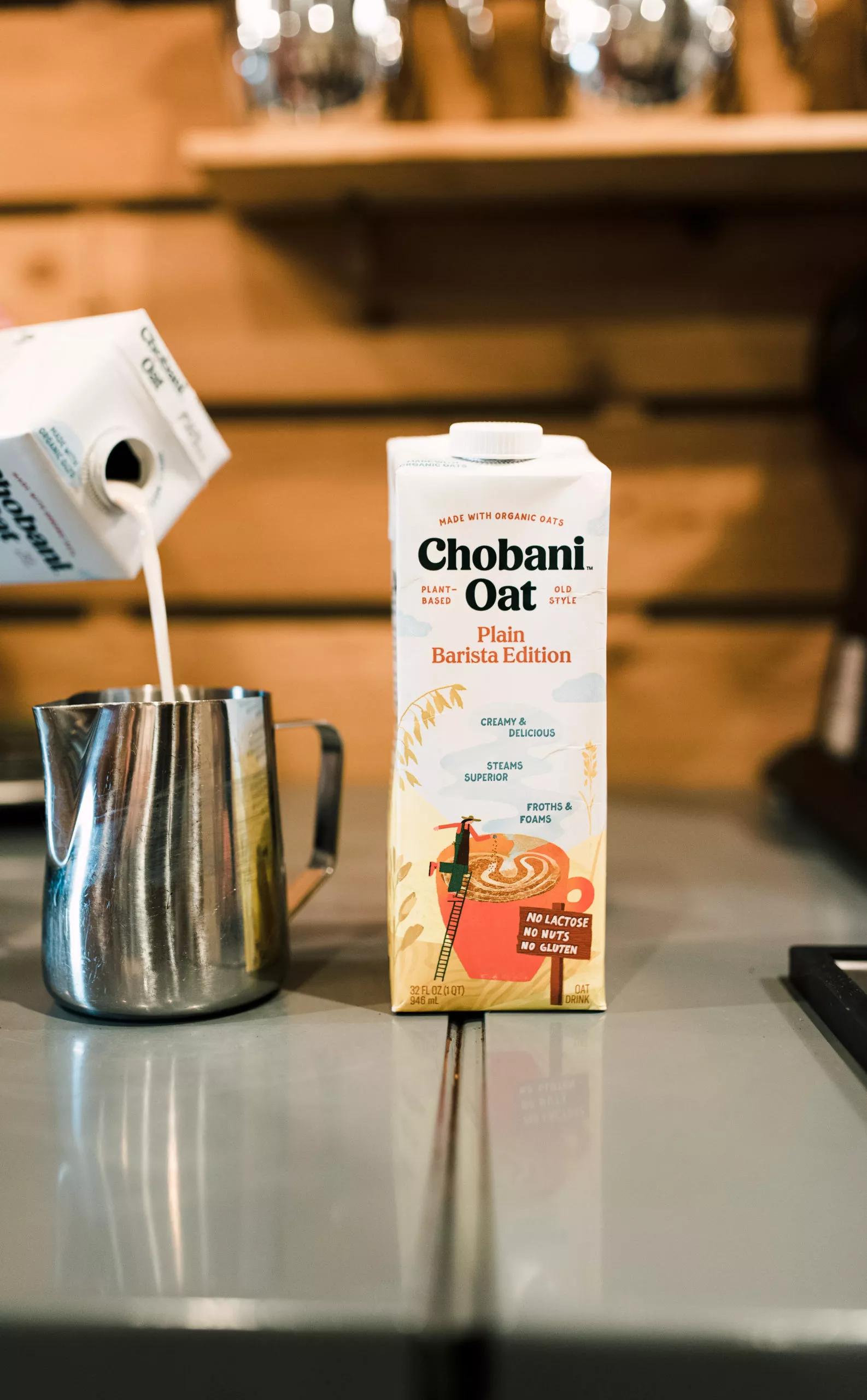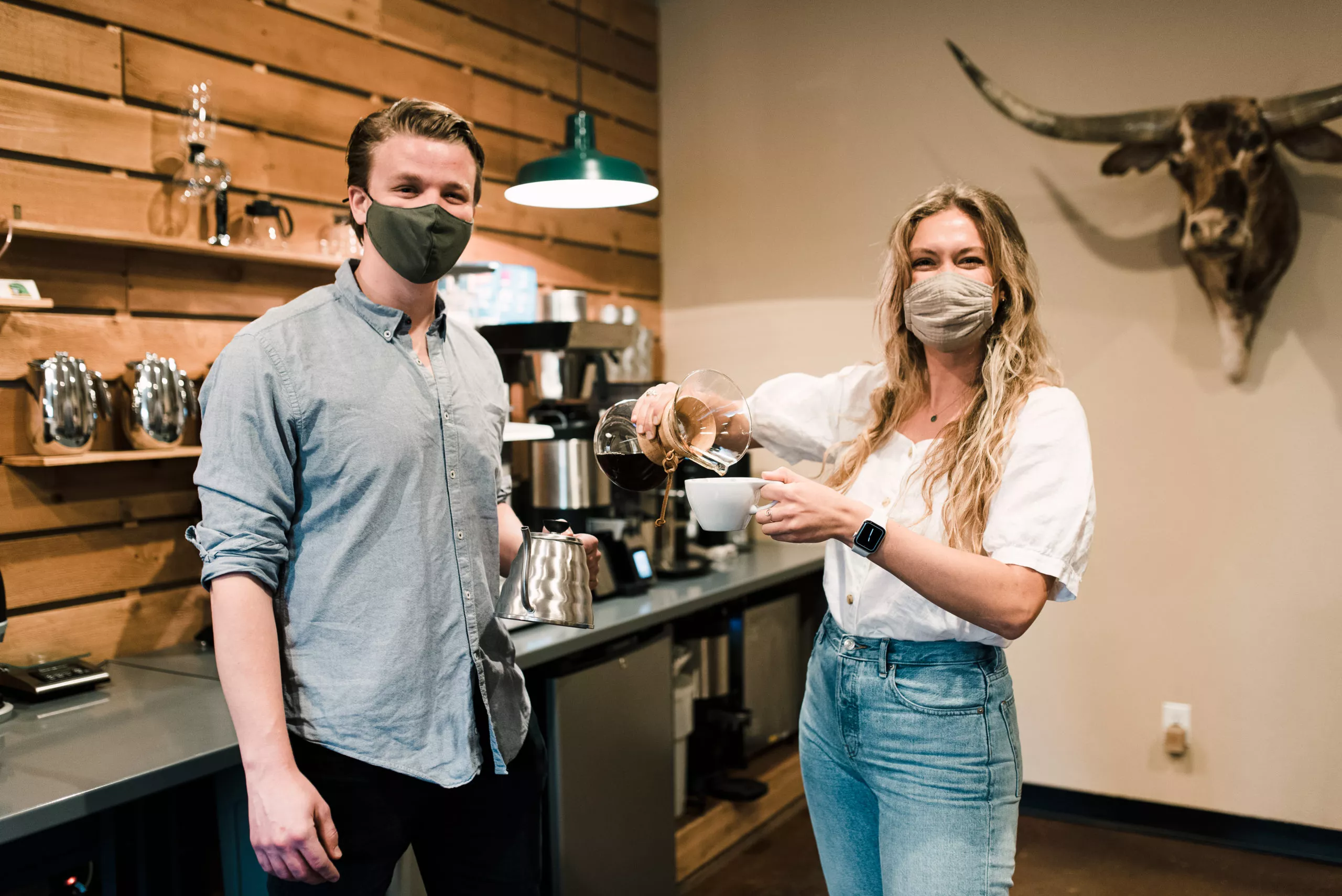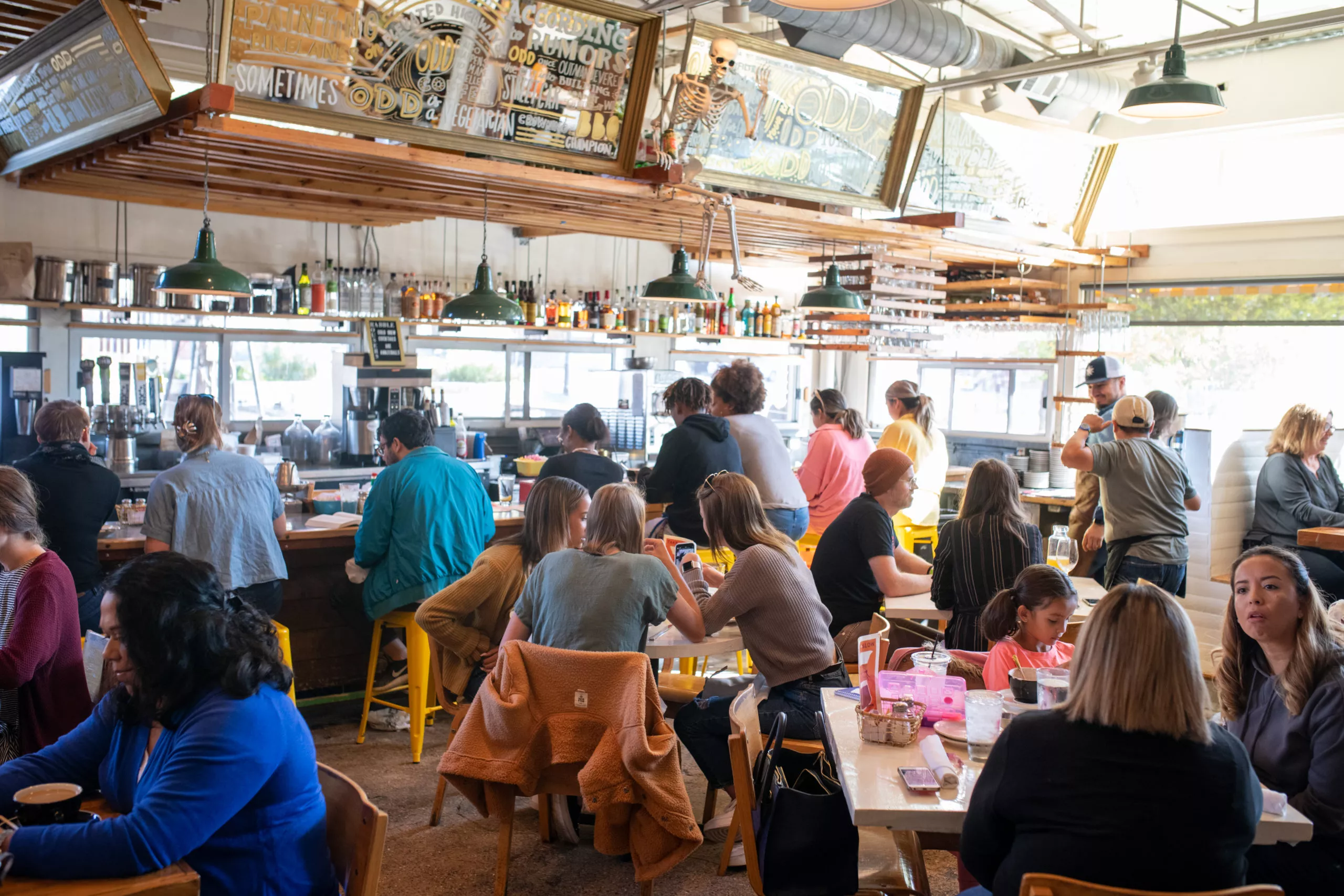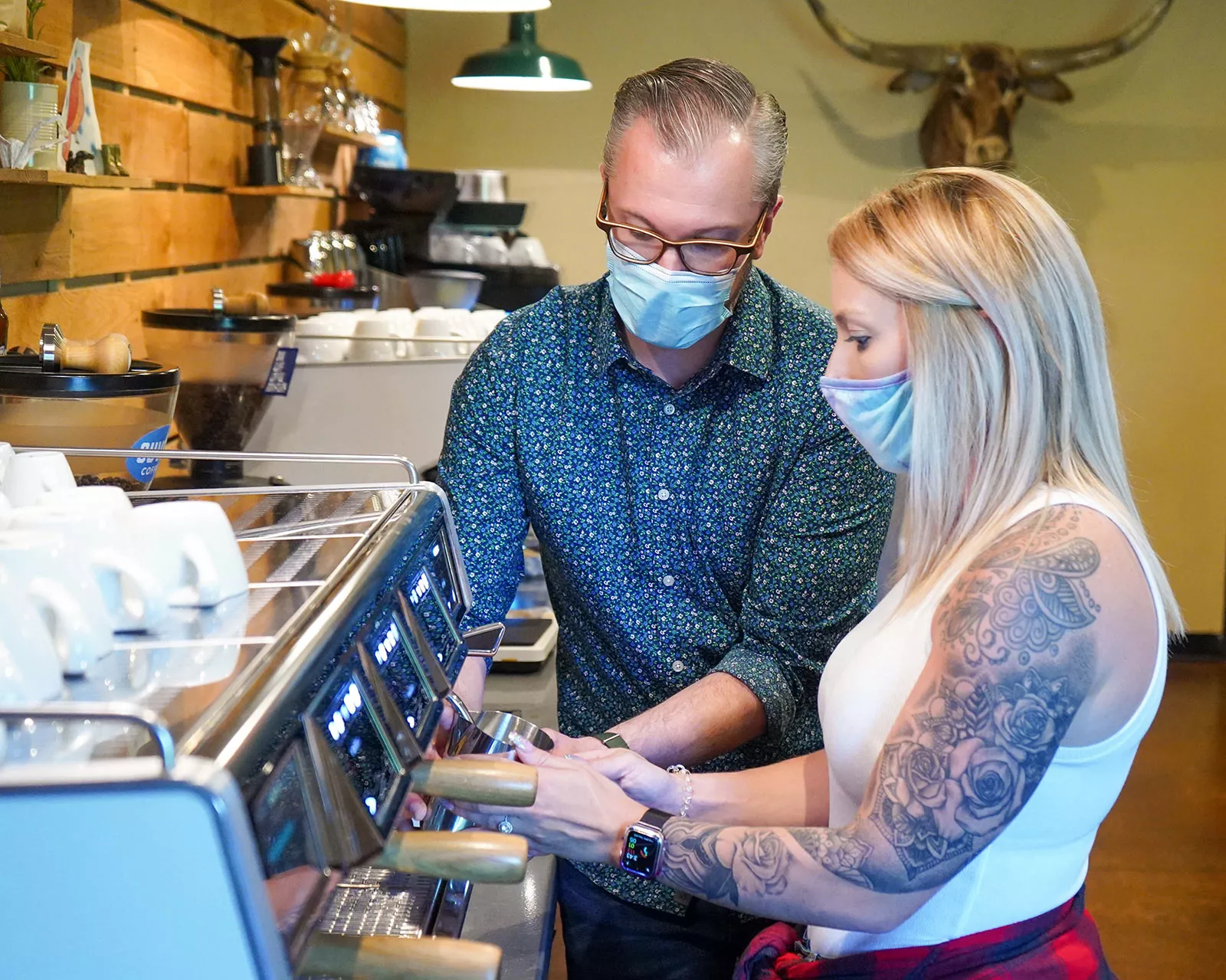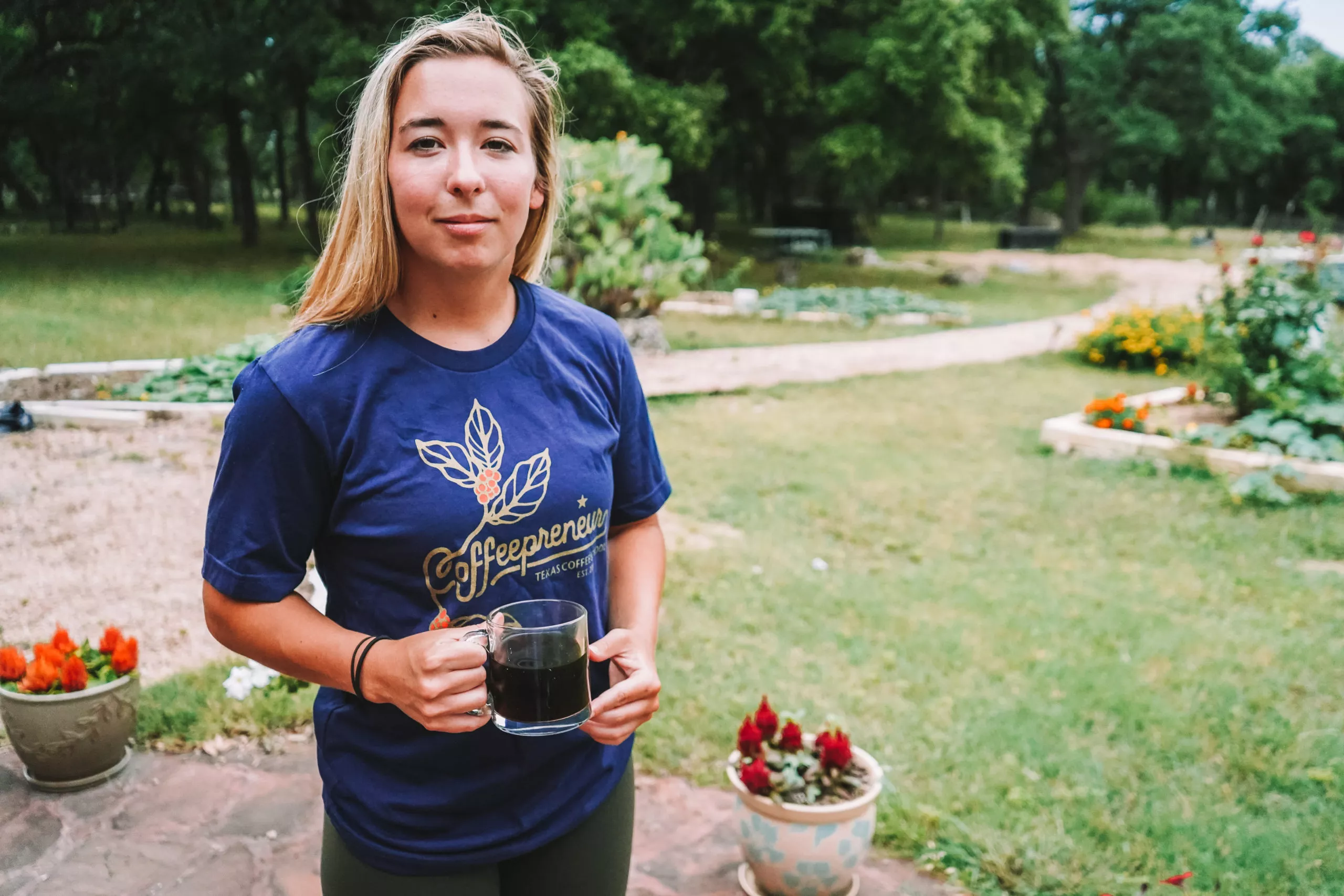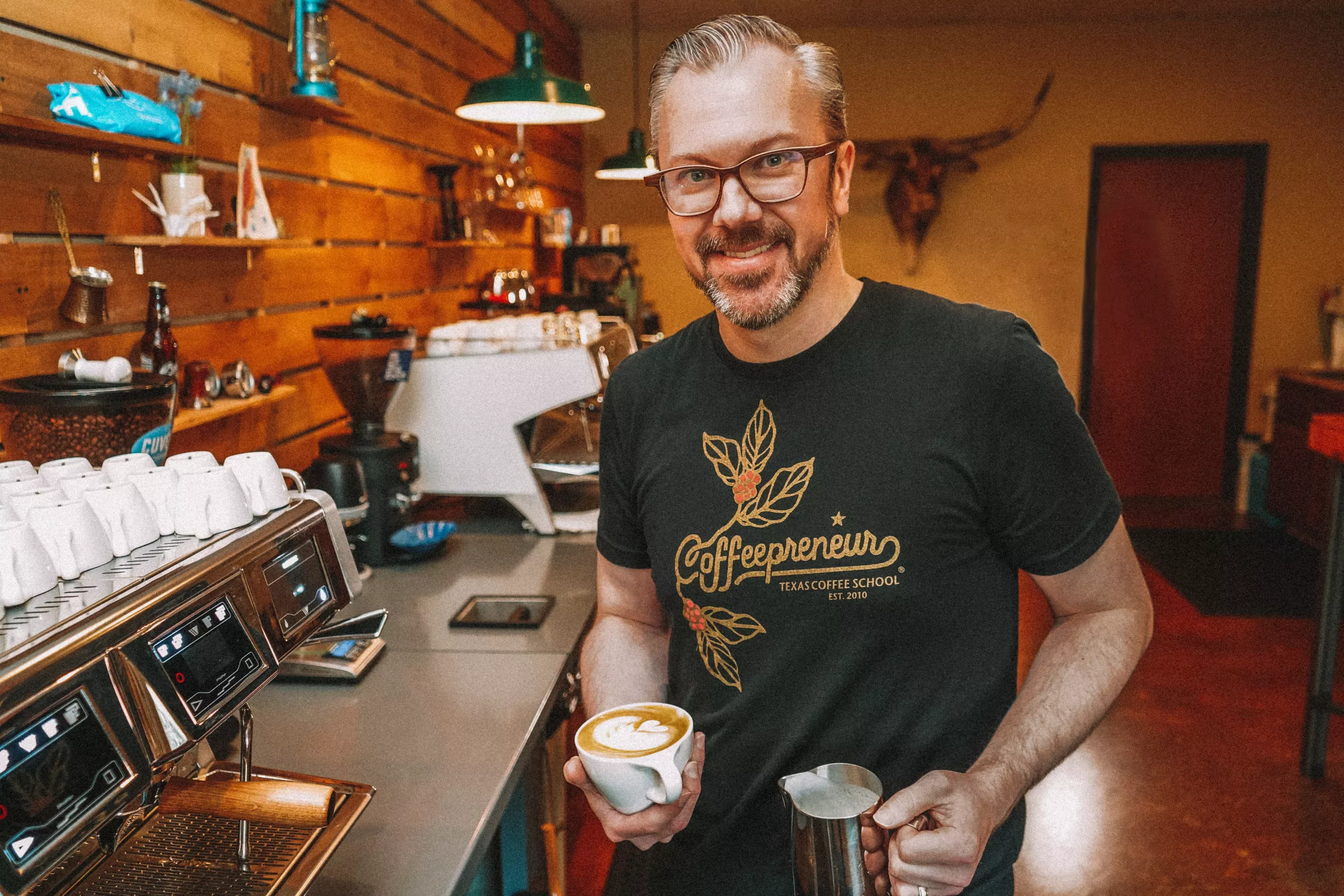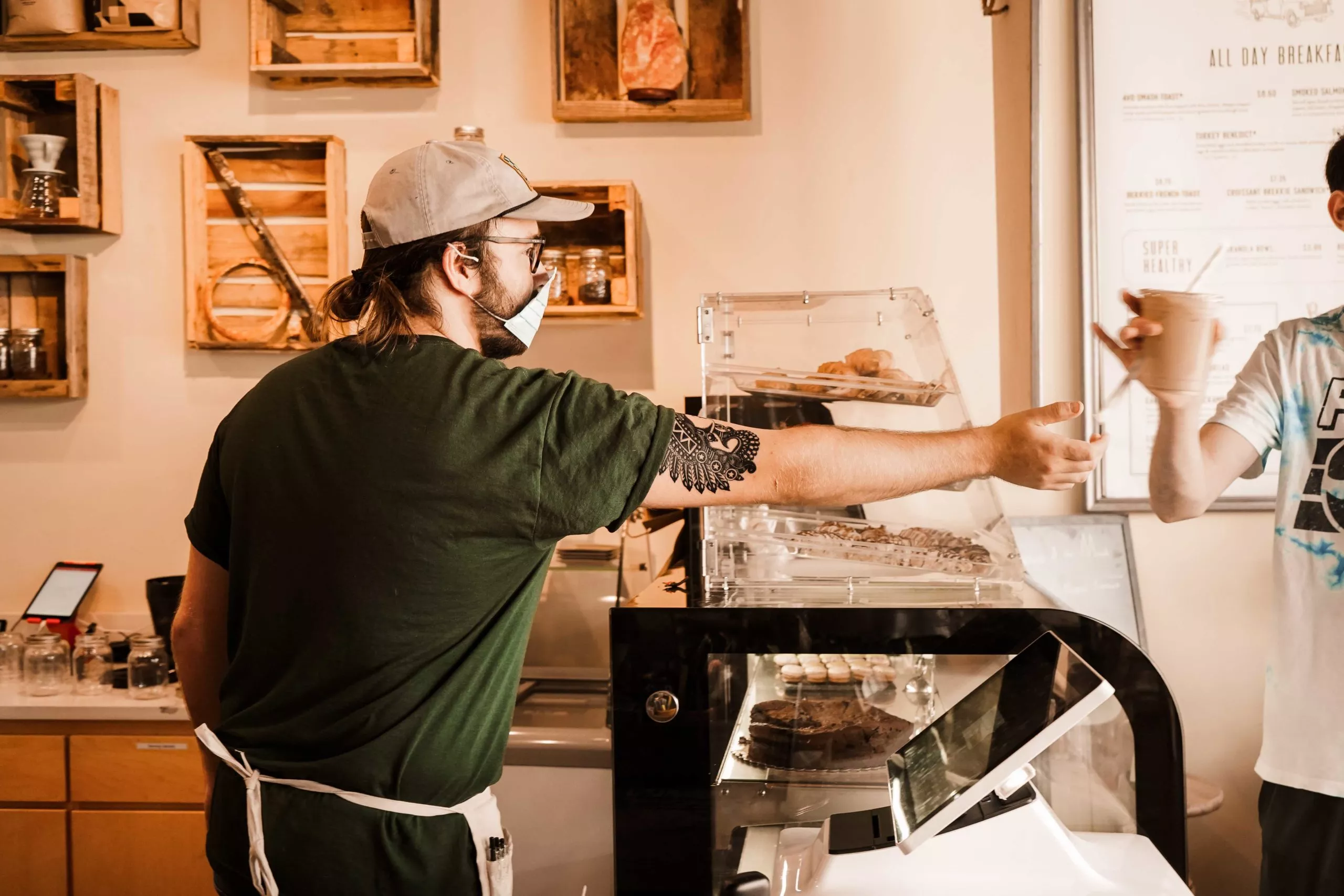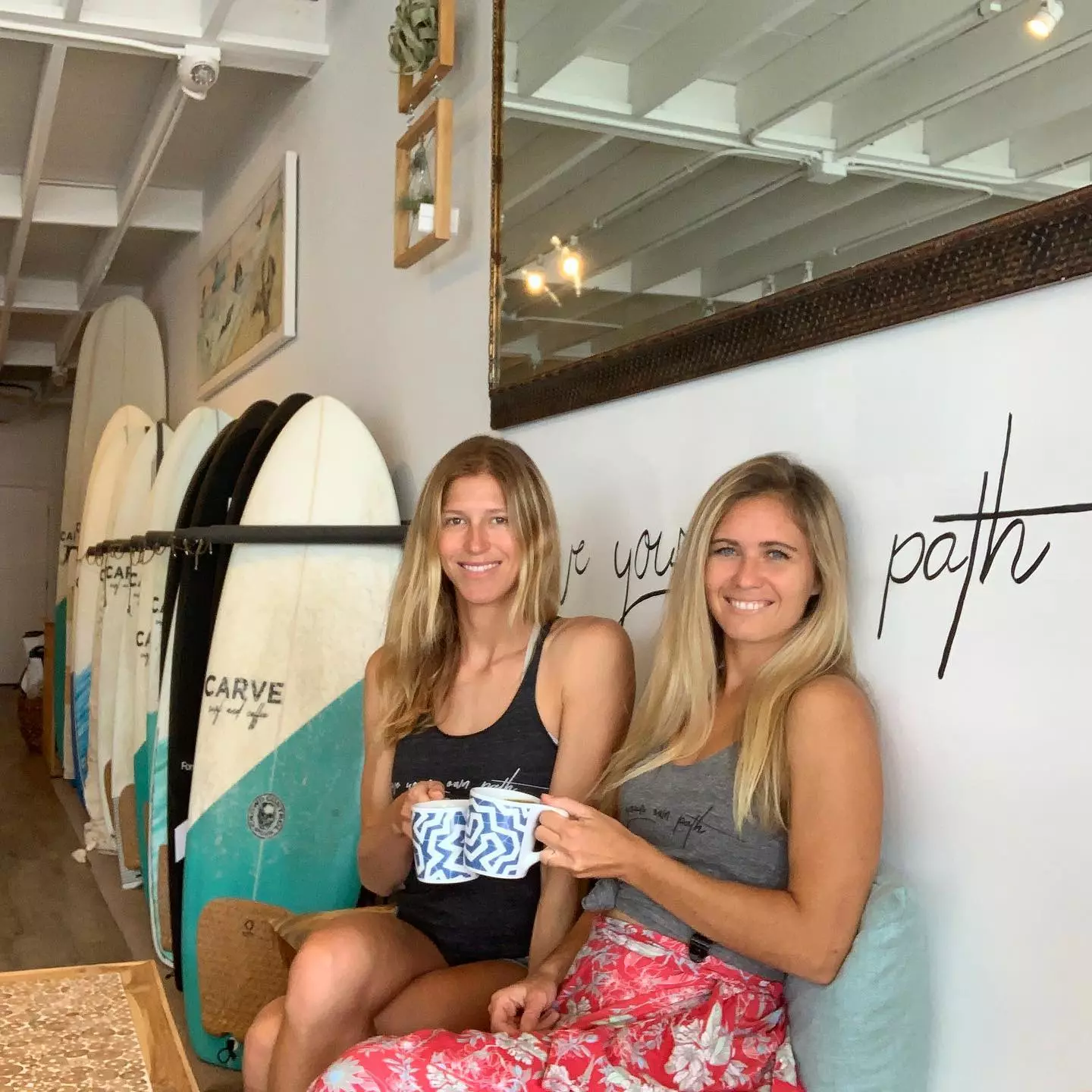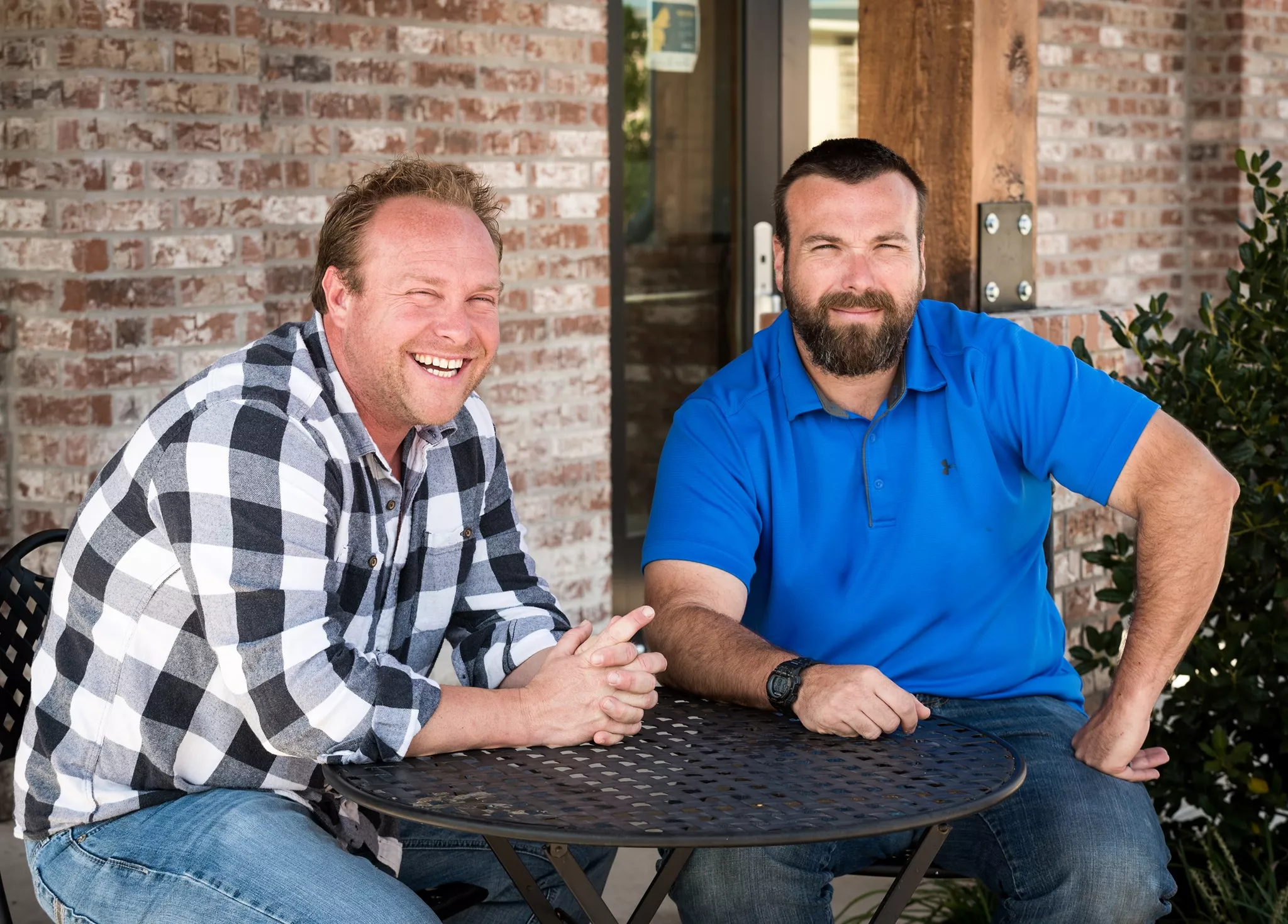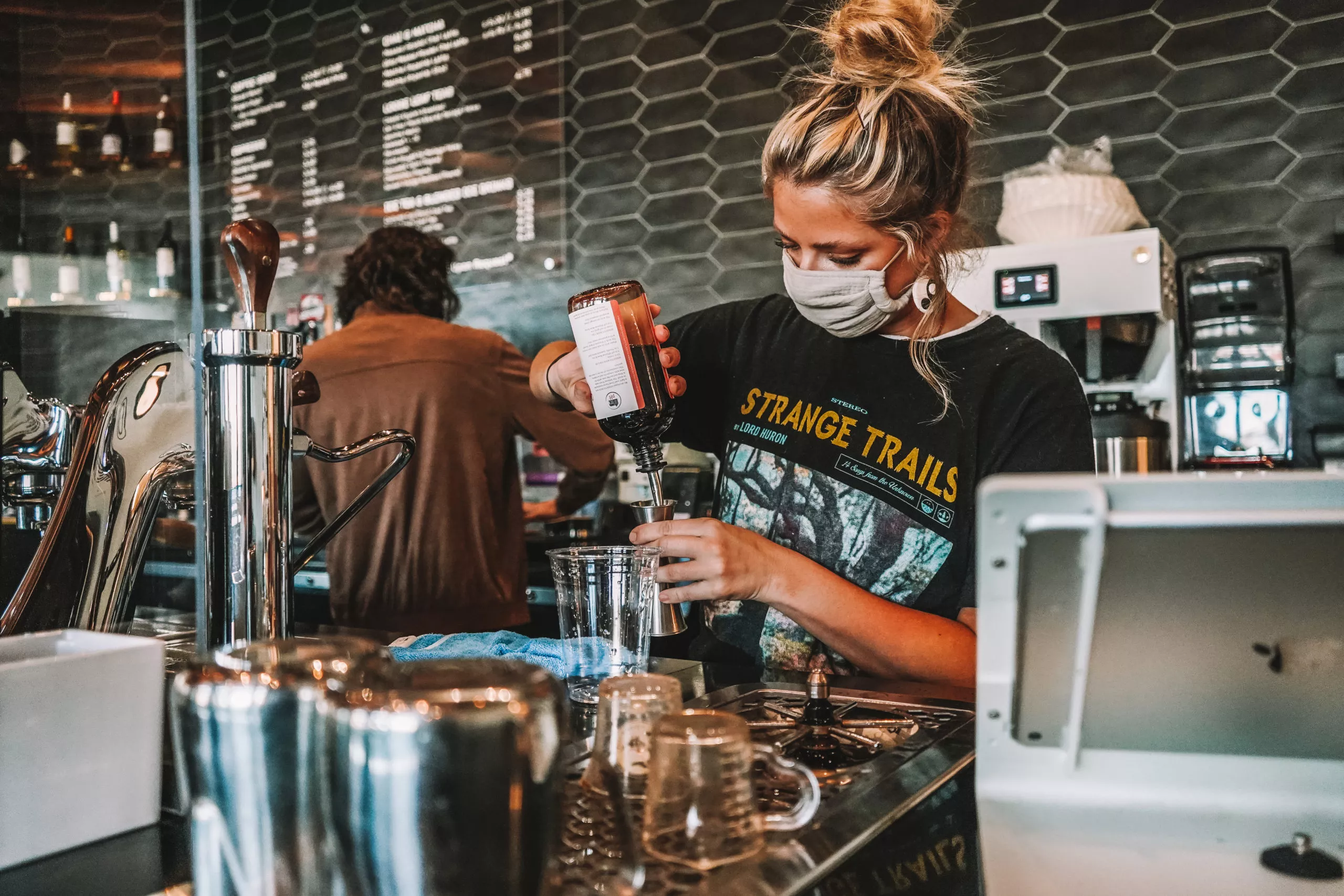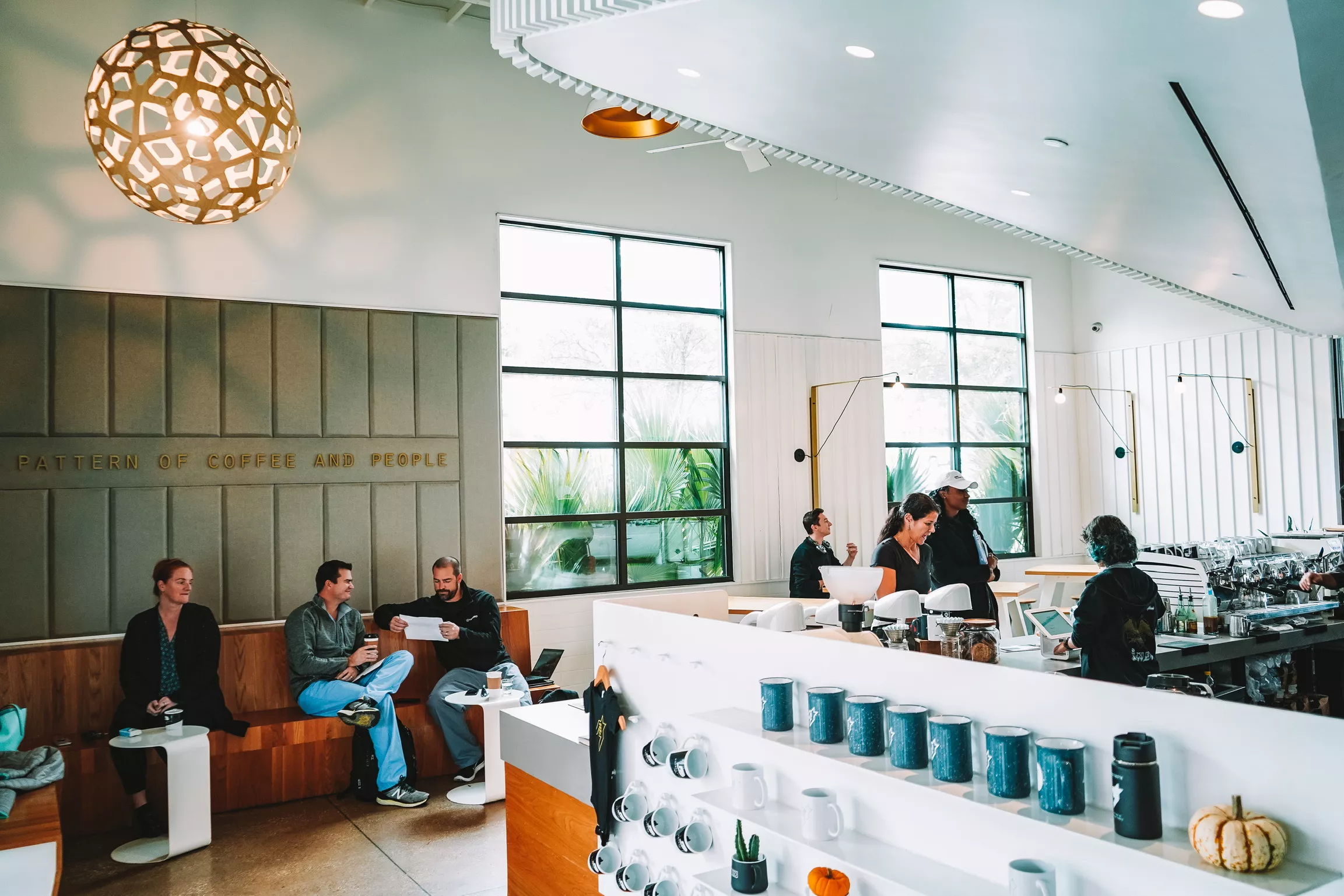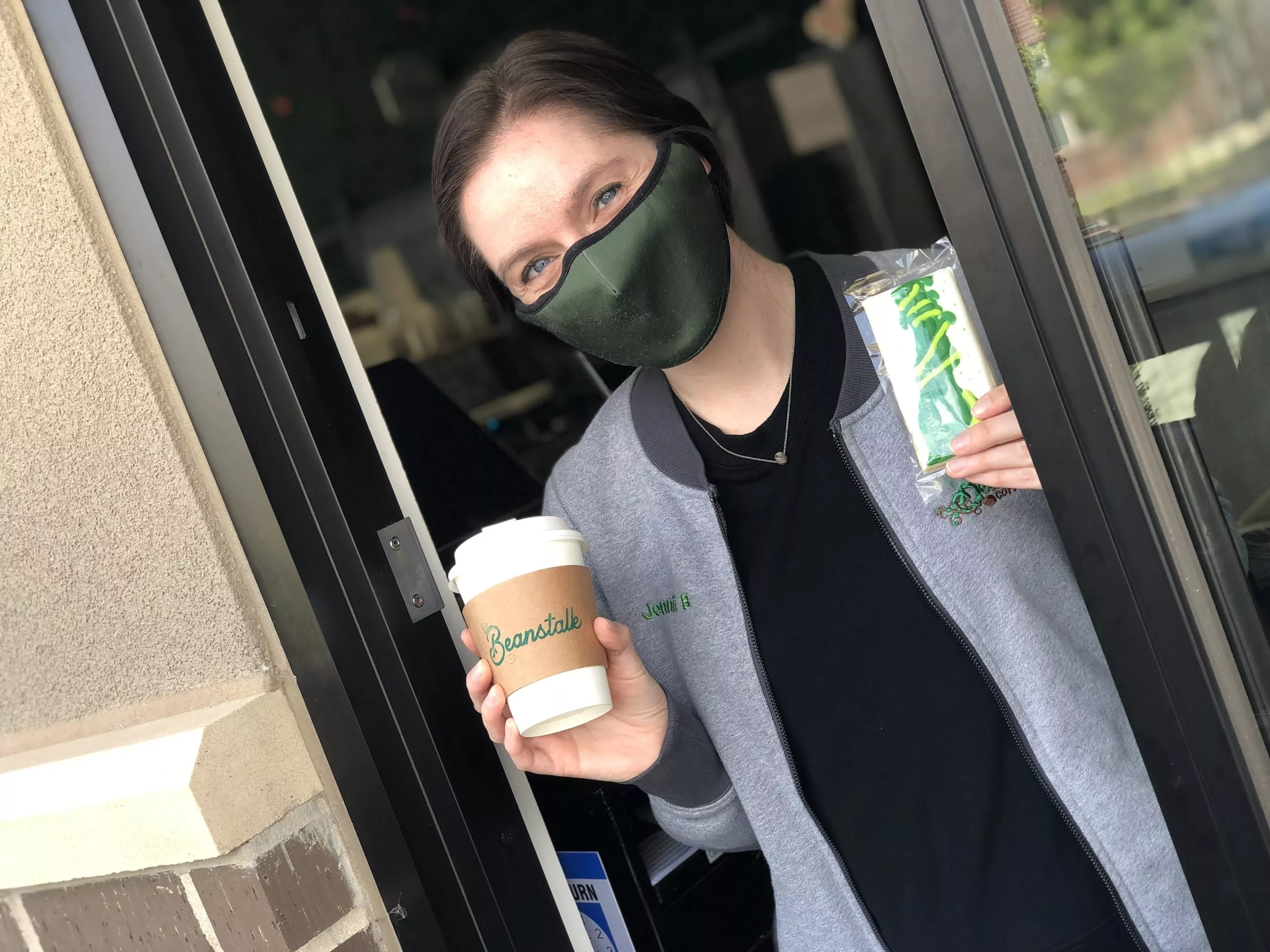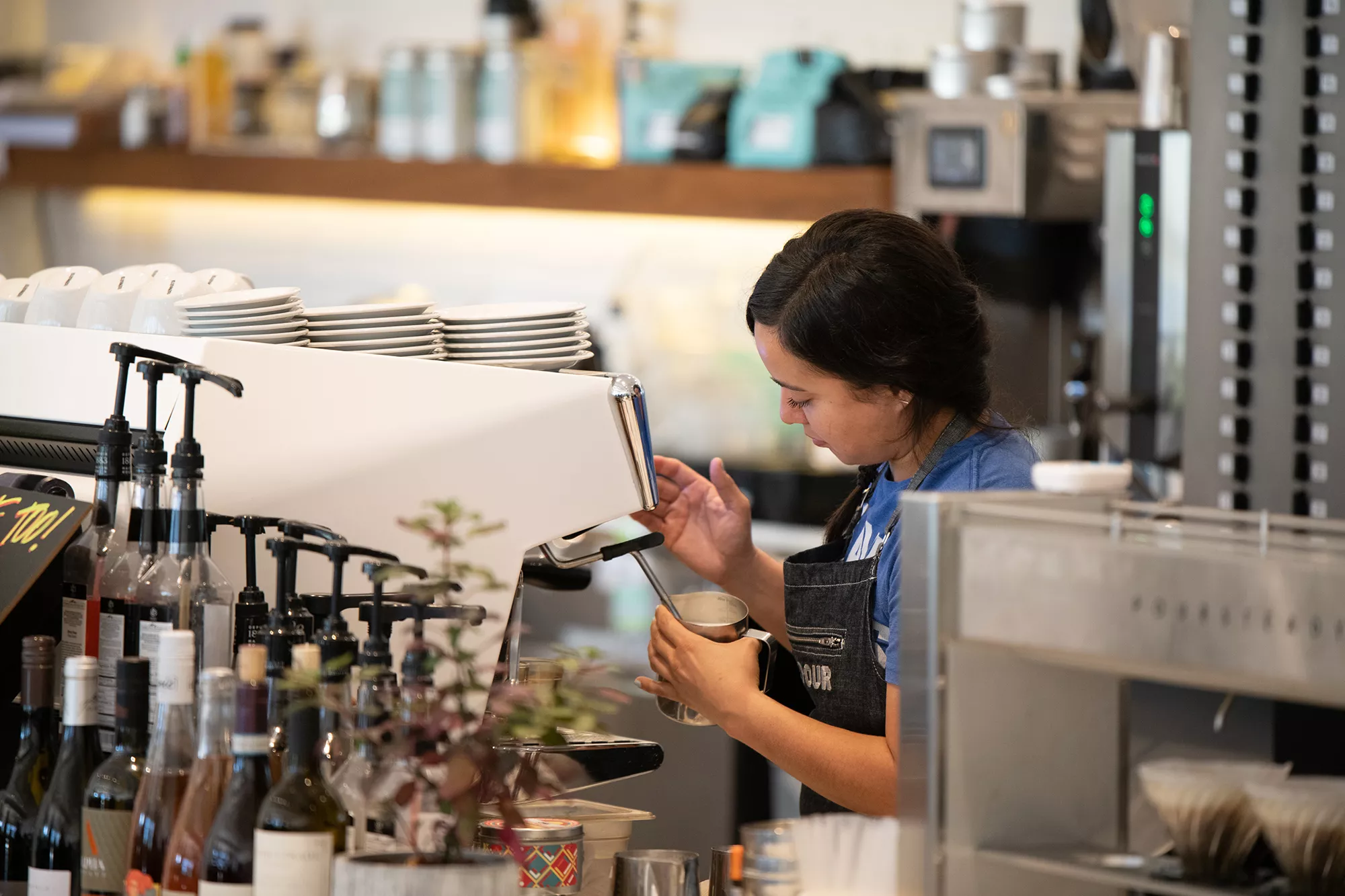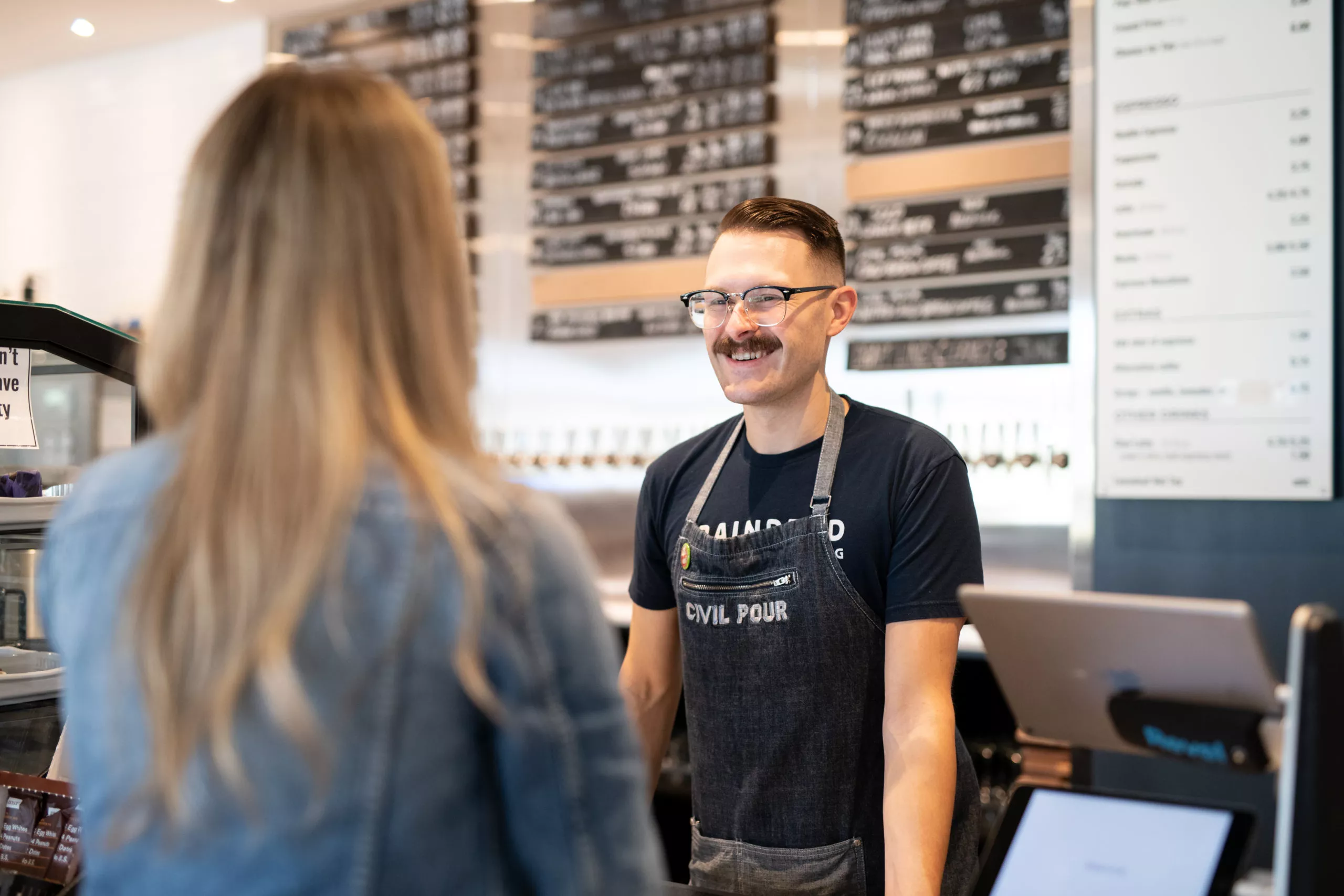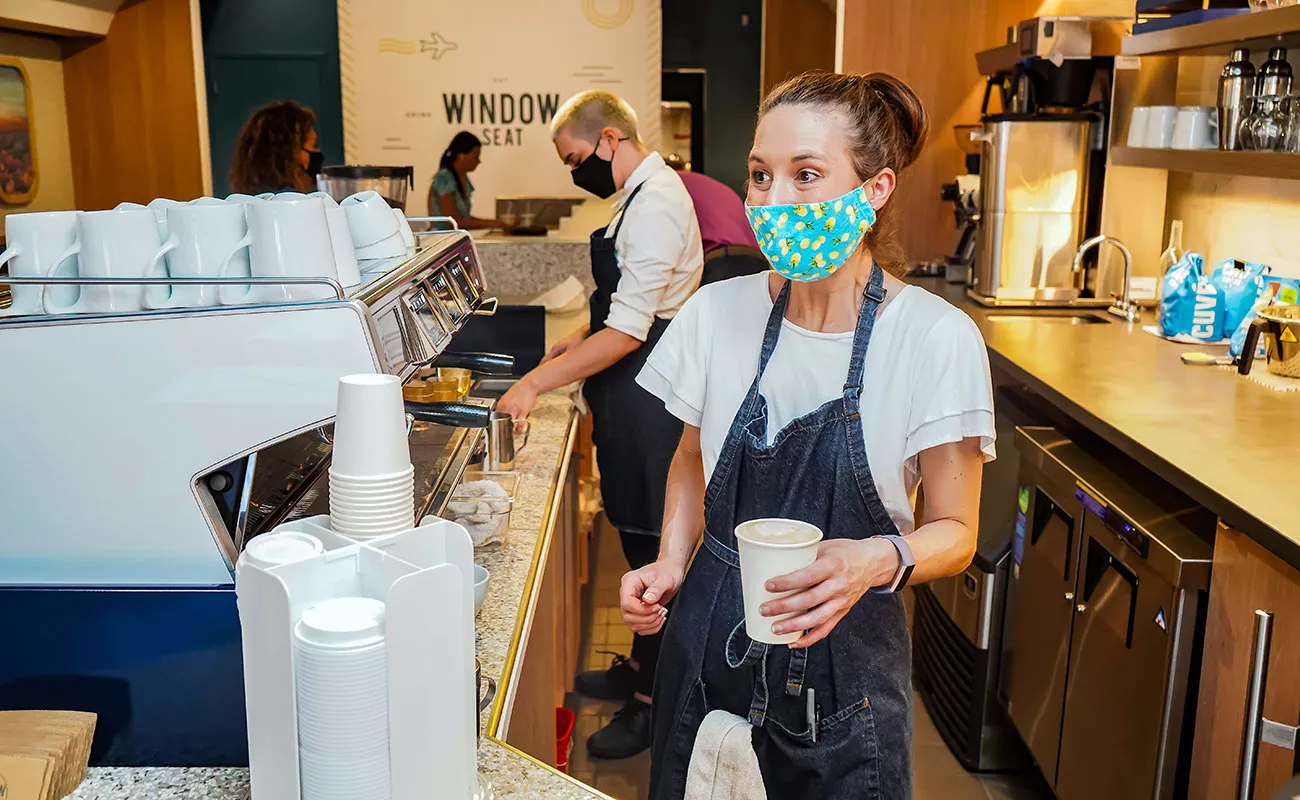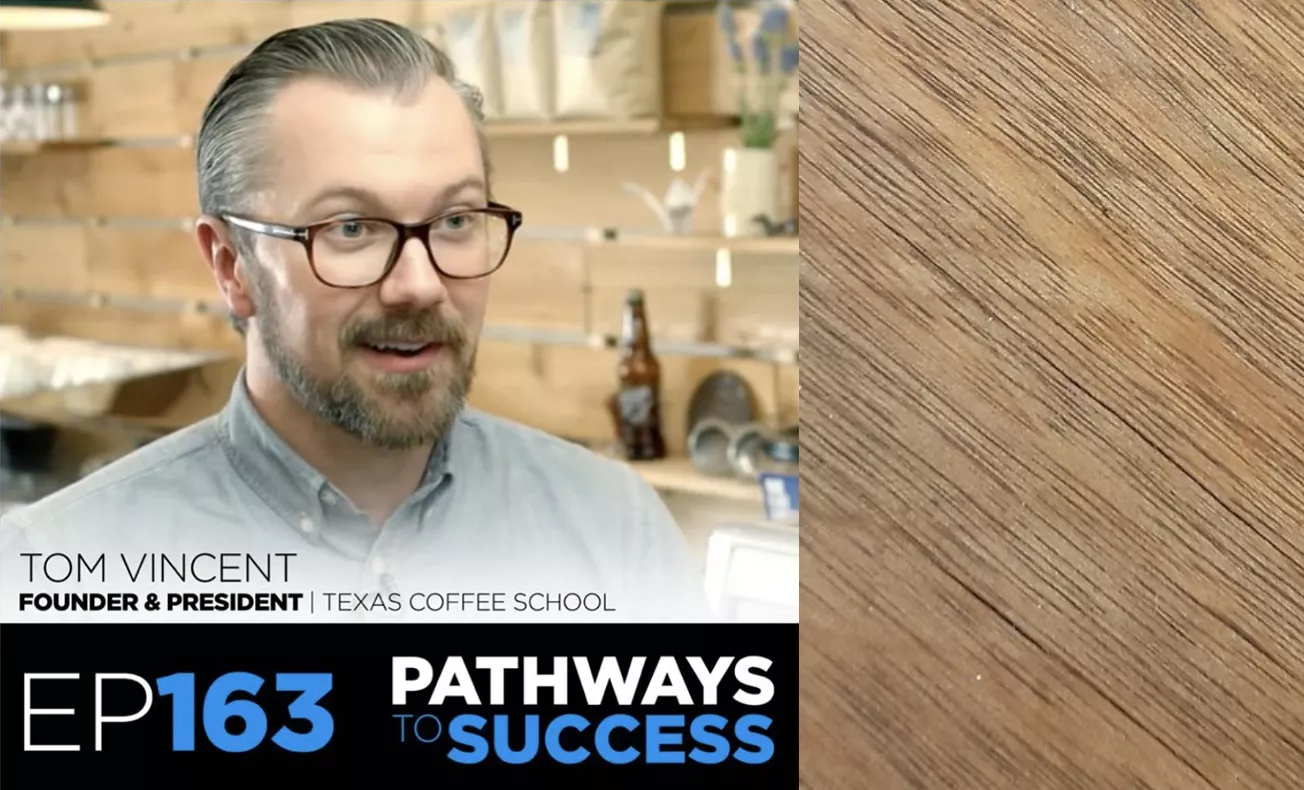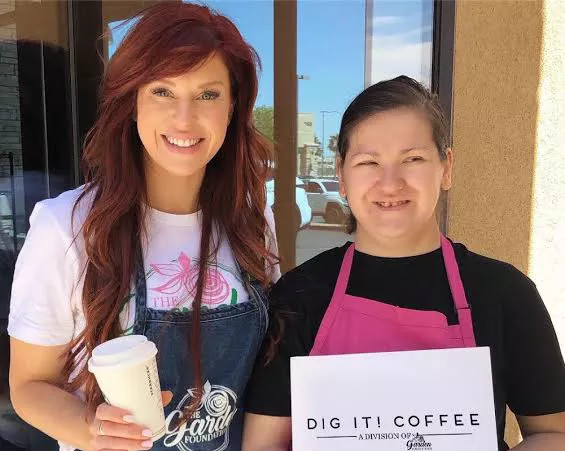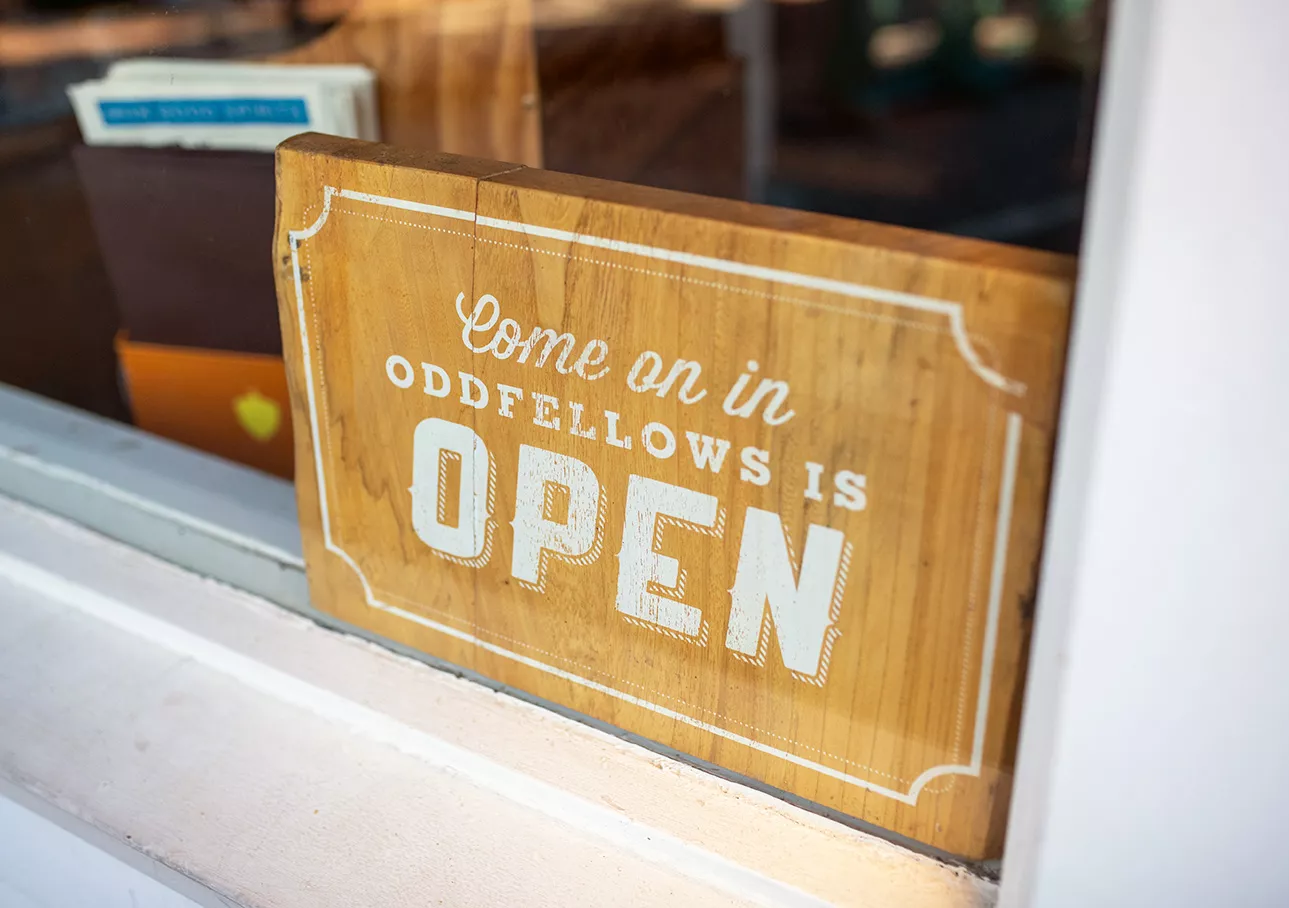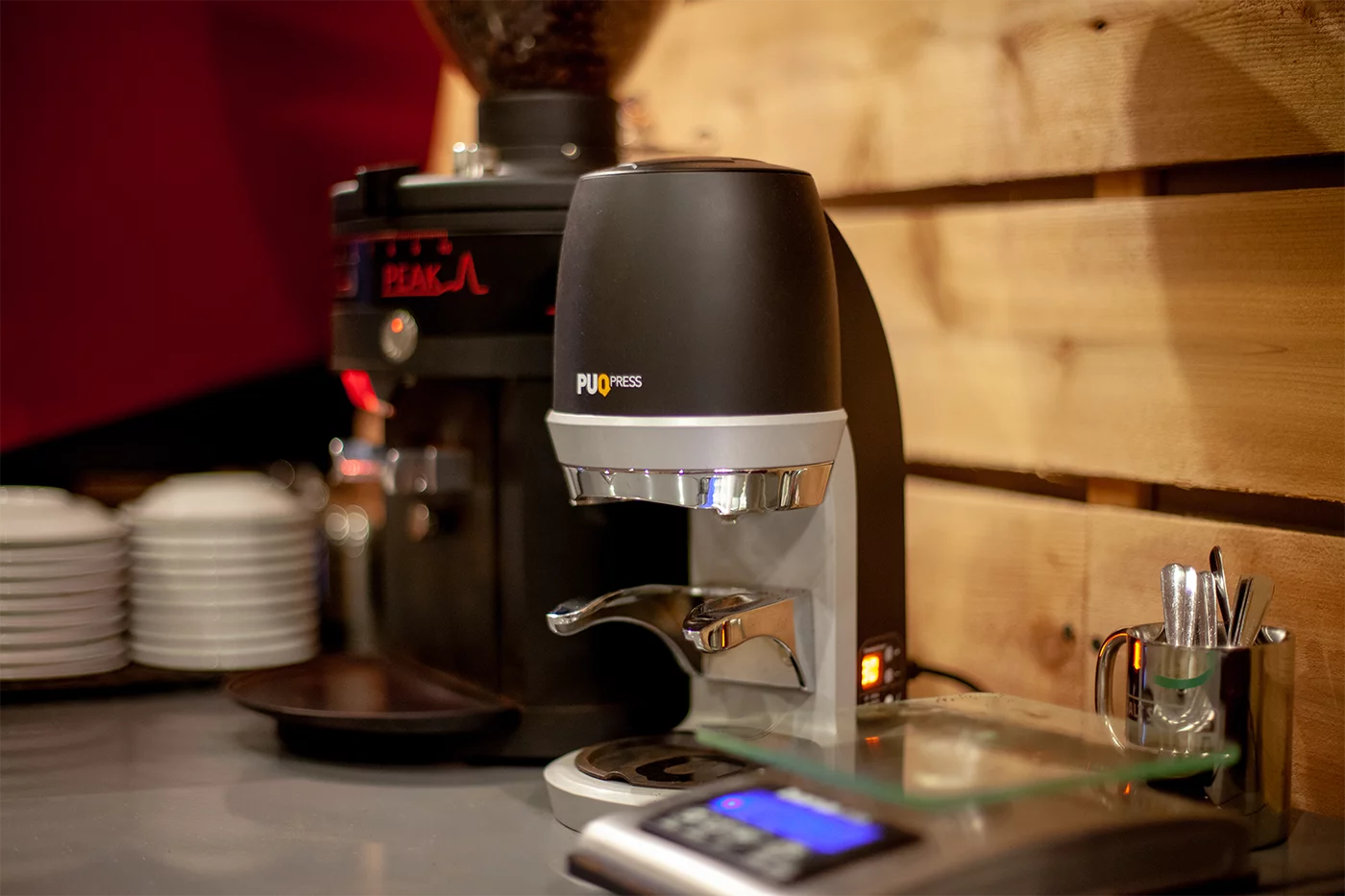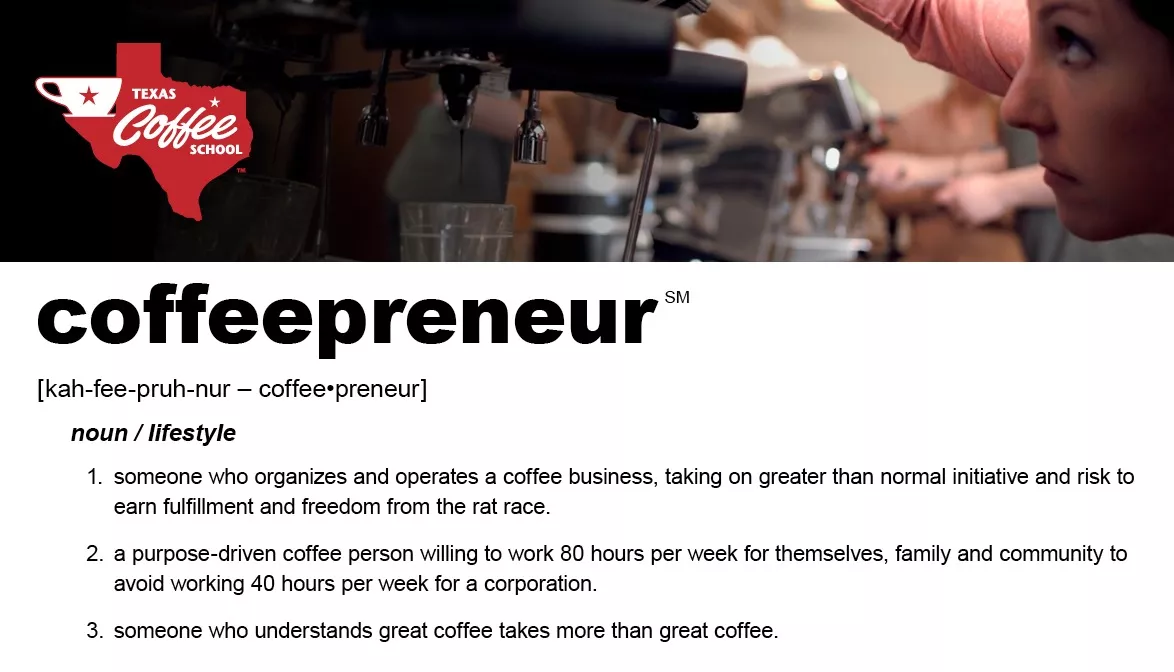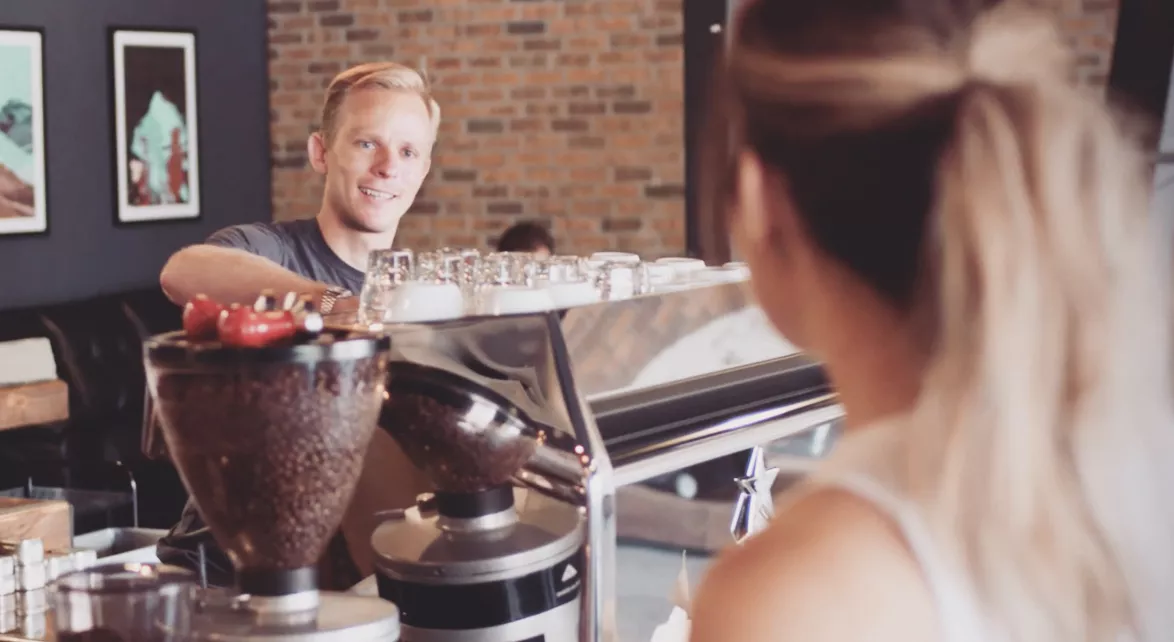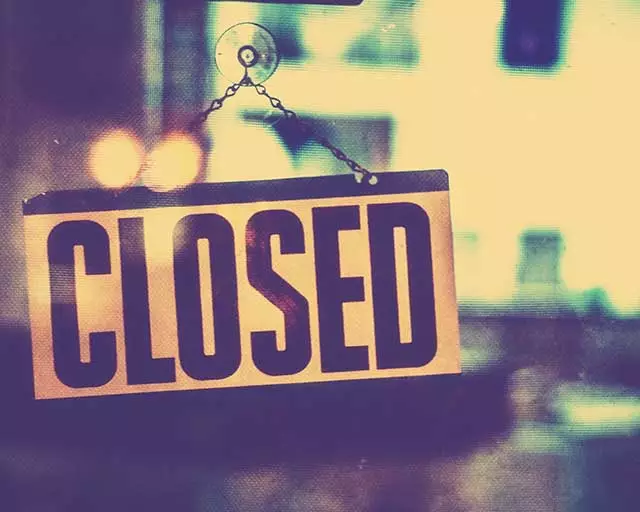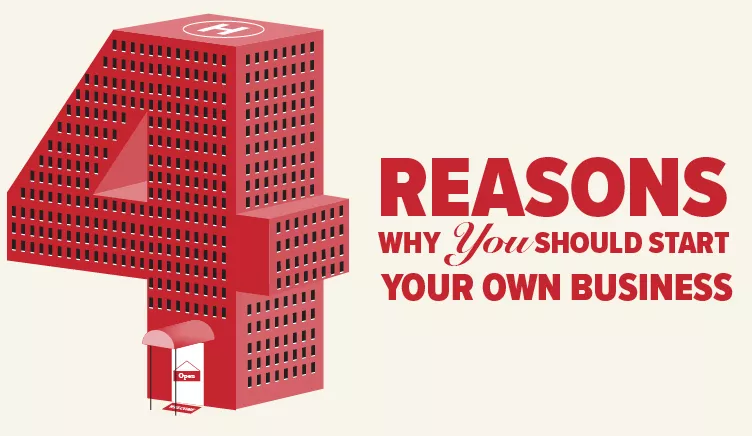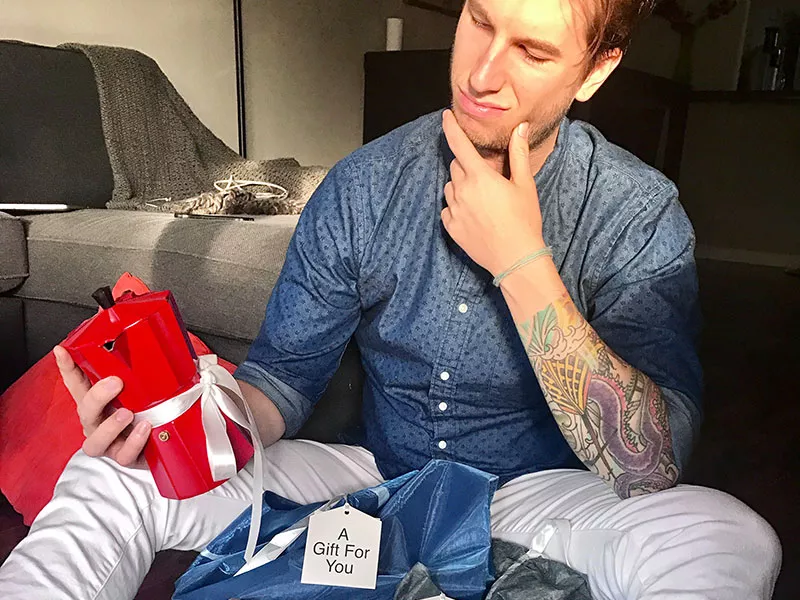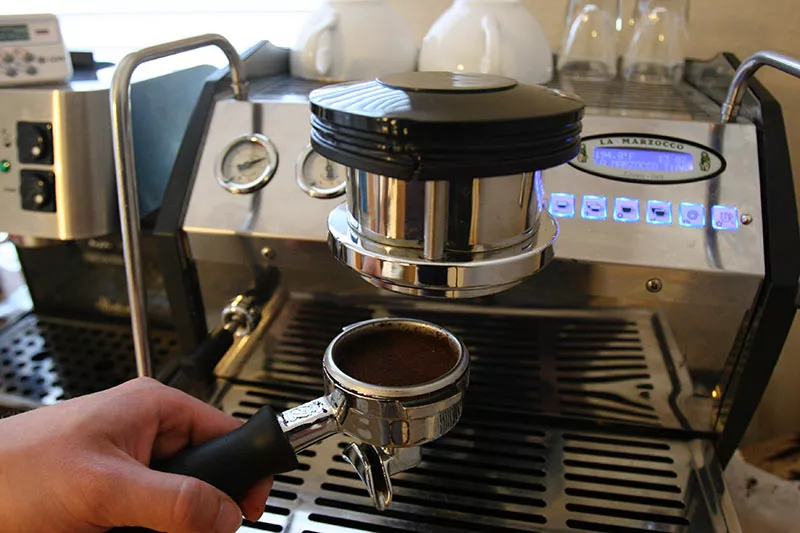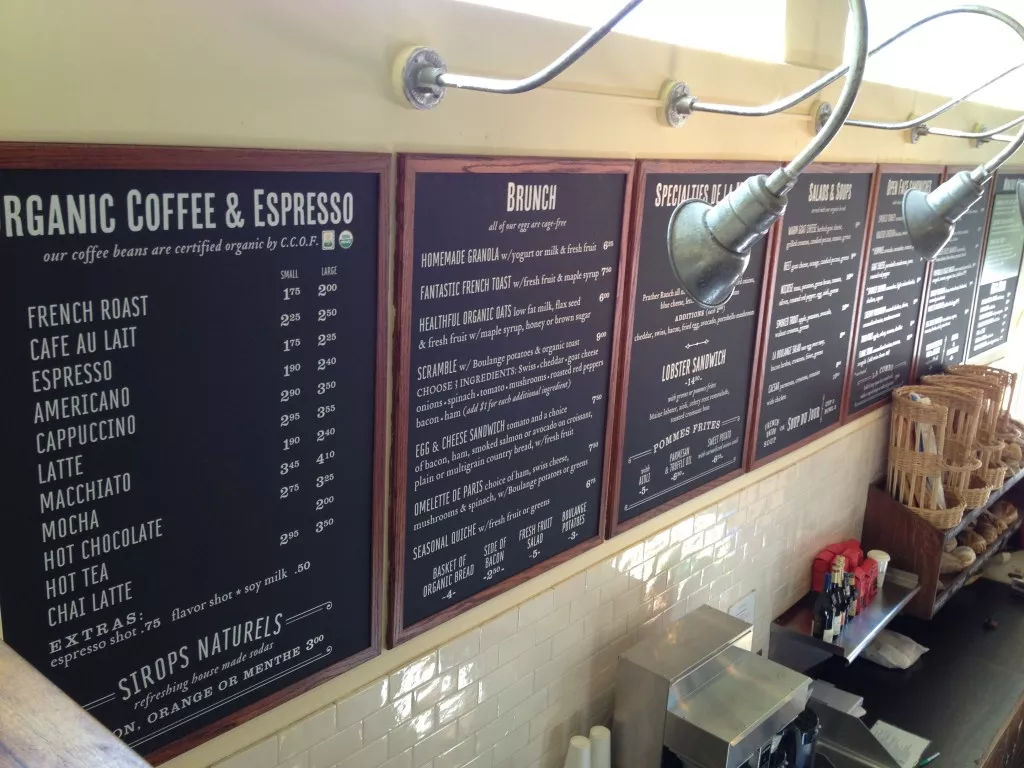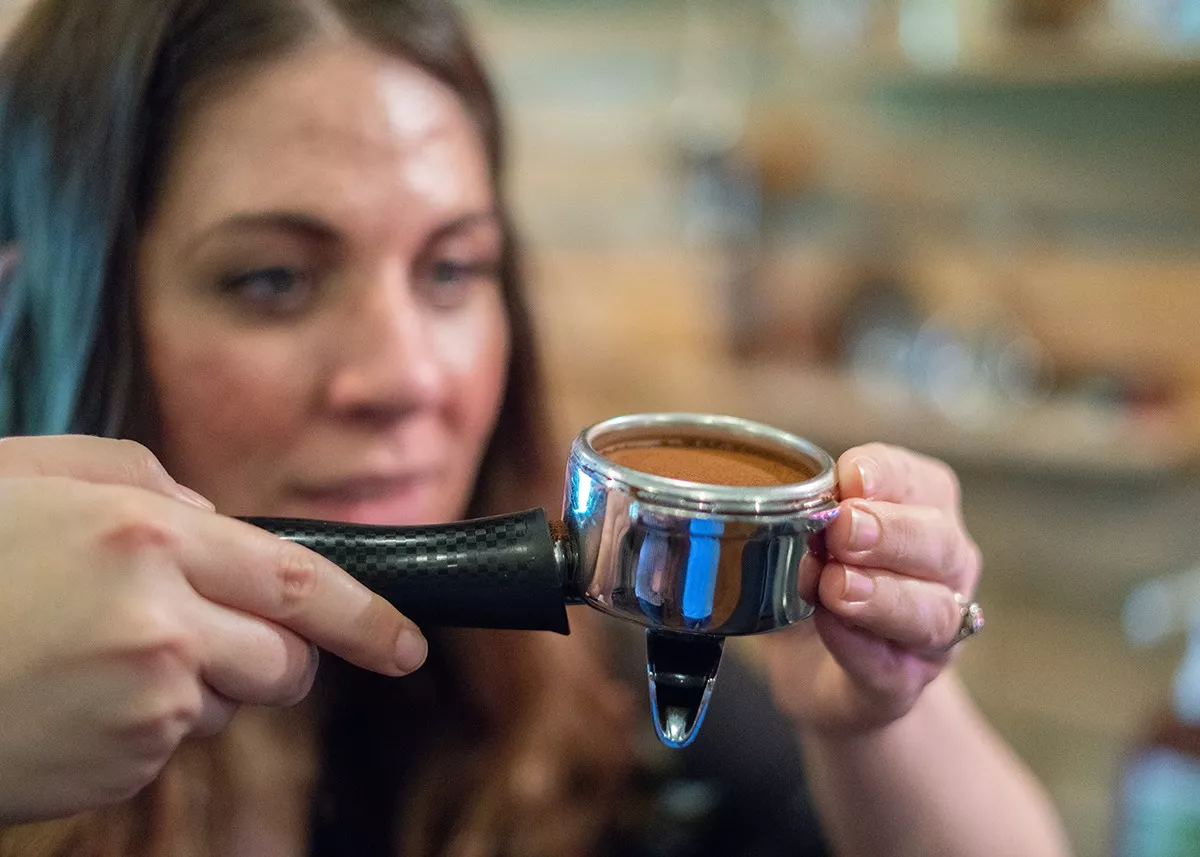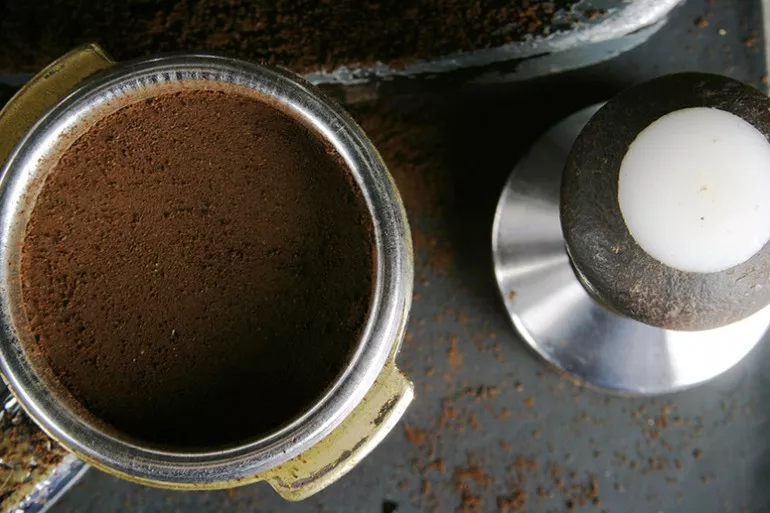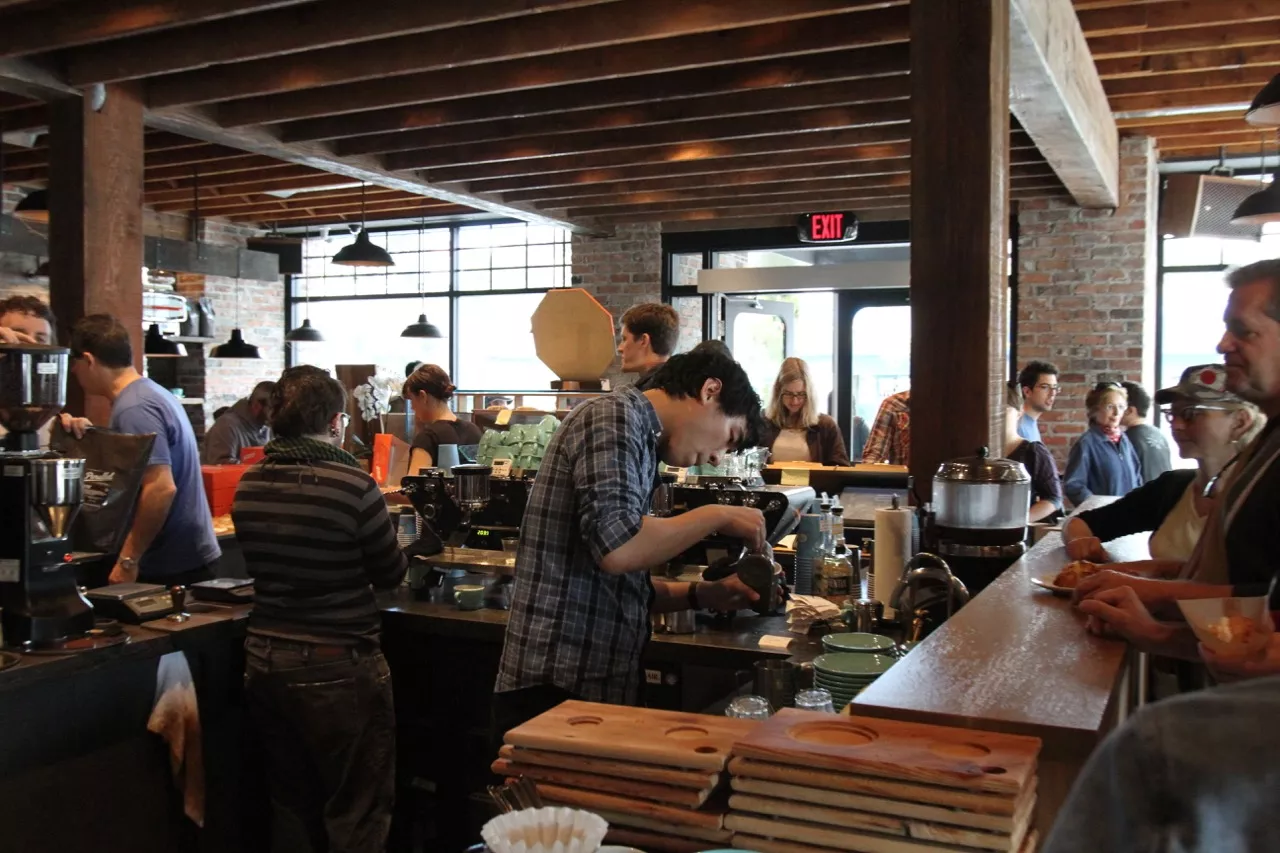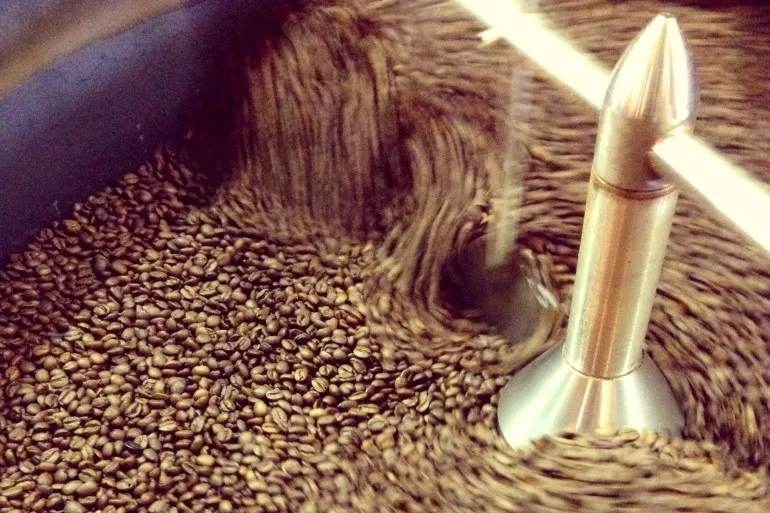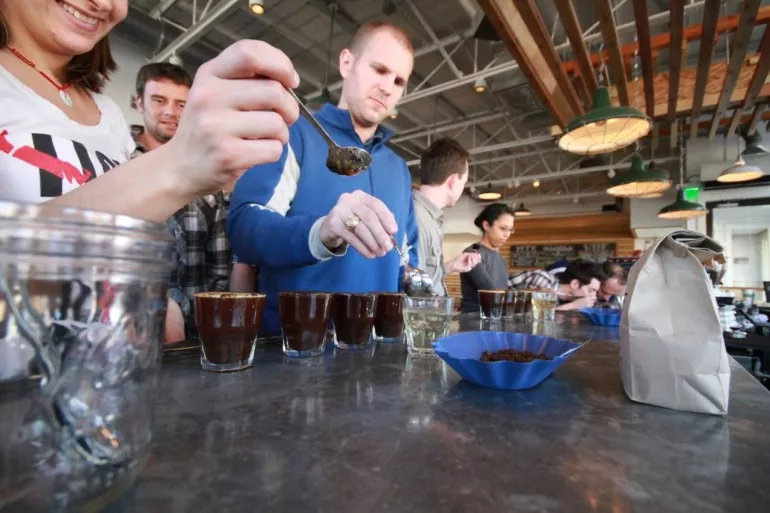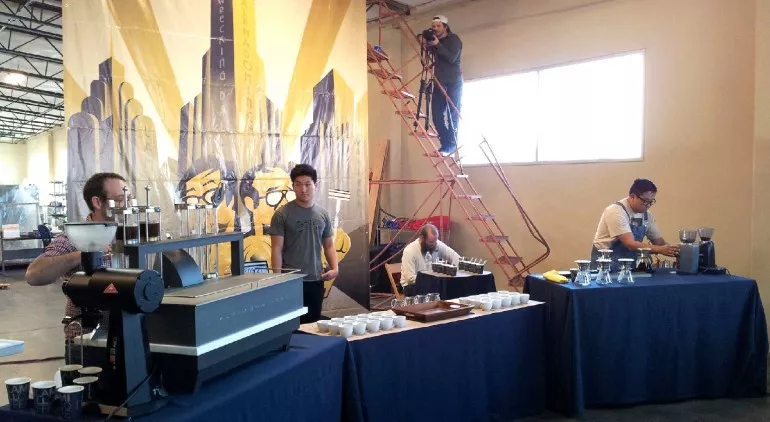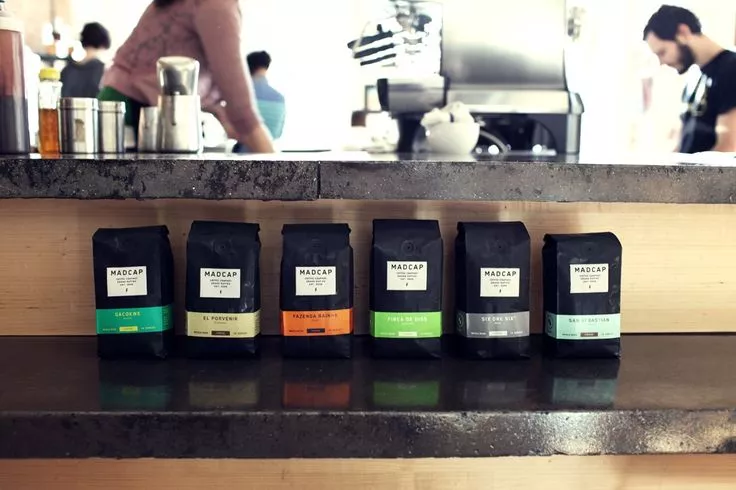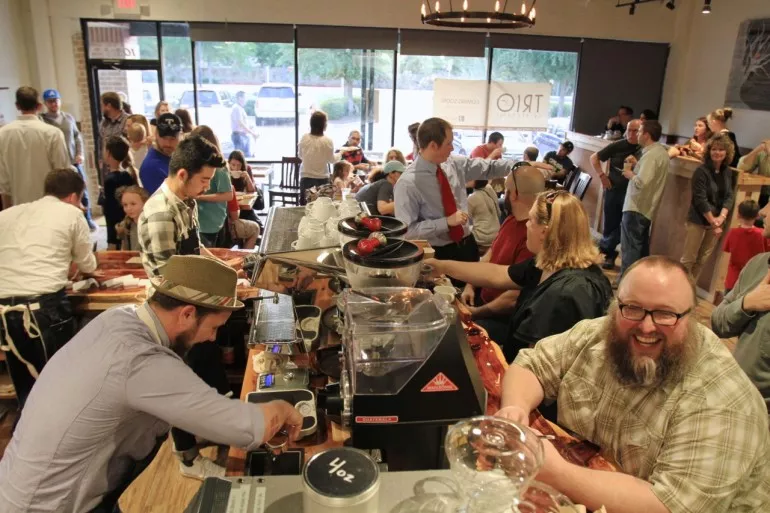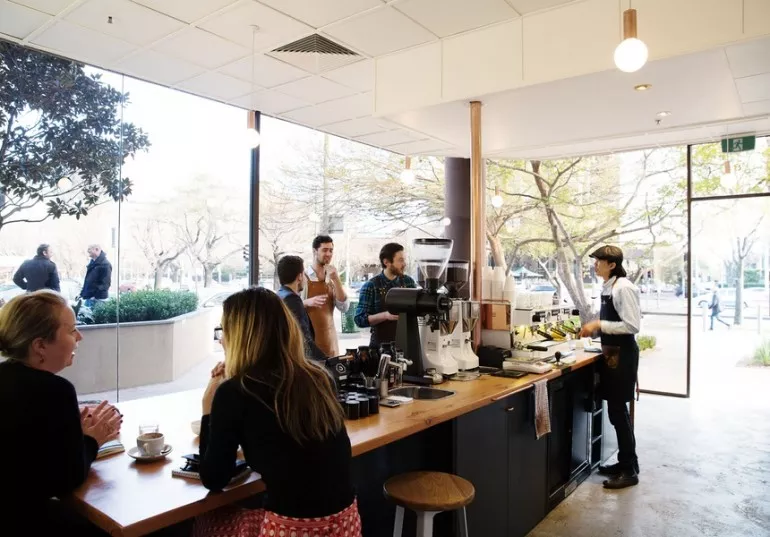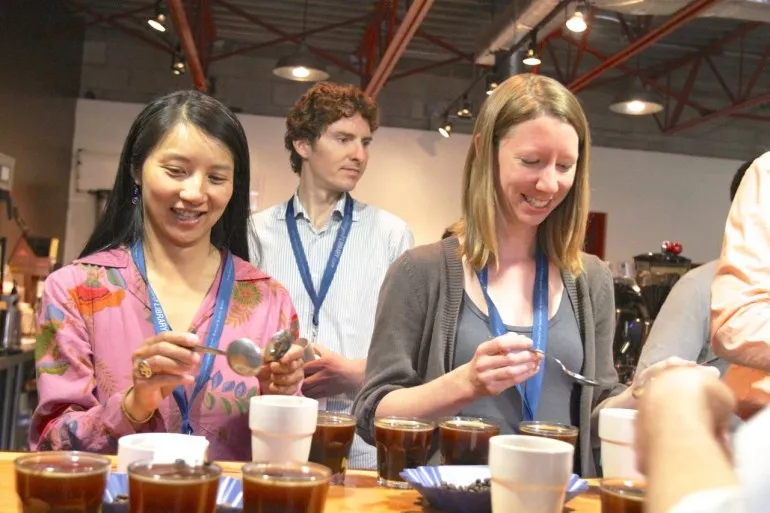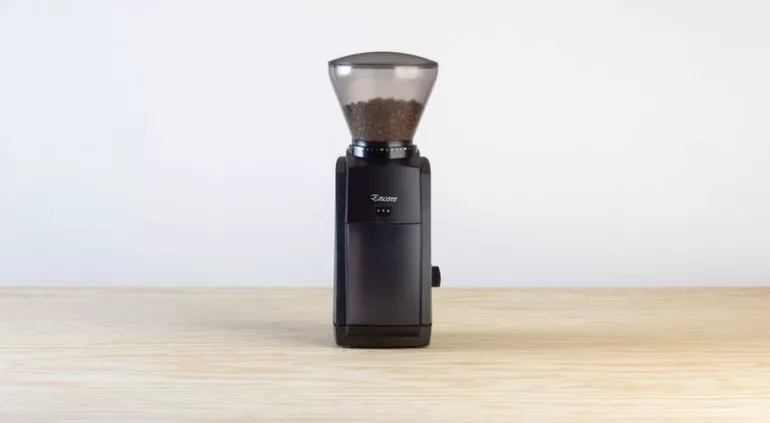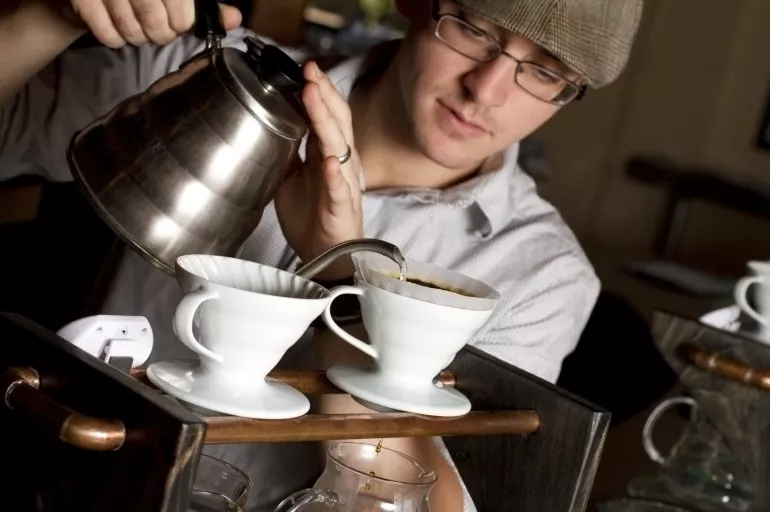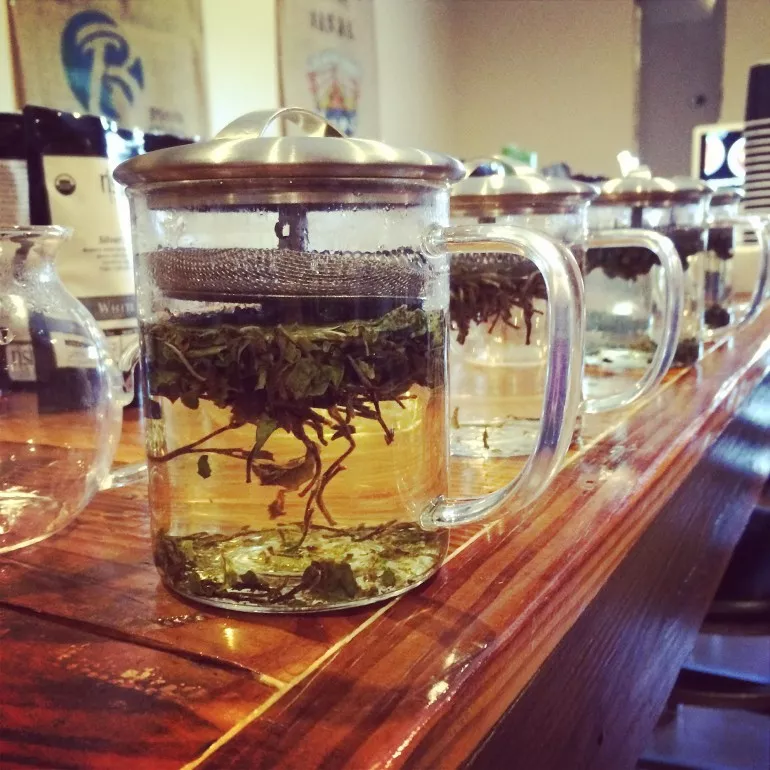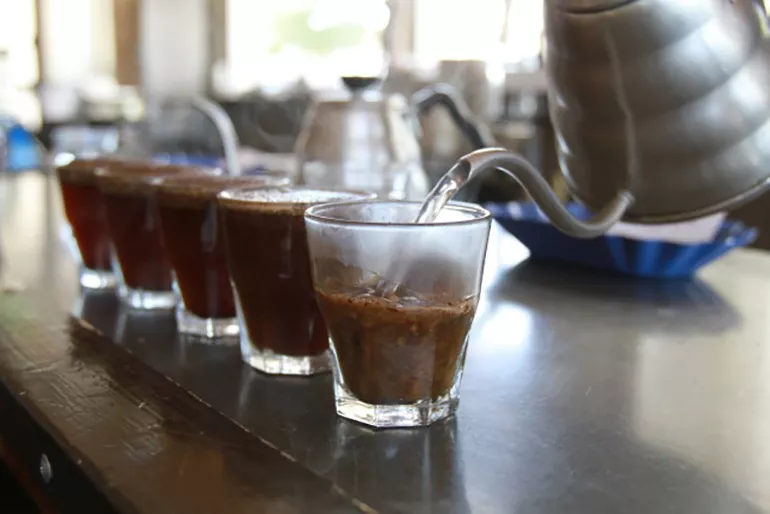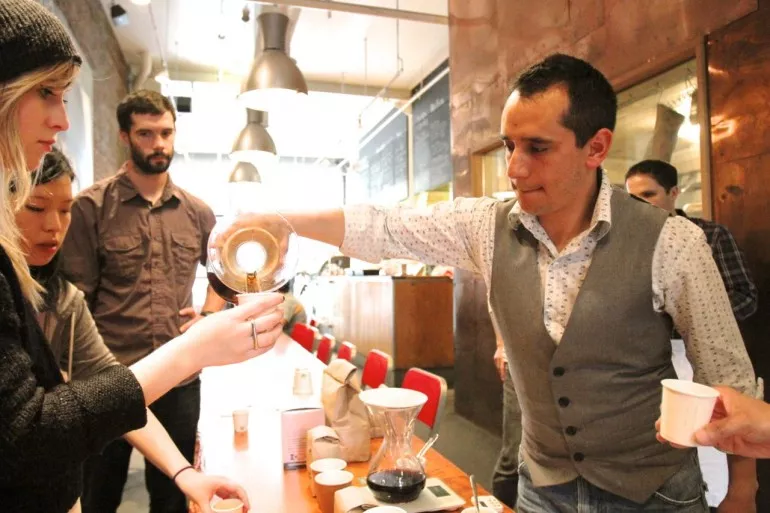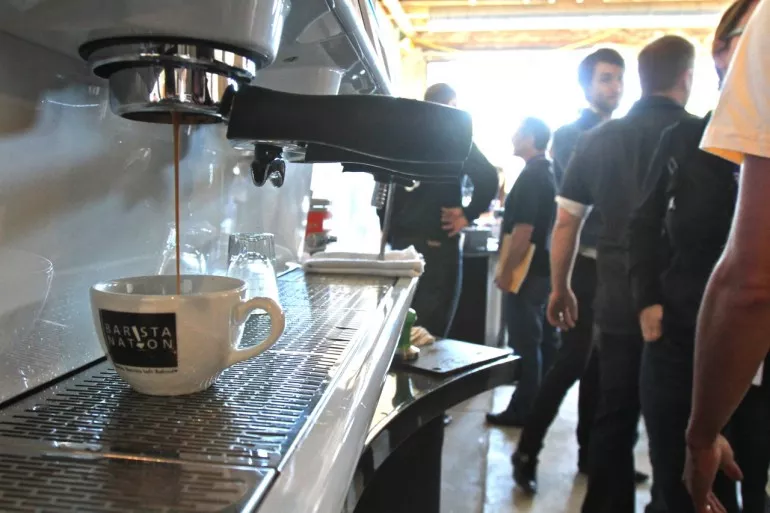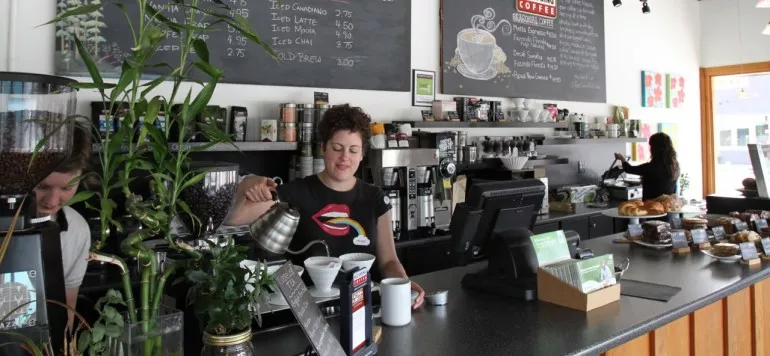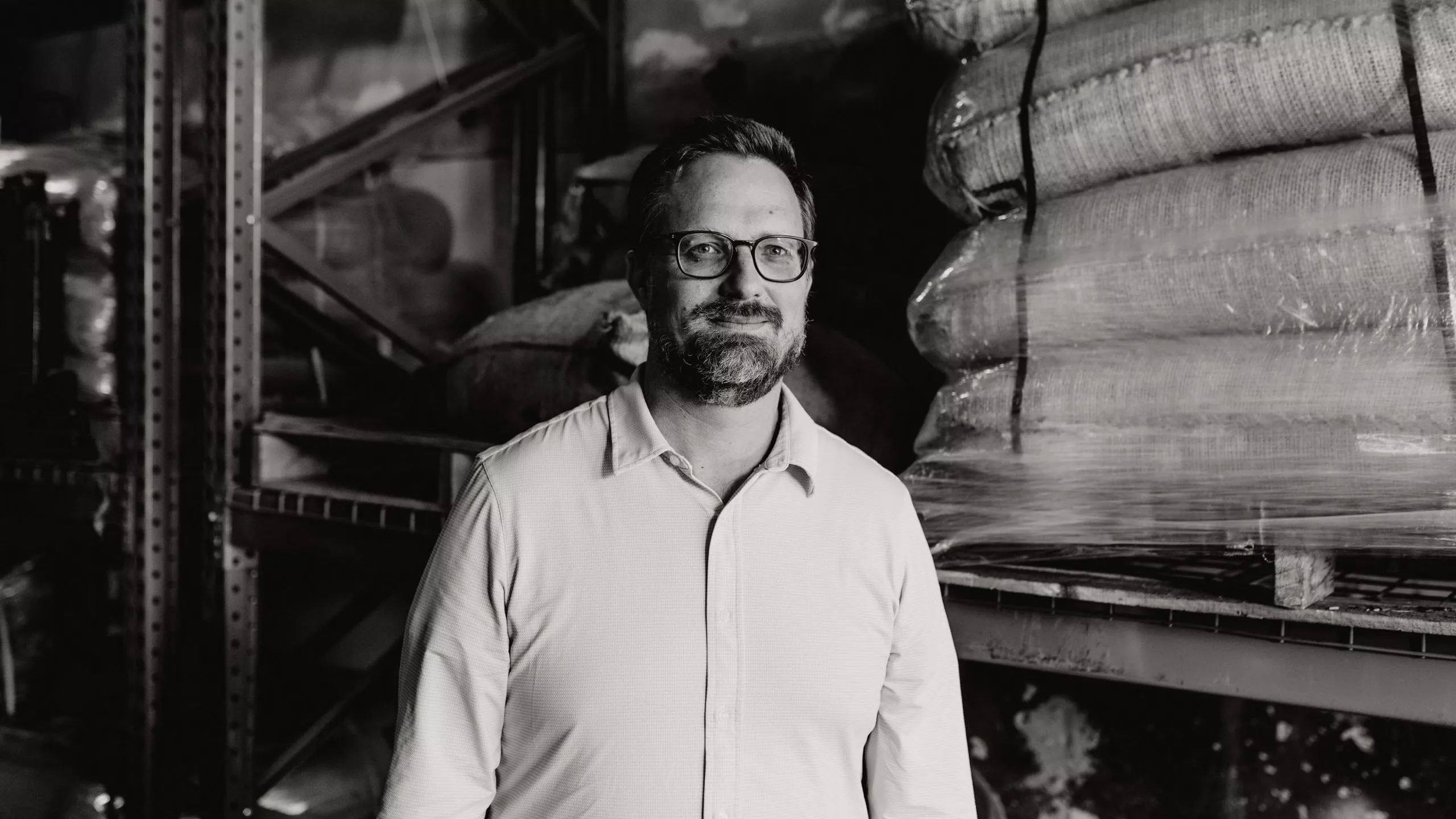
Building a Career, Lifestyle, and Culture, with Shannon Neffendorf
Meet Shannon Neffendorf, co-founder of Oak Cliff Coffee, father of four, coffee origin aficionado, and friend of Texas Coffee School. His love for coffee culture was birthed in Milan, where he observed crowds of people laughing at coffee bars and a refreshing absence of laptops. In 2006, Shannon began roasting green coffee beans on a stove top whirly pop. By 2008, he and his new wife, Jenni, were roasting beans on a gas grill and selling coffee to the neighbors.
“I saw an opportunity to make a contribution to my neighborhood,” Shannon shared. When Crooked Tree Coffeehouse became their first wholesale client in 2009, Oak Cliff Coffee took on a life of its own. But Shannon’s journey to coffee started long before that.
From Corporate Chore to Coffee Culture
Shannon may have been born an entrepreneur. While his childhood was filled with business ventures, he found himself working in corporate America and dreaming of entrepreneurship. His job in accounting at Blockbuster was actually the reason he visited Milan on several business trips. But as Oak Cliff Coffee sales took off, the desk job became less and less desirable.
“I was feeling the push of the disconnection and meaninglessness of corporate America,” he confessed. “You can only fool yourself for so long that the day-to-day work you do is somehow separate from the egregiousness of the publicly-held company. At the moment of awakening, you realize you’re just furthering the cultural sickness.”
His response was to build a culture from the ground up–a culture that he, his family, and his employees could be proud of. The business has grown from simply roasting and selling beans to opening three coffee shops. You can buy a great cup of coffee from Davis Street Espresso in Oak Cliff, Yellow House Coffee in Lubbock, and the Race Street Coffee partnership in Fort Worth.
Laying a Foundation of Core Values
Oak Cliff Coffee’s internal vision statement reads: “Creating a culture of hospitality where none existed through delicious coffee and things that go with it.” When you walk through the doors of Davis Street Espresso, the scent of roasted beans and baked bread engulfs you. Baristas spend a few moments wrapping up a conversation with customers before they take your order with a smile. As the shop purposefully does not offer wifi, there are fewer folks typing and more who are chatting, reading, and playing with their kids. This is right in line with Shannon’s vision.
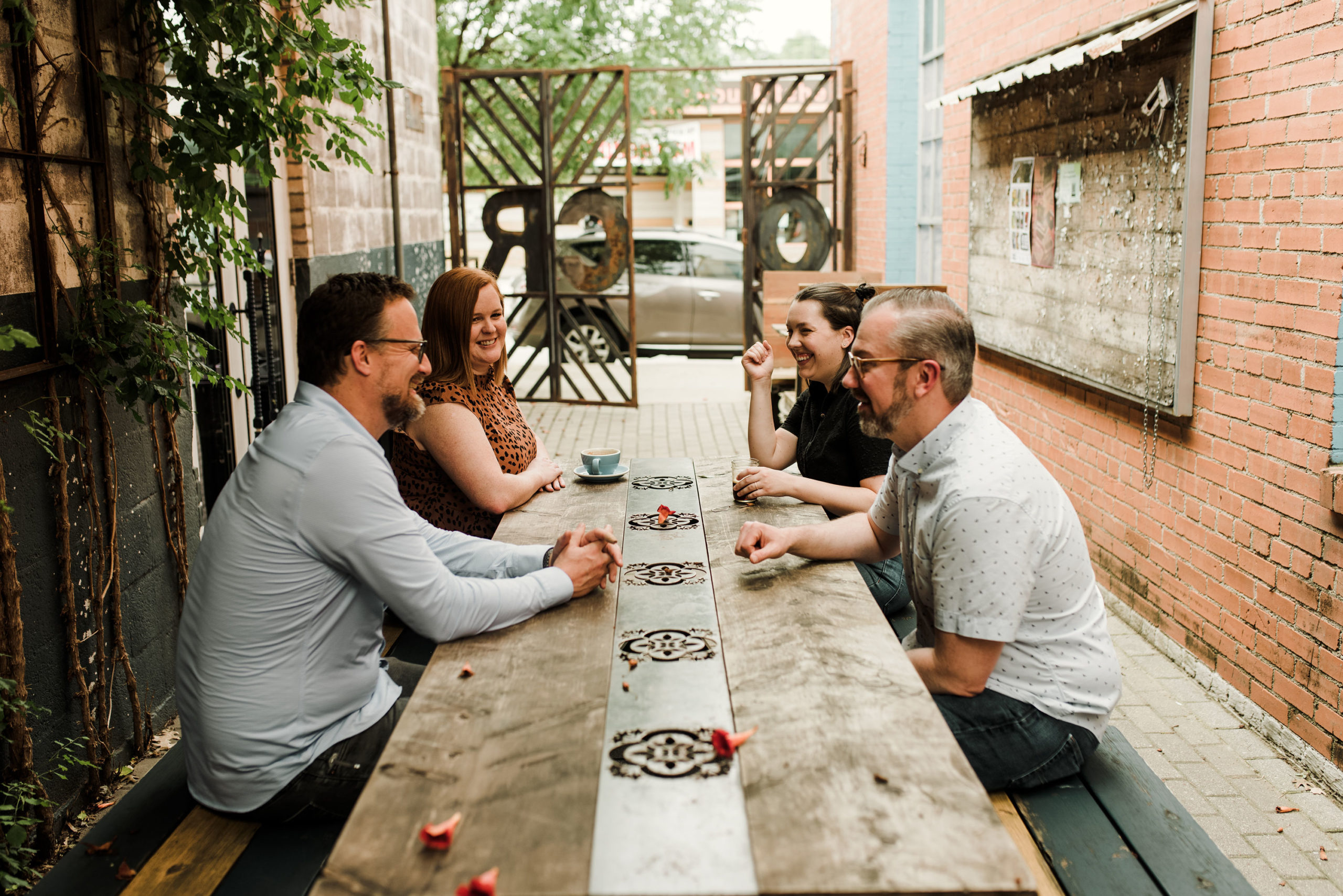
“We care about hospitality, which is how food is used to facilitate relationships,” he explained. “We care about contributing to our neighborhood, and coffee is the metaphor in which we do this.”
He lists several of their company’s values: Attention. Self-Awareness. Communication. Accountability. Transcendent hospitality. Employees orient themselves around these values to bring a shared vision to life. Lacking a north star is one of the 5 reasons why cafe startups fail. But Shannon and Jenni are a shining example of how maintaining their “why” carries them through the inevitable hardships of running a small business.
Creating a Coffee Culture That Stands Out in a Sea of Small Businesses
Almost anyone can start a coffee shop business and offer delicious coffee, beautiful latte art, and an aesthetically-pleasing interior design. But small businesses often fall into the trap of mimicking everyone else in the industry. Just because it works for someone else, doesn’t mean you have to do the same! Shannon understands that a disruptive business idea sets his shop apart from the rest. With over a decade of success, Oak Cliff Coffee has found its unique selling proposition.
“Our goal is to do what we think we should and follow our philosophy, not pop culture business advice. This makes us different. When I look to other businesses, I look for inspiration, not a competitive edge,” Shannon explained. “And I hope we can inspire others as well.”
Davis Street Coffee offers a simple menu of farm-sourced coffee, homemade sourdough bread and baked goods, 75% single-origin chocolate, and whole milk. The indoor seating is often bursting with locals, while the patio hosts peaceful picnic tables and even an old school bus. Shannon can be spotted at the shop most days, conversing with employees or wrangling his four children. He dreams of growing the business with even more unique, neighborhood-friendly ventures–but in a savvy way.
“I think business people tend to see their business like a cancer, that it’s something that should just grow with no regard to shape or form,” he said. “I feel like I’ve recently been able to outline a clear vision of what we’ll grow into next. We’re excited about maintaining our core values because it means that more people within our company will have a clearer contribution beyond my own and I’m excited to see what our team can do.”
Entrepreneurship as a Lifestyle
Even as a kid, Shannon had an entrepreneurial streak. He fondly recalls collecting leftover ears of corn from a family friend’s farm at the end of harvest. He would cart his red wagon of corn door-to-door through the neighborhood, earning $1 for every dozen ears. Future side hustles would include making jewelry and buying Bubble Yum and lighters in bulk to resell at school.
It’s no surprise that he encourages his kids to foster the same spirit. In addition to Jenni and Shannon homeschooling their three boys and one girl, the couple enlists the kids’ help at the business for a weekly half day once they turn 7 years old. The family also accompanies Shannon on origin trips to countries like Brazil to meet the coffee farmers he buys from. He sees value in leaving a legacy of understanding the world. He wants his children to see beyond their bubble, to see human faces instead of business transactions.
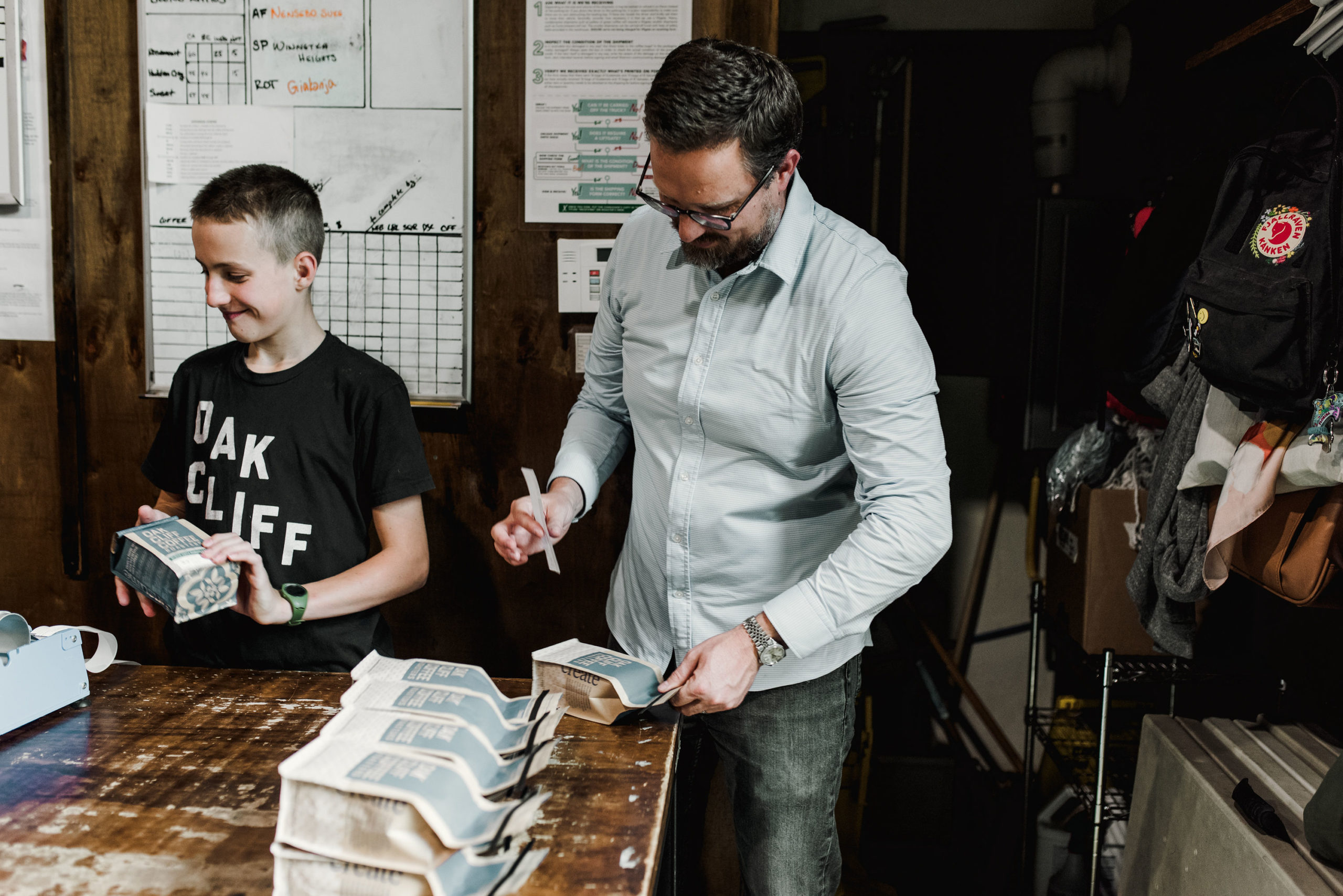
“I try to teach my kids to embrace the wonder that is our life and to see life as a continuous cycle between work and rest, and that they should love both of those things, and hate distraction and meaningless toil,” Shannon expressed. “They’re great kids who work hard and love people. They’re already better than me.”
Next in Shannon’s Vision
In addition to the current ventures, Shannon and his team are building a five acre urban farm with peach and apple trees, chickens, and bees. He also purchased a historic two-story house in the Bishop Arts District and relocated it just behind Davis Street Espresso. Dubbed the “Marnell House,” the building will be transformed into a modest but beautiful public education facility for baking and chocolate-making. And they just opened a warehouse in Oak Cliff to house direct trade coffee beans, cocoa beans, and bread flour.
It’s evidence that the work of an entrepreneur is never done. But it’s also evidence that when work has purpose, it also has momentum. Coffee was the original catalyst, but now it’s just one part of the Neffendorf ecosystem that’s leaving a mark in their community–and beyond.
Find Coffee Culture Momentum at Texas Coffee School
Leaving your day job may lead to more than a career. It’s one avenue to build a lifestyle and a culture that brings you fulfillment. Check out upcoming class dates for our 3-Day Coffee Business Master Class to receive hands-on training for every step of starting your own business.
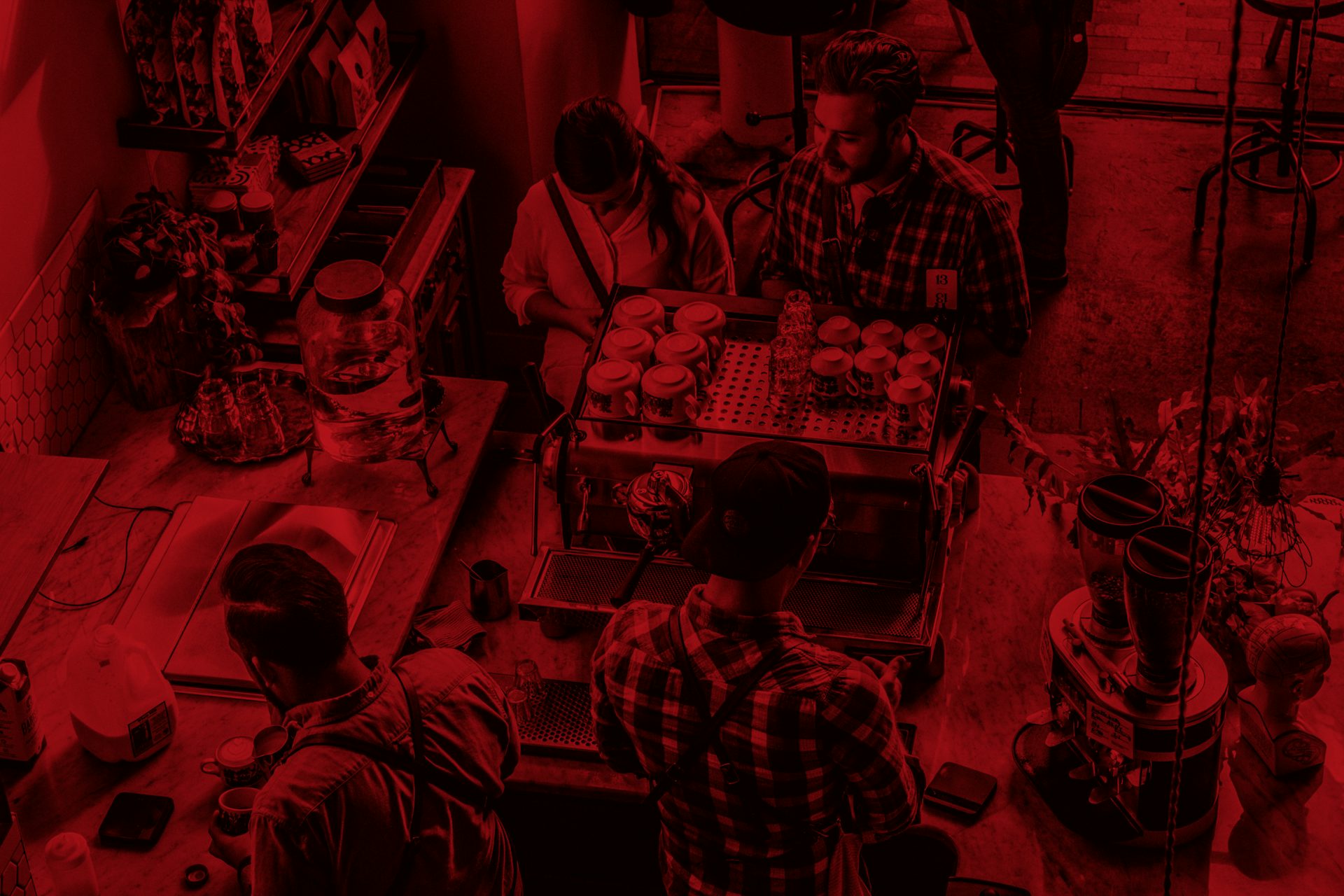
Register for a Coffee Class
The Best Coffee Training Available
We’ve helped hundreds of students successfully launch their own coffee shop businesses. Join us in our 5-Star Rated Coffee Classes, whether you’re an aspiring entrepreneur looking to open a coffee shop, a manager, a barista or home enthusiast looking to sharpen your skills.
